

Ultimate Lebanon Travel Guide
The ultimate travel guide to lebanon.
Last Updated: 22 Feb 2023.
This guide will tell you everything you need to know for visiting Lebanon during the current crisis, updated regularly with the latest pandemic travel restrictions and for changes caused by Lebanon’s current crises. I have lived in Lebanon for the past three years ( narrowly surviving the 2020 port explosion ) and have visited almost every inch of this beautiful and crazy country.
Lebanon was a beautiful country with vibrant cities and beautiful ancient historic sites before the multiple crises that began in 2019. And actually, it still is. With a bit of planning, it’s still possible to have an amazing trip here, despite the political crisis, economic crisis, electricity shortages, frequent protests and the after effects of the port explosion.
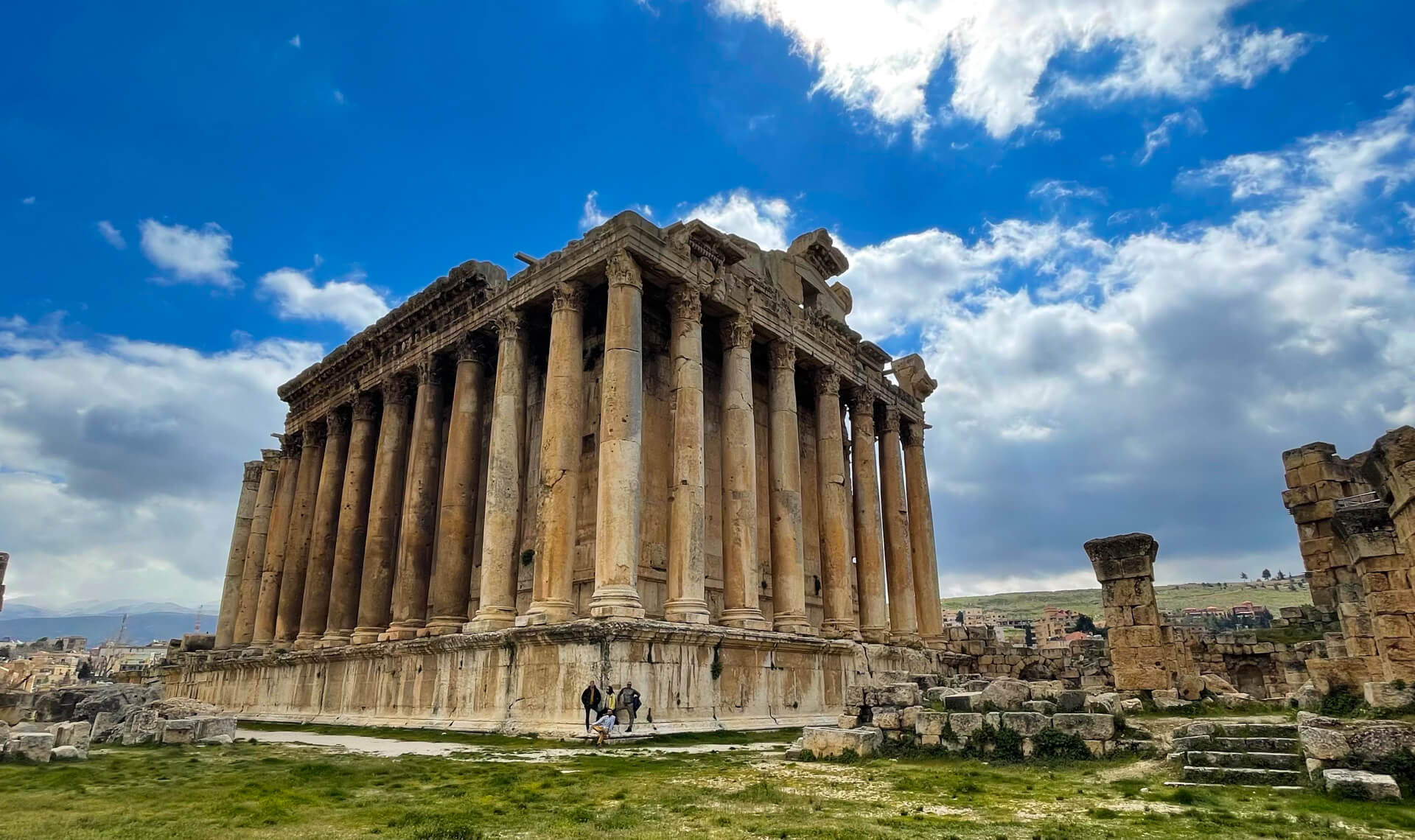
The 2,200 year old Roman temple of Bacchus, the wine god, in Baalbek.
Places to Visit
One of the best things about Lebanon is that almost any area can be visited as a day trip from Beirut. You can choose to do the below as a series of day trips or stay overnight in different cities as you travel. Staying overnight reduces the time spent travelling, but also means you have to take everything with you as you travel.
In my opinion, the real must see place in Beirut are the Raouche (Pigeon) rocks, which are a beautiful place to watch the sunset. If you’re feeling adventurous, take the path down the cliff from the viewing point next to the Bay Rock Cafe (opposite Starbucks) and sit on the rocks opposite Raouche. From there, not only do you get a beautiful view of the rocks themselves, but also of the sun setting over the Mediterranean Sea. It’s a great place to enjoy a couple of beers or a bottle of wine.
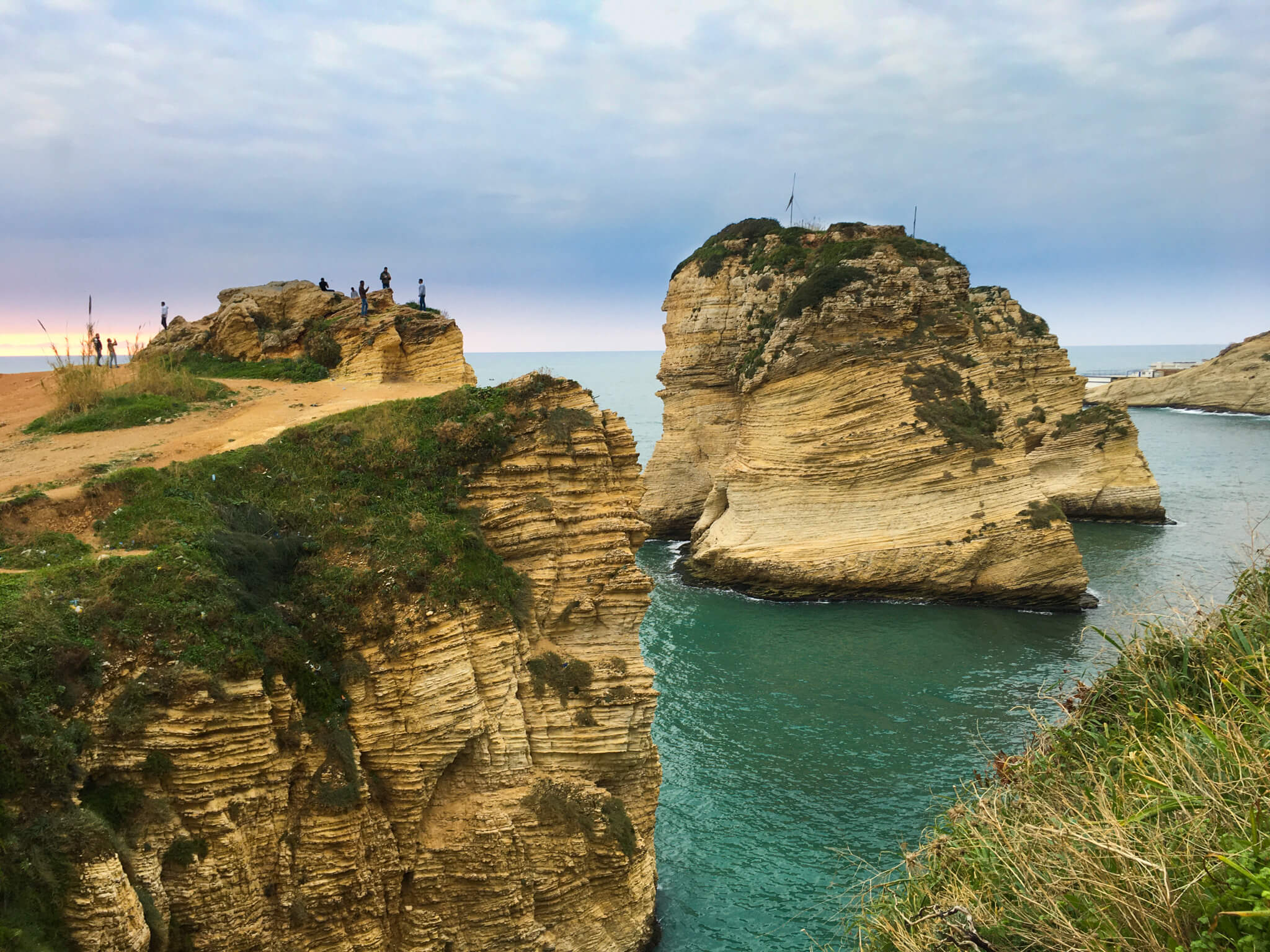
The best place to view Pigeon Rocks (left, with people gathered). Also a great location to take a bottle of wine for a romantic sunset date.
One of the joys of Beirut is just strolling through its vibrant neighbourhoods. I particularly recommend Hamra, which is an interesting mix of old and new, with boutique shops, bars and restaurants. Gemayze and Mar Mikhael, the main bar district, are also gradually coming back to life after the port explosion destroyed them in 2020. Zaytuna Bay is a chance to see the more upmarket side of Beirut.
The centre of the Beirut Souks area, including the iconic clock tower in Place de L’Etoile and the Roman baths, has reopened after being cordoned off by the military due to protests for the past two and a half years. Until recently, it was still possible to enter the ‘egg,’ an abandoned cinema building purportedly left to remind people of the atrocities of the civil war (it’s full of bullet holes), but unfortunately the authorities have now built a fence around it to keep people out.
The National Museum of Beirut reopened to tourists in summer 2021 and is currently open daily. Be sure not to miss the ‘mummy room’ on the basement level, which houses three mummies from the Qadisha Valley. It’s a little temperature-controlled room in a corner and easy to miss if you don’t know it’s there.
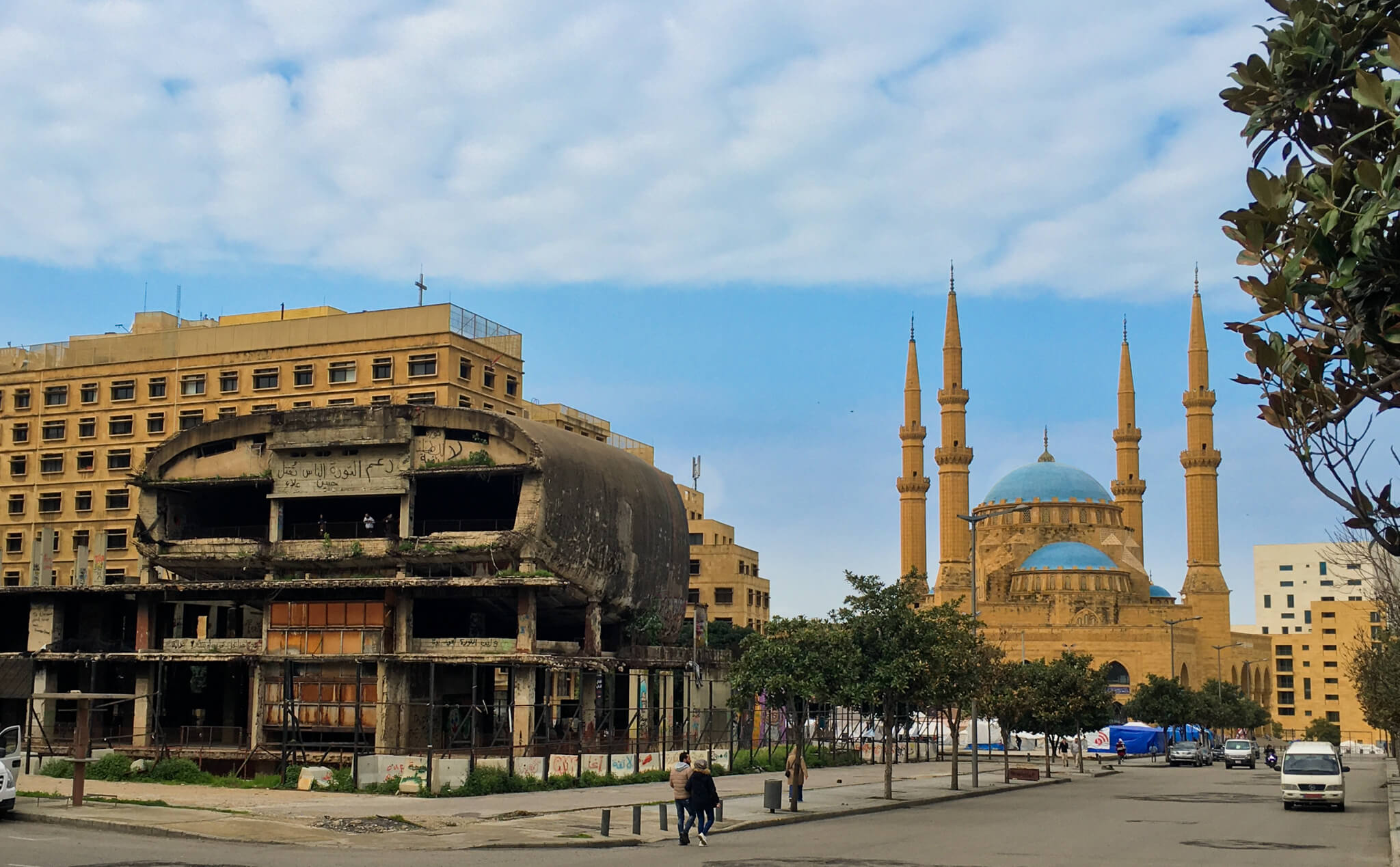
The Beirut ‘egg’ (abandoned cinema) and the main mosque.
The Jeita Grottoes & Byblos
The Jeita Grottoes, located slightly to the north of Beirut, are spectacular and conveniently located not far from the coastal highway up to Byblos, making the two a convenient day trip. You can also choose to stay overnight in Byblos before heading further up north.
At the Jeita Grottoes, you have to leave your phone in a little locker near the entrance, as they don’t allow photographs. It doesn’t look very secure, but I’ve never heard of anyone having problems.
The main attraction of Byblos is wandering the beautiful historic centre, with its ancient Mediterranean architecture, beautiful flowers growing up the walls and in some cases across nets over the streets and cute boutiques, bars and restaurants. There’s also an ancient citadel that’s worth checking out and the picturesque little harbour.
If you’re looking for something a little adventurous, walk along the right hand wall of the harbour (as you’re facing out to sea) until you reach the ancient tower at the harbour entrance. From here, with a bit of care, you can climb up to the top of the tower for amazing sunset views, often without any other people.
If the beach is more your thing, slightly north of the harbour you’ll find a pebble beach that’s great for swimming in the summer (approximately May to October). Finally, Byblos is home to Fenicia restaurant, in my opinion one of the best restaurants in the whole of Lebanon.
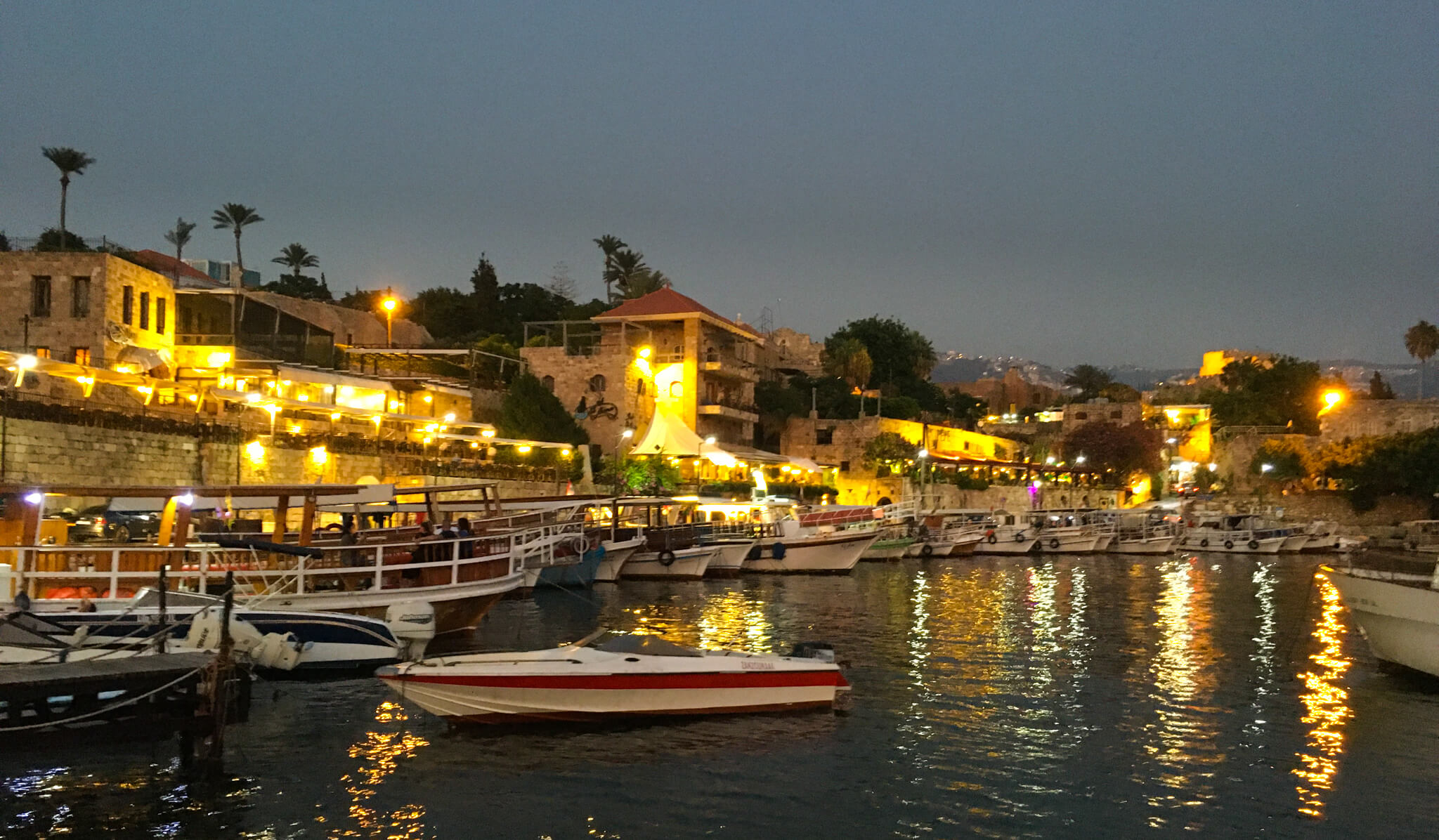
Byblos harbour is beautiful day and night.
A pretty seaside town in the north of Lebanon, Batroun is nice for an afternoon to wander it’s old town, which is basically a less touristy version of Byblos. In the Batroun area there are several off-the-beaten-track places that are worth checking out if you have time:
- The Msailha fort, just up the main highway from the city, is small but impressive, standing alone on a huge rock (it’s also free to enter). The location is here on Google Maps .
- The Rock of Hamat, a giant rock painted in the colours of the Lebanese flag, on the edge of the old cliffside road from Batroun to Chekka. The location is here on Google Maps .
- The cliffside walk though the old road tunnel to the north of the cliffside road from Batroun to Chekka. Go to coordinates 34.311459, 35.681865 ( here on Google Maps ) and then take the footpath on the left hand side of the road before the current tunnel entrance.
- For the more adventurous travellers, the disused railway tunnel. To reach the entrance, after the current road tunnel walk about 100m then go down the footpath on the left hand side of the road. Two thirds of the way down, there’s a little bank on the left that you can scramble up (about 2-3m). The entrance to the tunnel is at the top of this bank.
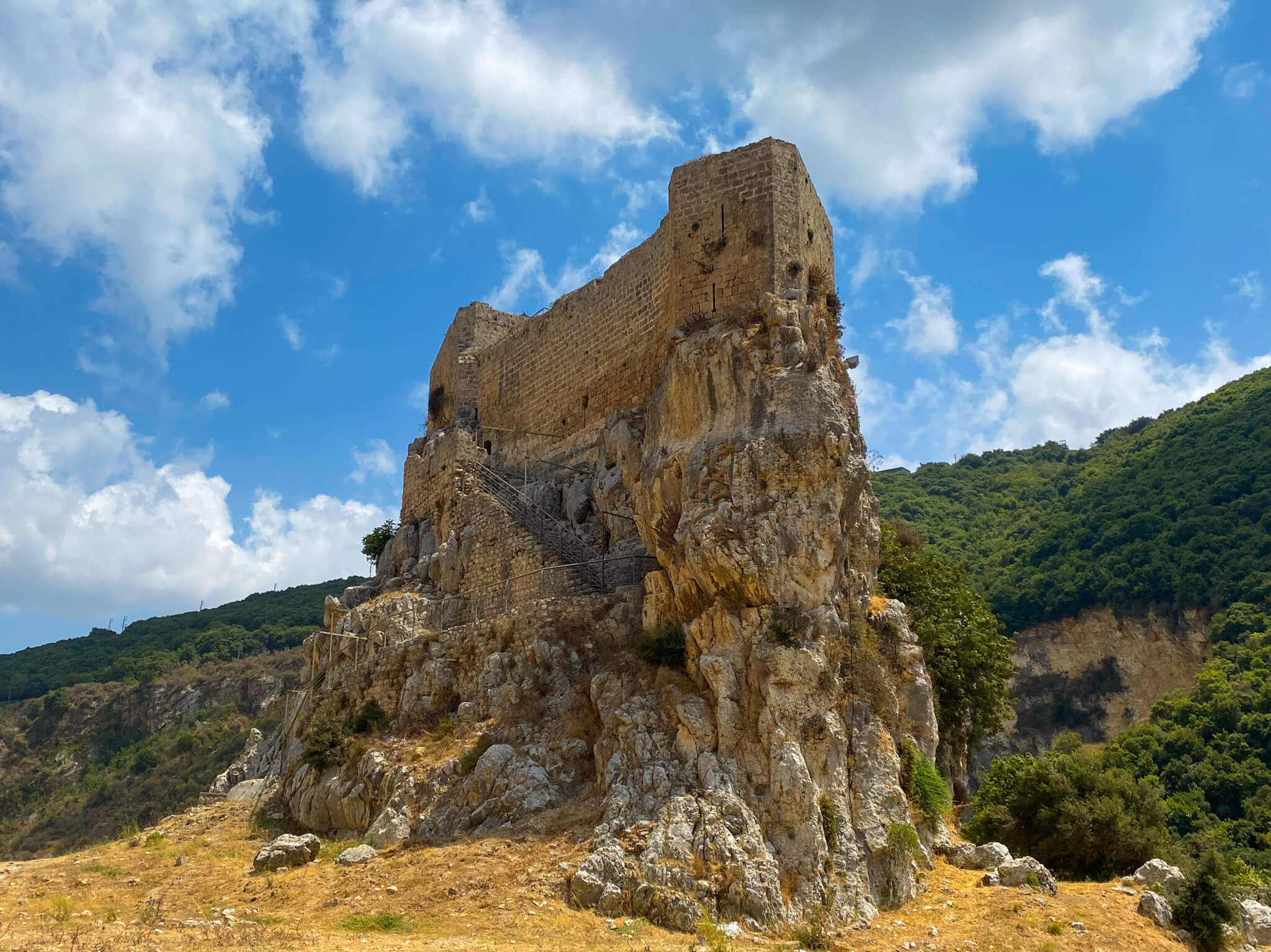
The spectacular Mseilha Fort, just outside of Batroun.
Much of the time, Lebanon doesn’t feel like the Middle East. There are no deserts, no camels (apart from a couple in Chouf that were imported from Saudi just to entertain tourists) and many of the main cities, including Beirut, Byblos and Batroun, have more of a Mediterranean feel than a Middle Eastern feel. And then you reach Tripoli. Check out the old souk (market) and the citadel. The souk seems to close around sunset at the moment, possibly due to a lack of power after dark.
Tripoli’s Corniche is, in my opinion, not as nice as Beirut’s, but Al Mina, the old town, is quaint and has several nice restaurants, including The Sailor Woman, my favourite seafood restaurant in Lebanon. If you have plenty of time, you can also catch a boat from the Corniche to Palm Island, which has the biggest sandy beach in the north of Lebanon. It’s a nice place to chill out and swim in the sea.
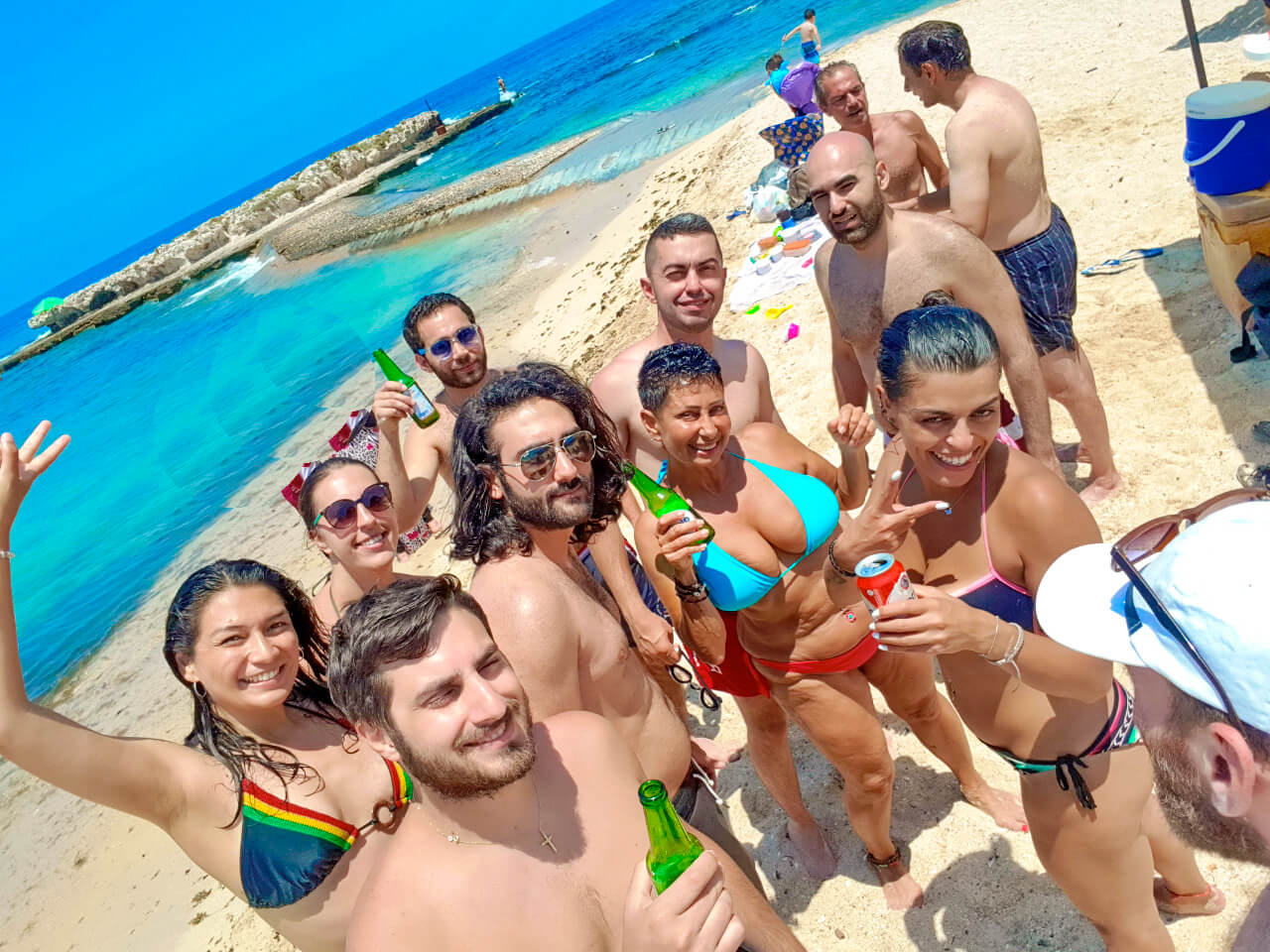
Beach Day on Rabbit Island with a group of crazy Couchsurfers.
Anjar & Baalbek
The Roman ruins at Baalbek are some of the most spectacular in the world, especially the enormous temple of Bacchus, the wine God (gotta love Roman priorities). That’s why you should visit Anjar first! Anjar is beautiful and spectacular, but after Baalbek, it will seem small and insignificant in comparison. Don’t forget to try sfeeha, the local delicacy, while you’re in Baalbek. Baalbek is also home to the Sayyida Khawla shrine, one of the most beautiful and historic Shia shrines in Lebanon.
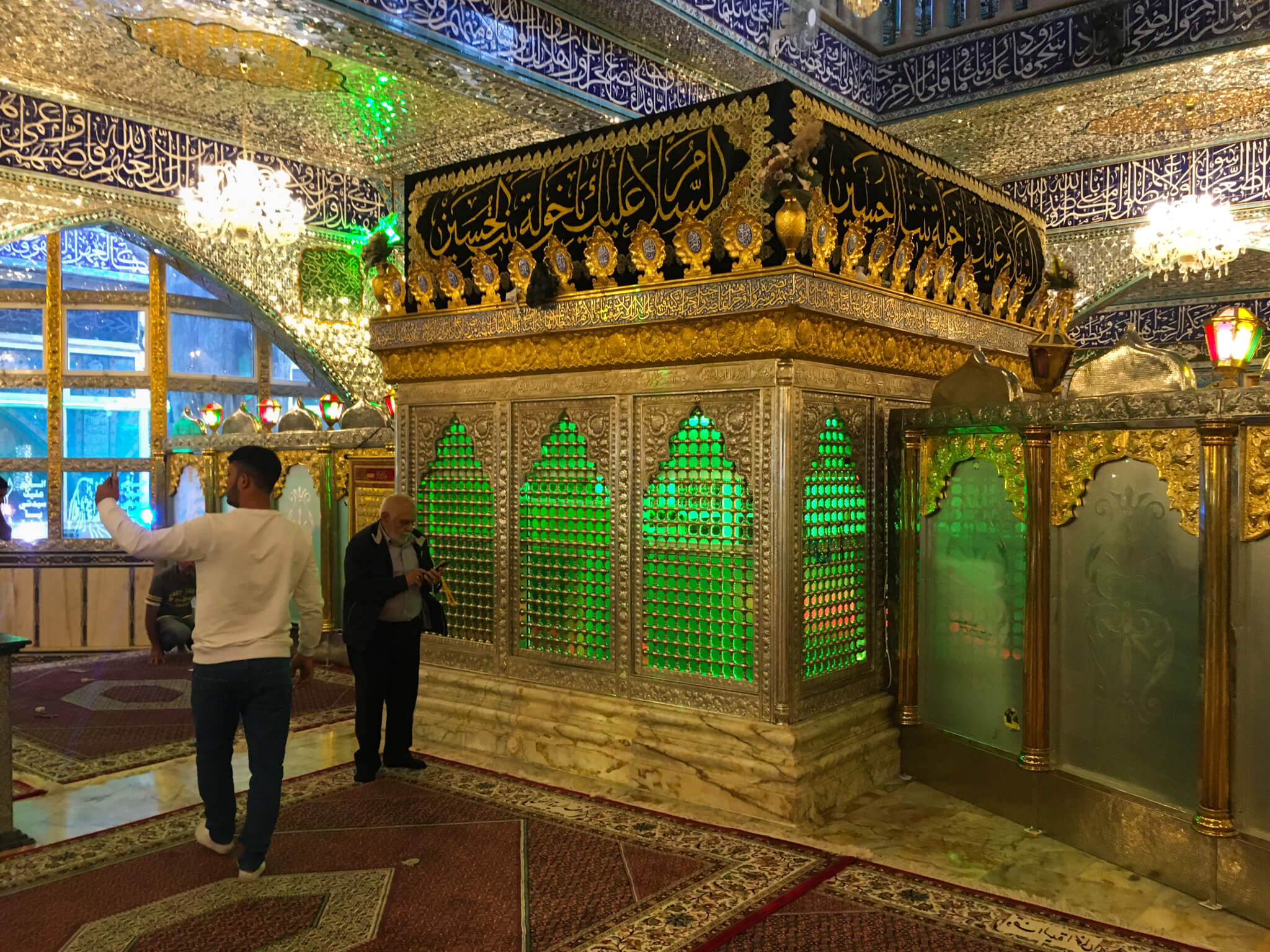
Local believe that Khawla, daughter of Imam al-Husayn, is buried in this tomb, although historians aren’t sure that Imam al-Husayn even had a daughter.
Baalbek has a bad reputation for safety, but this generally refers to other parts of Baalbek governorate, not Baalbek city. If you’re concerned about safety, just don’t go north of the city (and definitely keep away from Arsel, which has a justifiably rough reputation).
Saida & Mleeta
Saida has probably the most beautiful souk (market) in the whole of Lebanon, full of ancient stone archways and local people hawking traditional wares (and delicious Arab sweets). There’s also the small but worth-a-visit Dabane Palace Museum, a soap museum and the Hammam el-Sheikh traditional bathhouse. The seafort on the waterfront is also worth a visit (although more spectacular from the outside than inside). If you want a beer, go to Resthouse, a restaurant next to the seafort that is the only place in Saida allowed to sell alcohol. Its garden is also a great place to take photos of the seafort.
Mleeta is a tiny village in the mountains that is home to probably the most well-maintained museum in Lebanon – The Hezbollah Museum. Here, a free English-speaking guide will take you around and tell you about the various wars against Israel and Hezbollah’s role in protecting and driving out the enemy. Whatever your political views, the museum is very well done and worth a visit. It’s located about a 40-minute drive up into the mountains above Saida.
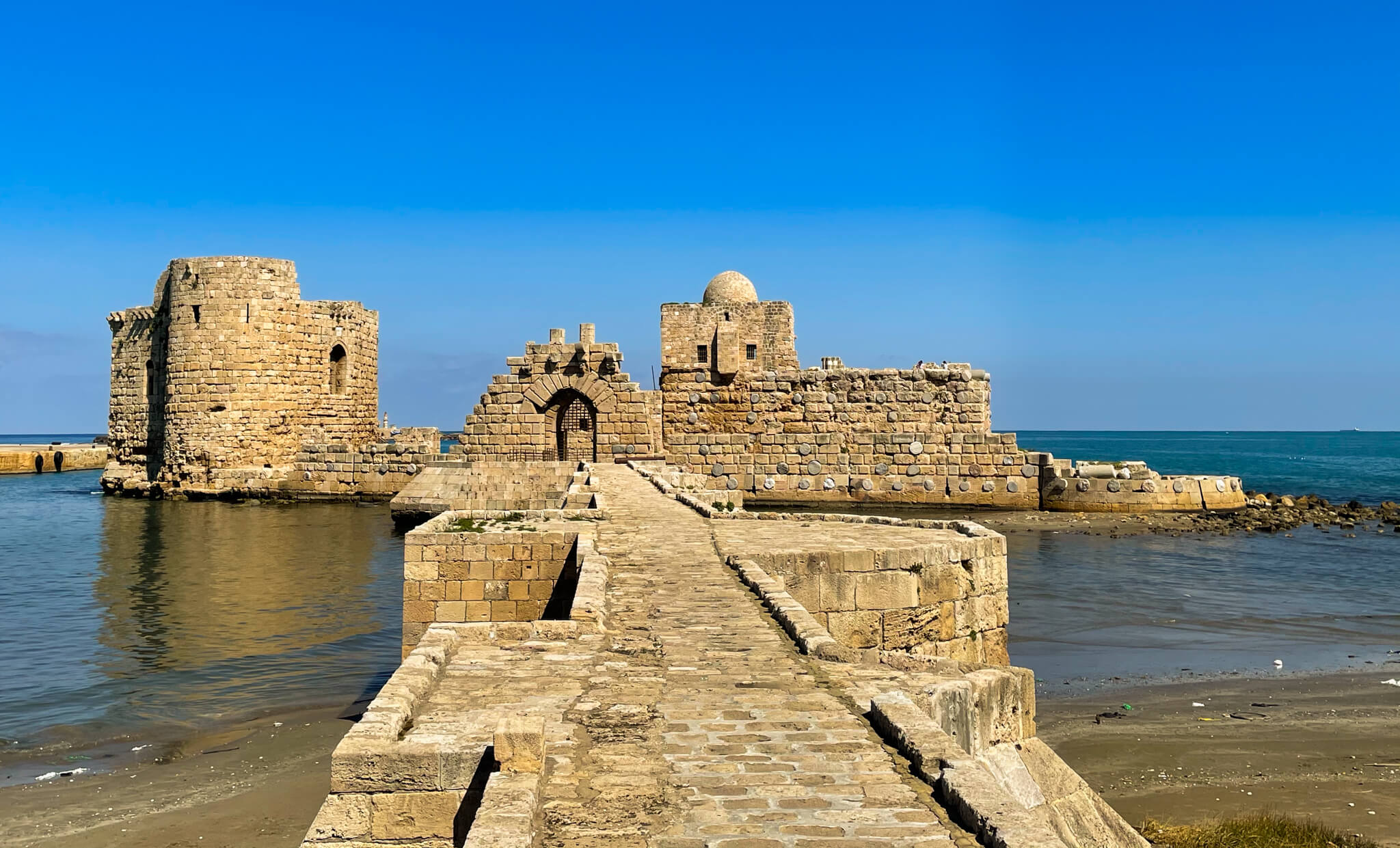
The Saida seafort – a castle in the sea.
One of the oldest cities in the world, Tyre is home to an ancient Roman Hippodrome. The site itself is a bit rundown now, but the ruins are still impressive. There’s also a pretty little old town with less tourists than other cities in Lebanon and a colourful harbour full of fishing boats. The restaurants next to it are worth checking out for some fresh seafood too. To the south of the city is Lebanon’s longest sandy beach. This was affected by the oil spill off Israel in 2021, but is now clean again and safe for swimming.
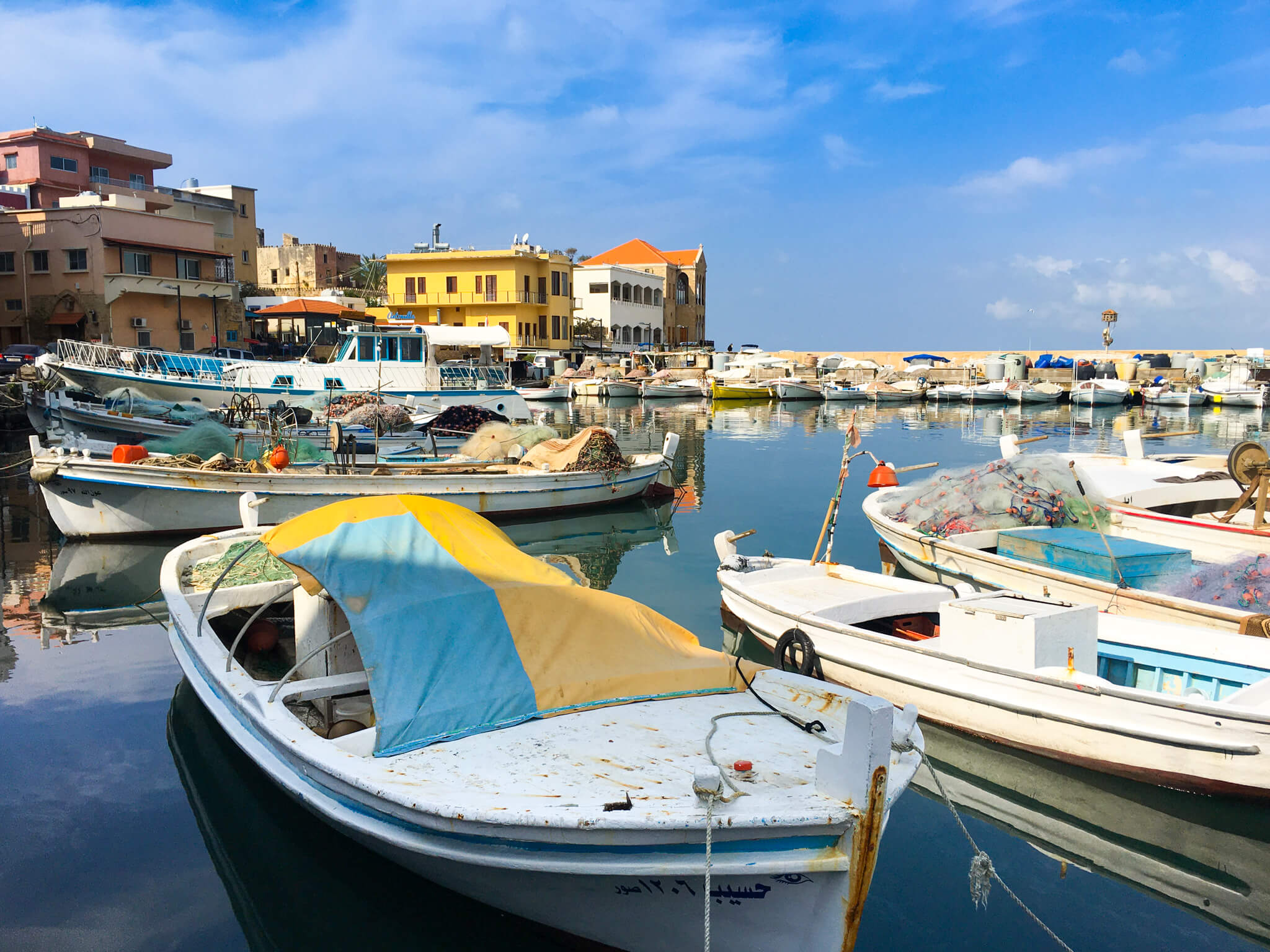
Tyre’s colourful harbour – a great place to eat fresh seafood.
The Northern Mountains
There are many beautiful places to visit in the northern mountains of Lebanon, aside from just the pleasure of driving through the local villages and the often breathtaking scenery. The three I would recommend for visitors are:
- The 2,000 year old olive trees in Bchaleeh, which are supposedly the oldest in the world. Local legends say that the olive branch from the story of Noah’s Ark came from one of these trees, but you can make up your own mind. The location is clearly marked on Google Maps .
- The viewpoint at Aqoura. Climb the rocky hill opposite the church for spectacular 360 degree views). The start point is at Saydat Al Qarn church ( here on Google Maps ).
- The Batarra Waterfall. This 255m (837 ft) waterfall, which passes through several layers of Jurassic limestone rock, is definitely the most beautiful in Lebanon. It’s best visited in the spring when there is plenty of meltwater. I went in early August once and there was no water at all.
- The Cedars of God. At possibly 2,500 years old, the Cedars of God are some of the oldest cedar trees in the world and a UNESCO world heritage site to boot.
You will need a car to reach these locations, or you could try hitchhiking.
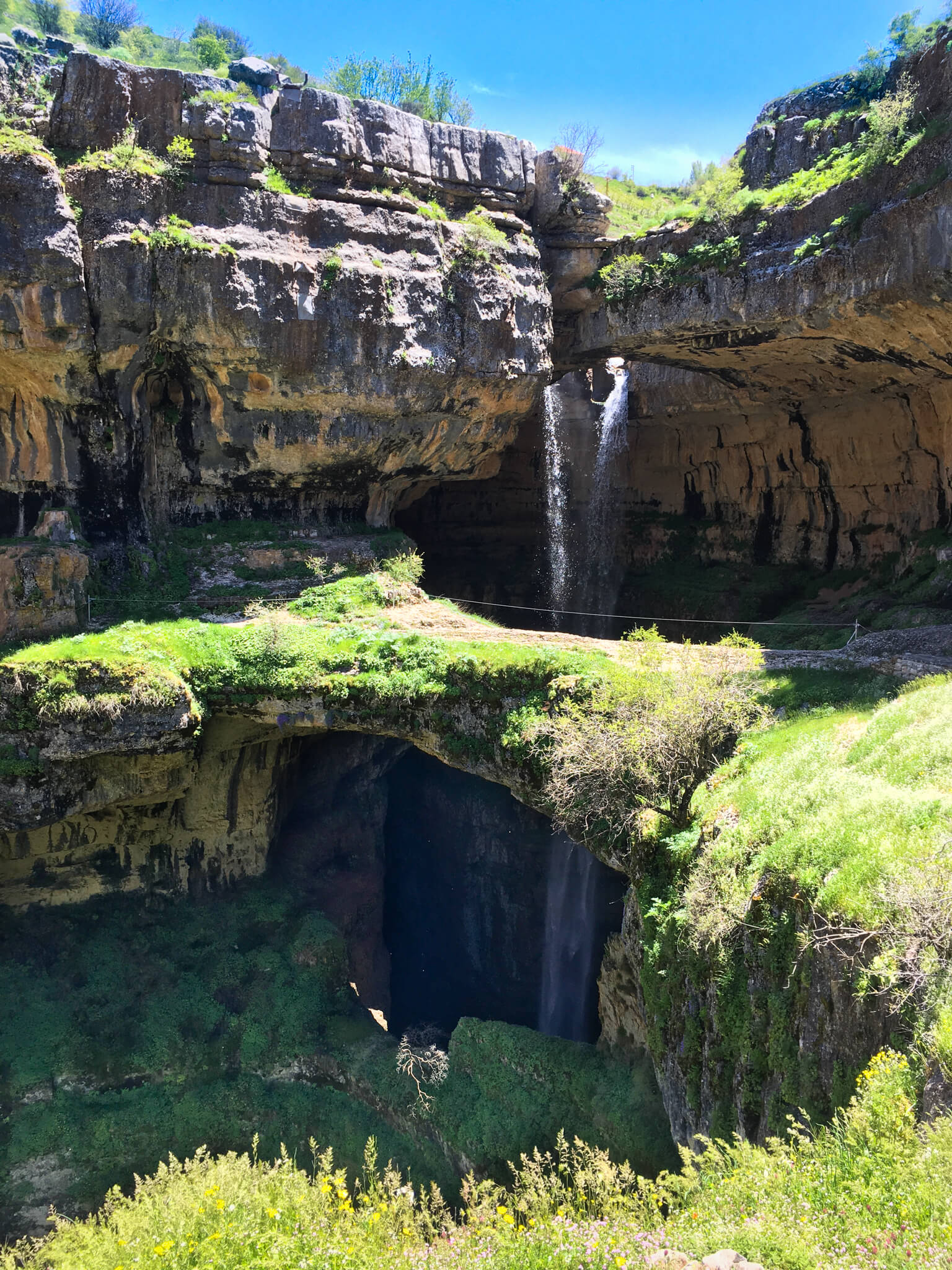
The 255m Batarra waterfall. Try throwing a stone down into the chasm below and see how long it takes before you near it hit the bottom.
The Chouf Region
Home to the majority of the Druze population of Lebanon, the Chouf region also contains the country’s largest remaining cedar forests at the Chouf Biosphere Reserve. This is a great place to do some hiking with trails from 5 minutes to a full day.
The region also contains the Bettadine palace, which was built by the Ottomans, and the Moussa Palace, which was built over several decades by a crazy Lebanese man who wanted his own palace. The latter contains a vast collection of ancient weapons and some very well done scenes from traditional Lebanese life, created with models animated in various ways. I love the concept that the guy just suddenly decided to build himself a palace!
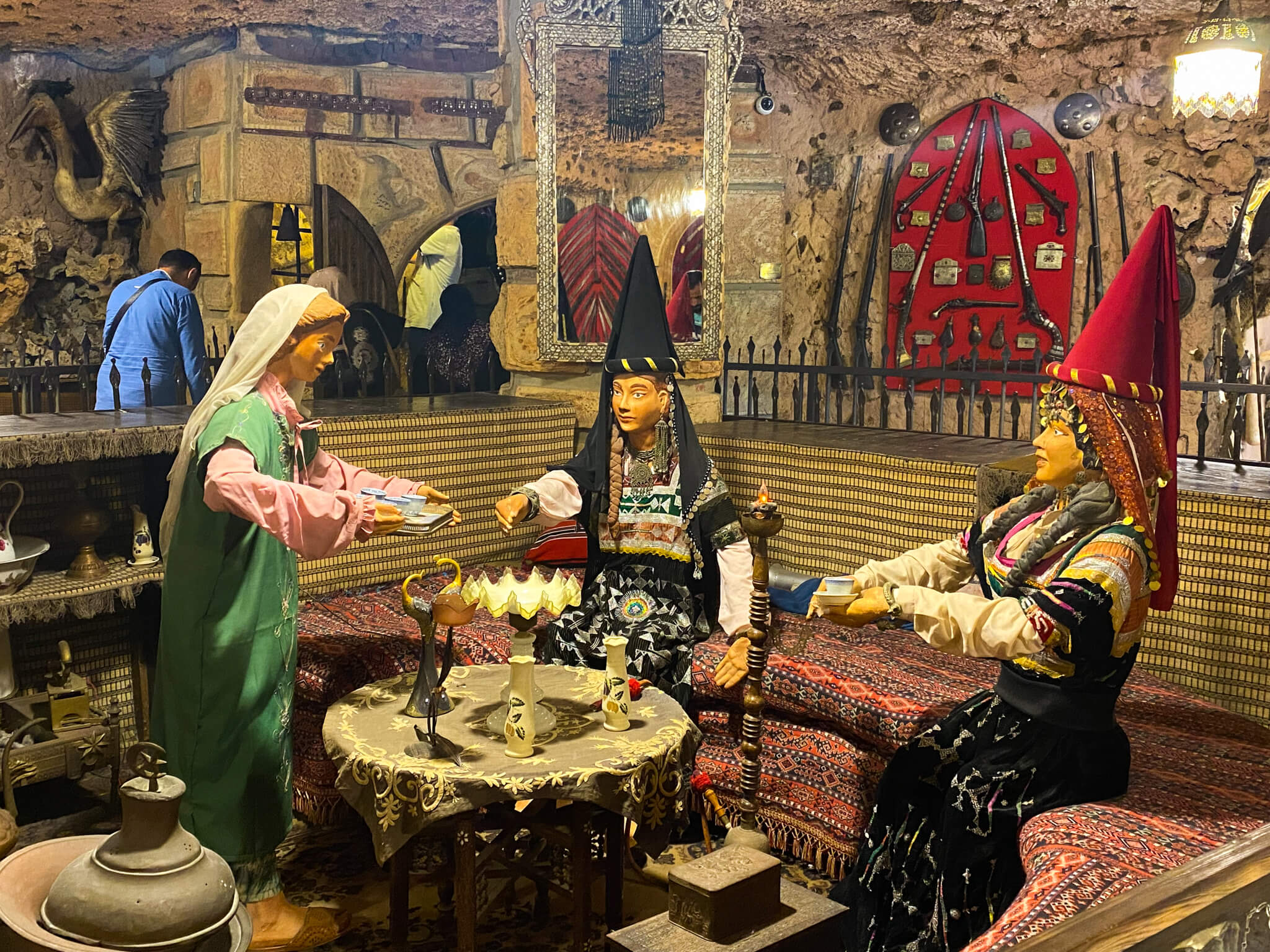
A traditional Lebanese scene in the Moussa Palace museum.
The Christian city of Jounieh used to be where Arabs from stricter countries in the Middle East went to party and unwind, as evidenced by the strip of hotels on the coast that look like they’ve seen better days. Even now, the city is still home to Lebanon’s only casino, Casino du Liban, and a bunch of ‘super night clubs’ – basically stripclubs.
For tourists not looking for such things, the main attraction is Harissa, the hill behind the city with a statue of Our Lady of Lebanon on the top. There is also a very nice (but steep) hike up from the city below through the dense forest with occasional views across the bay. The start of the path is at coordinates 33.997710, 35.650976 ( here on Google Maps ). Recommended for sunset.
Hermel and Akkar
The far north of Lebanon is known as one of its most dangerous areas, but most reports are highly exaggerated. The main attraction here is the 2,500 year-old Pyramid of Hermel, which I visited in 2021 . Even now, no one’s quite sure who built it! Worth a visit if you have the time, but its location in one of the most remote parts of the country means that it won’t fit many peoples’ itineraries.
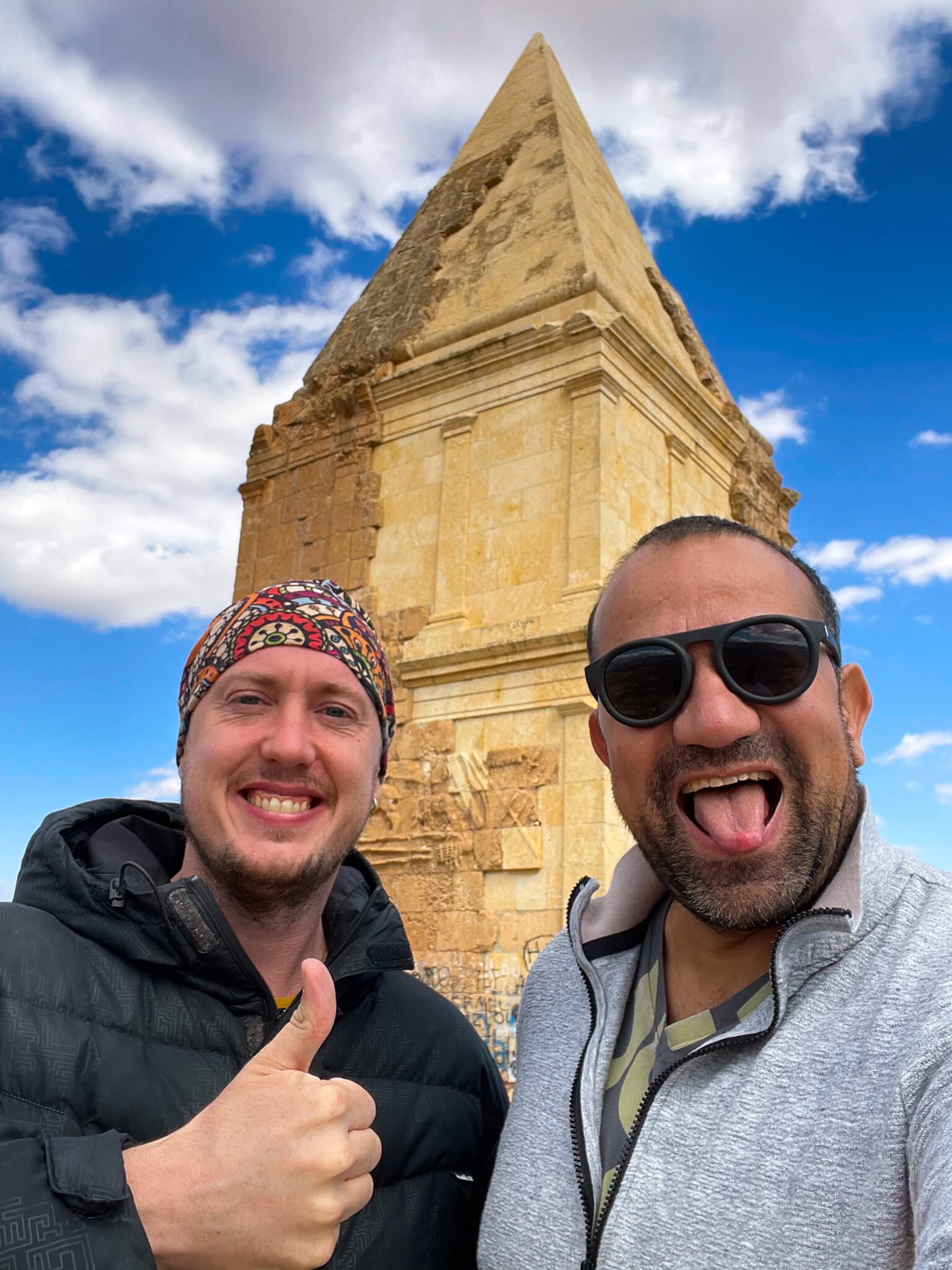
Nobody is sure why the Pyramid of Hermel was built.
The Far South (UNIFIL-Controlled Area)
The far south of Lebanon is interesting, because you can drive along beside the border wall with Israel, which is covered in security cameras and, in some places, graffiti similar to that seen in the Palestinian territories. The coast at Naqoura also have the cleanest waters in Lebanon for swimming, thanks to the low population density and proximity to Israel, which has better sewage treatment facilities than Lebanon.
The downside is that this area is under control of the UN peacekeeping force (UNIFIL) and foreigners need a permit to enter it. See below the section on Entering the UNIFIL-Controlled Area for details of how to obtain the permit.
This picturesque little village in the mountains near Saida is often overlooked by travellers, which is a pity, as it boasts one of Lebanon’s most spectacular waterfalls. For hikers, the village is surrounded by Lebanon’s largest pine forest. For those who want something darker, there’re also some interesting abandoned buildings leftover from Lebanon’s war of resistance against Israel to explore. Read more in my dedicated Jezzine guide here.
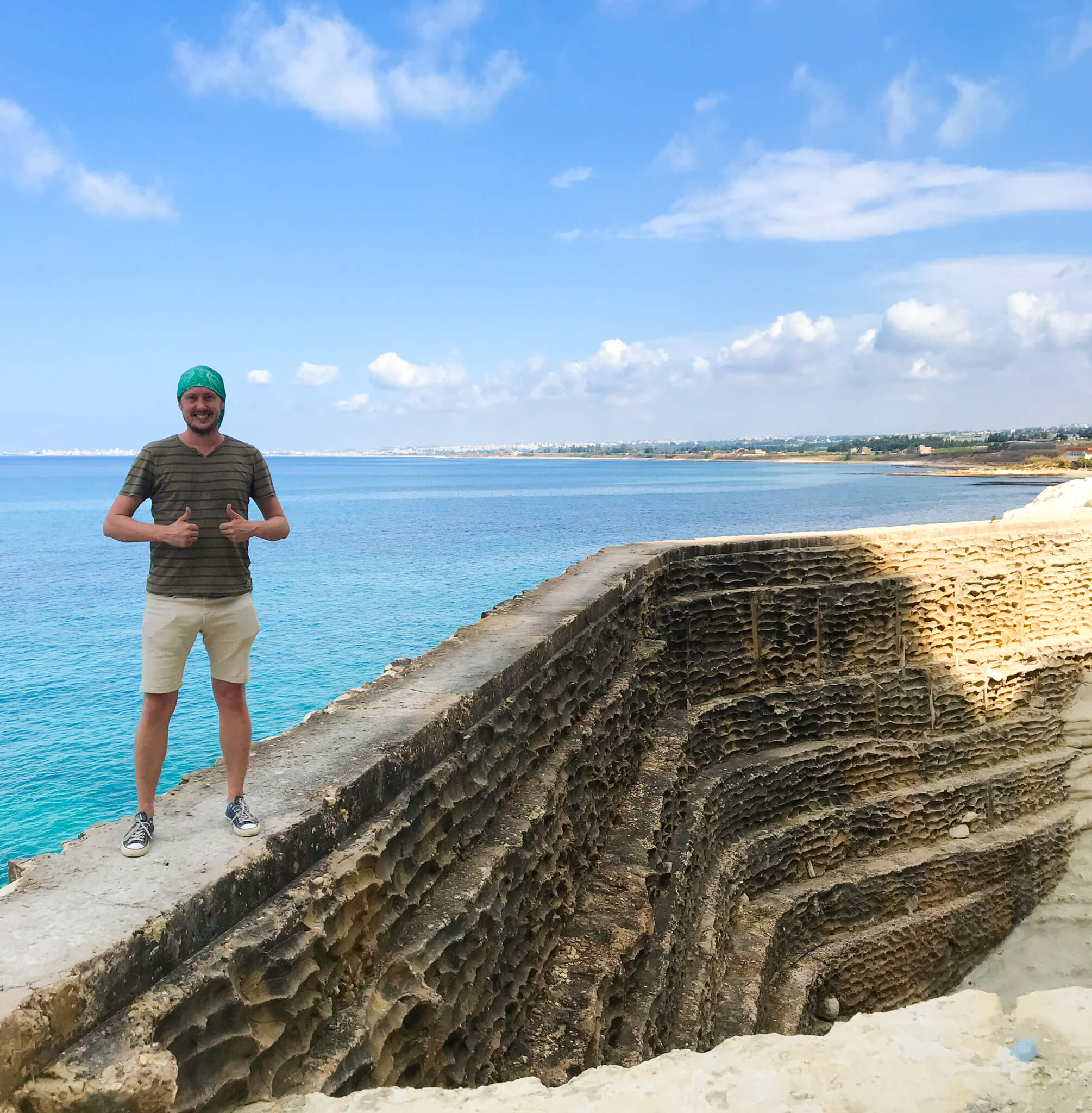
The sea wall south of Naqoura
Suggested Itineraries
Pick and choose where to visit from the places above. However, my suggestions are as follows:
Two-day Trip: Beirut – Jeita Grottoes & Byblos . This is way too short, but spend one day wandering Beirut, watch the sunset at Raouche in the evening and then head to the Jeita Grottoes and Byblos on day 2.
Four-day Trip: Beirut – Jeita Grottoes & Byblos – Saida & Mleeta – Anjar & Baalbek. Best to base yourself in Beirut for this itinerary, which covers the major highlights of the country.
One-week (7 day) Trip: Beirut – Jeita Grottoes & Byblos – Tripoli – The Northern Mountains – Saida & Mleeta – The Southern Mountains – Anjar & Baalbek. This itinerary includes most of the highlights of the country with a variety of cities, ancient ruins and nature.
Two-week (14 day) Trip or Longe r : Beirut – Jeita Grottoes – Jounieh – Byblos – Batroun – Tripoli – The Northern Mountains – Anjar & Baalbek – Saida & Mleeta – Jezzine – The Southern Mountains – Tyre . You could easily spend more than a day in many of the places listed here, making the trip more relaxing and enjoyable. Alternatively, add in some hiking or visit some random villages in the mountains, many of which are beautiful.
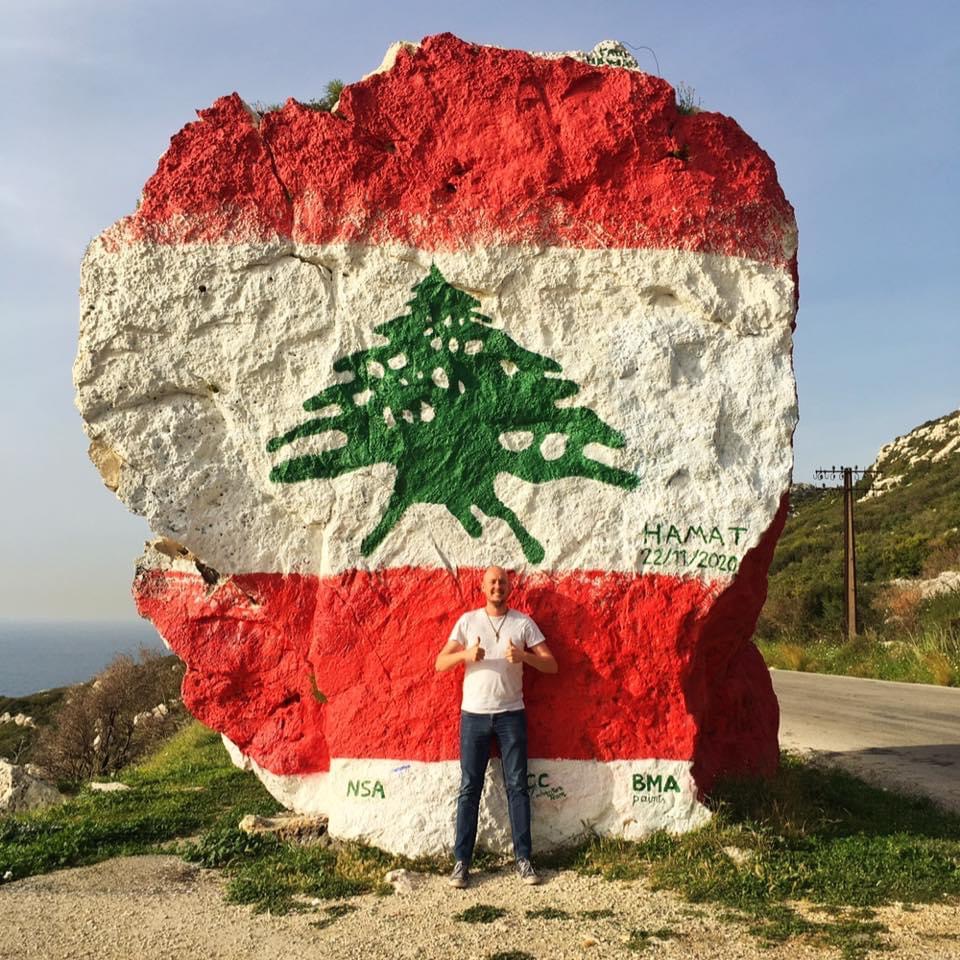
If you have the time, check out the Rock of Hamat near Batroun for a very Instagrammable pic.
I had no idea until I moved to Lebanon, but the country has some amazing hikes. My personal favourites are the following:
- Qornet As Sawda (Black Peak) – The highest mountain in not only Lebanon, but the entire Levant region, and 5th highest in the Middle East, at 3,088m. The landscape is like nothing else in the country, as barren as the moon. It gets very cold near the top and is covered in snow from around November to May, so it’s best to avoid these times. The hike starts from the Cedars ski resort near the Cedars of God and the first two hours follow the ski lifts. The total hiking time is about 8 hours and it’s long, but not difficult.
- The Chouf Biosphere Reserve – The largest cedar forests in Lebanon make for some beautiful hiking. The reserve is clearly marked on Google Maps and is suitable for short or long hikes.
- The Qadisha Valley – Possibly the most beautiful place in the whole of Lebanon, a Colombian monk lives in a tiny monastery perched high on a cliff above the valley. The path to the monastery is narrow with beautiful views and not particularly difficult, although the monk himself has stopped meeting visitors recently, due to the risk of Covid, as he is very old.
- Jabel Moussa Biosphere Reserve – There are many hikes here, from short 3-5km jaunts to 20km marathons and over steep mountain paths. The highlight is Chouwen lake, which is a beautiful turquoise blue. It’s also possible to swim in it during the summer.
- Bkassine Pine Forest – The largest pine forest in Lebanon is riddled with beautiful hiking trails. Check out my Jezzine guide for details .
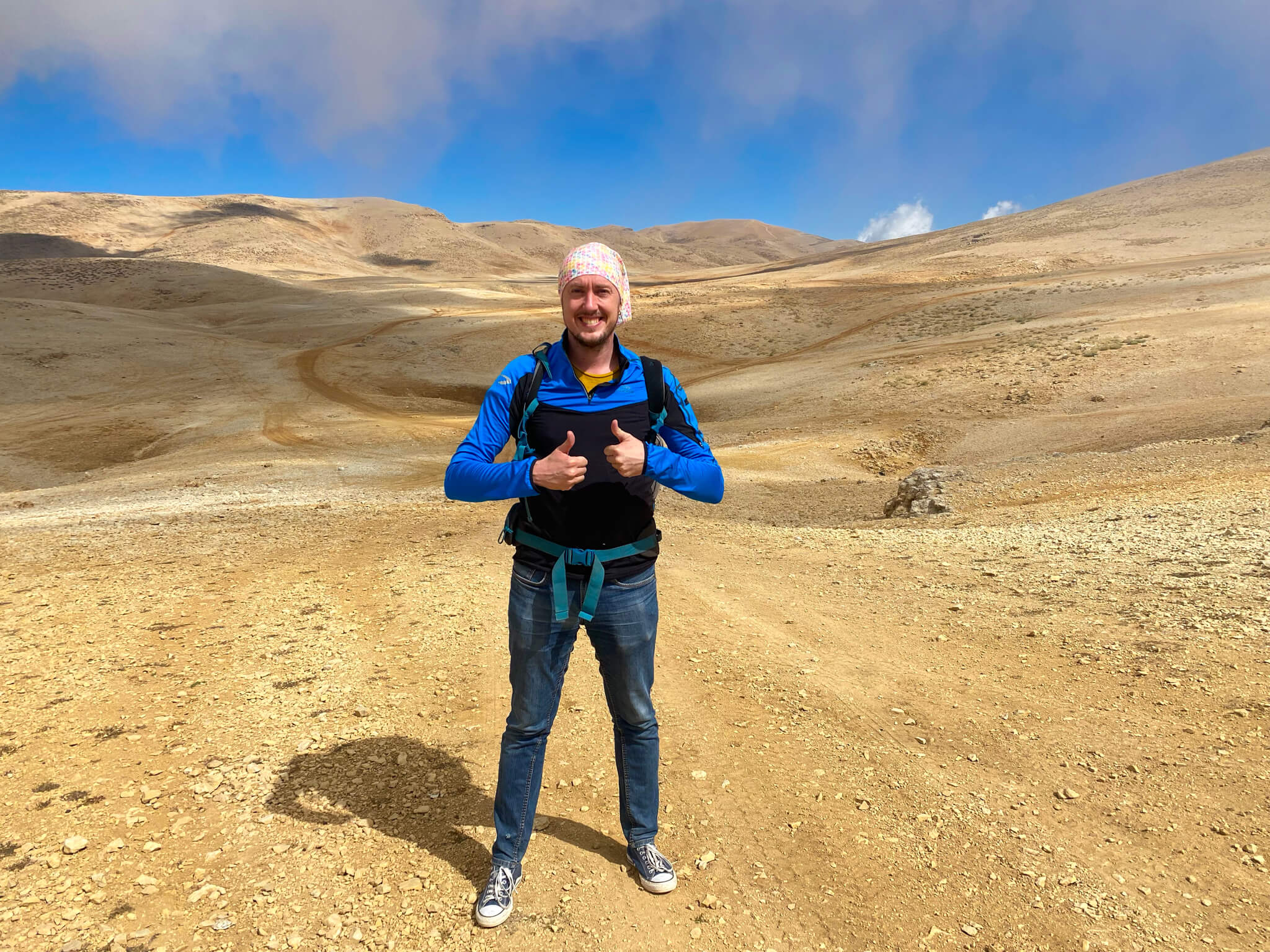
The moonscape of Qornet As Sawda is like nothing else in the whole of Lebanon.
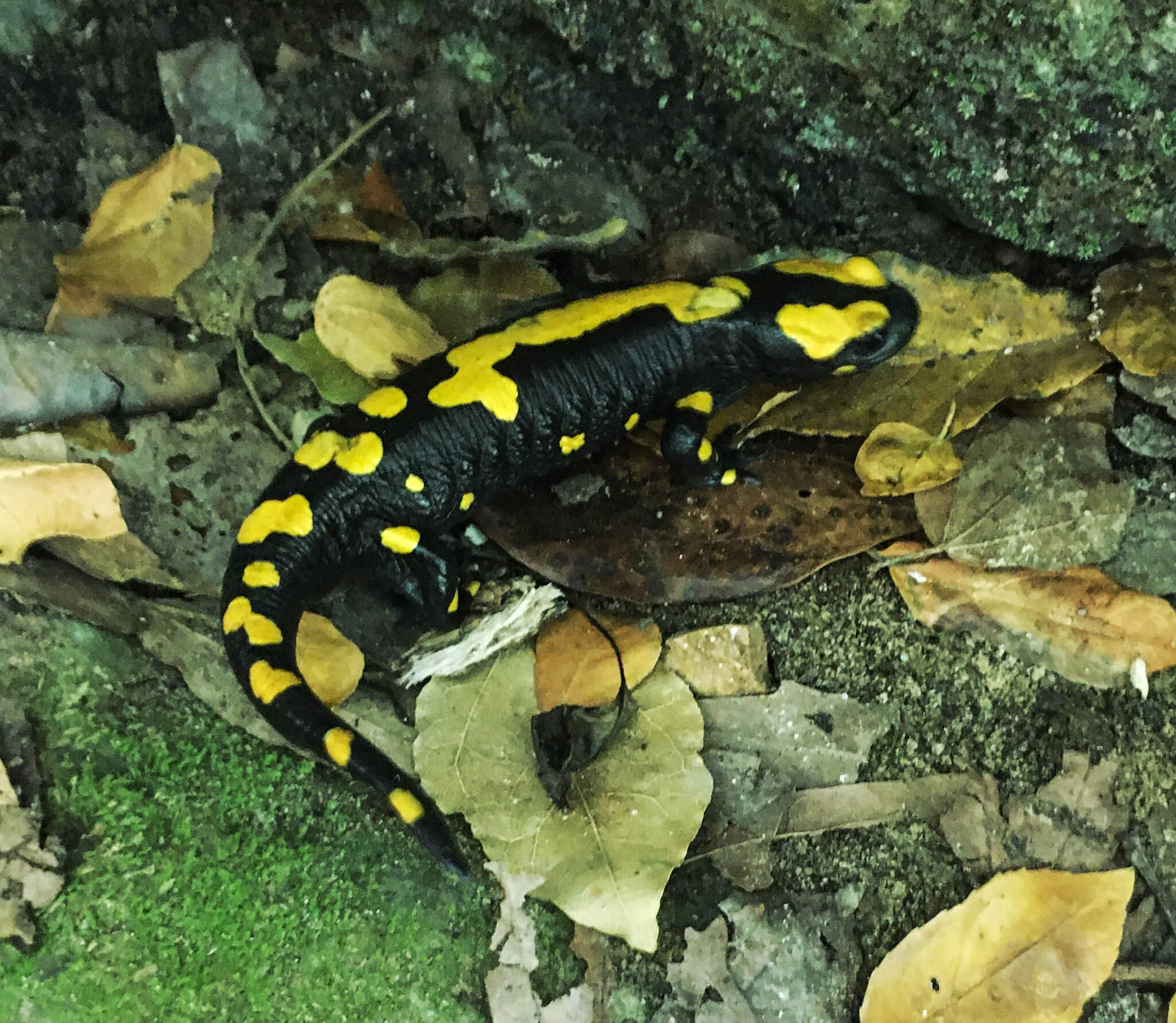
A rare near eastern fire salamander, spotted by yours truly while hiking in the Chouf region.
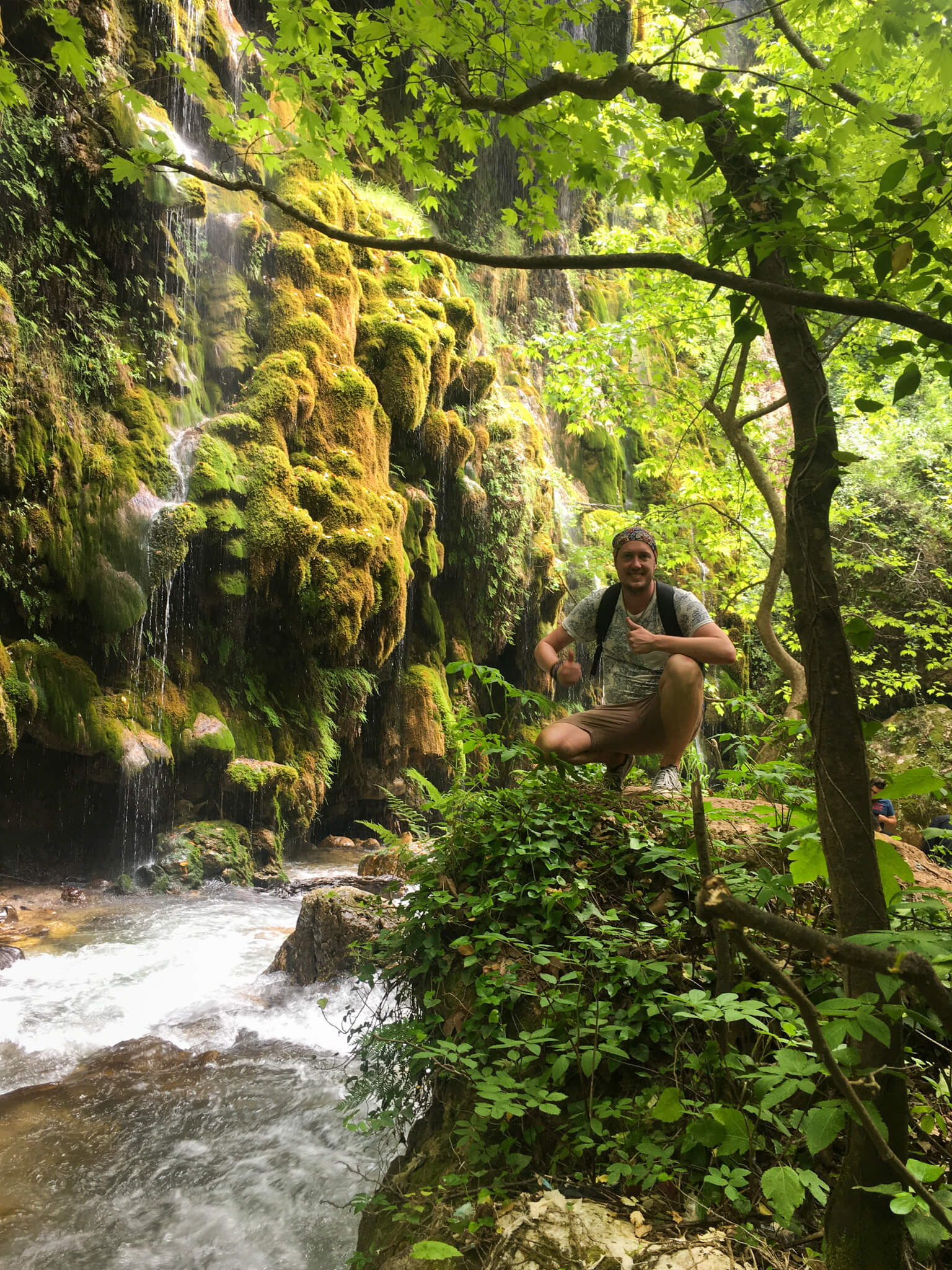
Anyone who thinks the Middle East is only desert and camels has never been to Lebanon – the lush green of the Qadisha Valley is like something out of a Disney film.
Impact of the Crisis – Electricity
Lebanon’s national grid currently only supplies about 1-2 hours of electricity per day to most parts of the country, due to a shortage of fuel, insufficient capacity and various other factors. This is terrible if you’re local and don’t have a backup power supply. However, for tourists it’s actually not that big a problem, as major hotels have good generators that provide 24/7 power and most restaurants and other businesses also have generators, if not all the time.
The best advice here is check with your hotel before visiting. Some generators are not designed to run 24/7 and so buildings can have gaps without power. My apartment currently has seven hours in 24 with no power, split between the night and morning, when they let the generator ‘rest.’
The electricity crisis has made the roads more dangerous – many street lights and traffic lights are not operating. If you do drive in Lebanon, when you come to a junction without working traffic lights, just slow down and drive slowly through. Most Lebanese drivers are very cautious at these junctions, as the economic crisis has made imported car parts astronomically expensive and no one wants to damage their car.
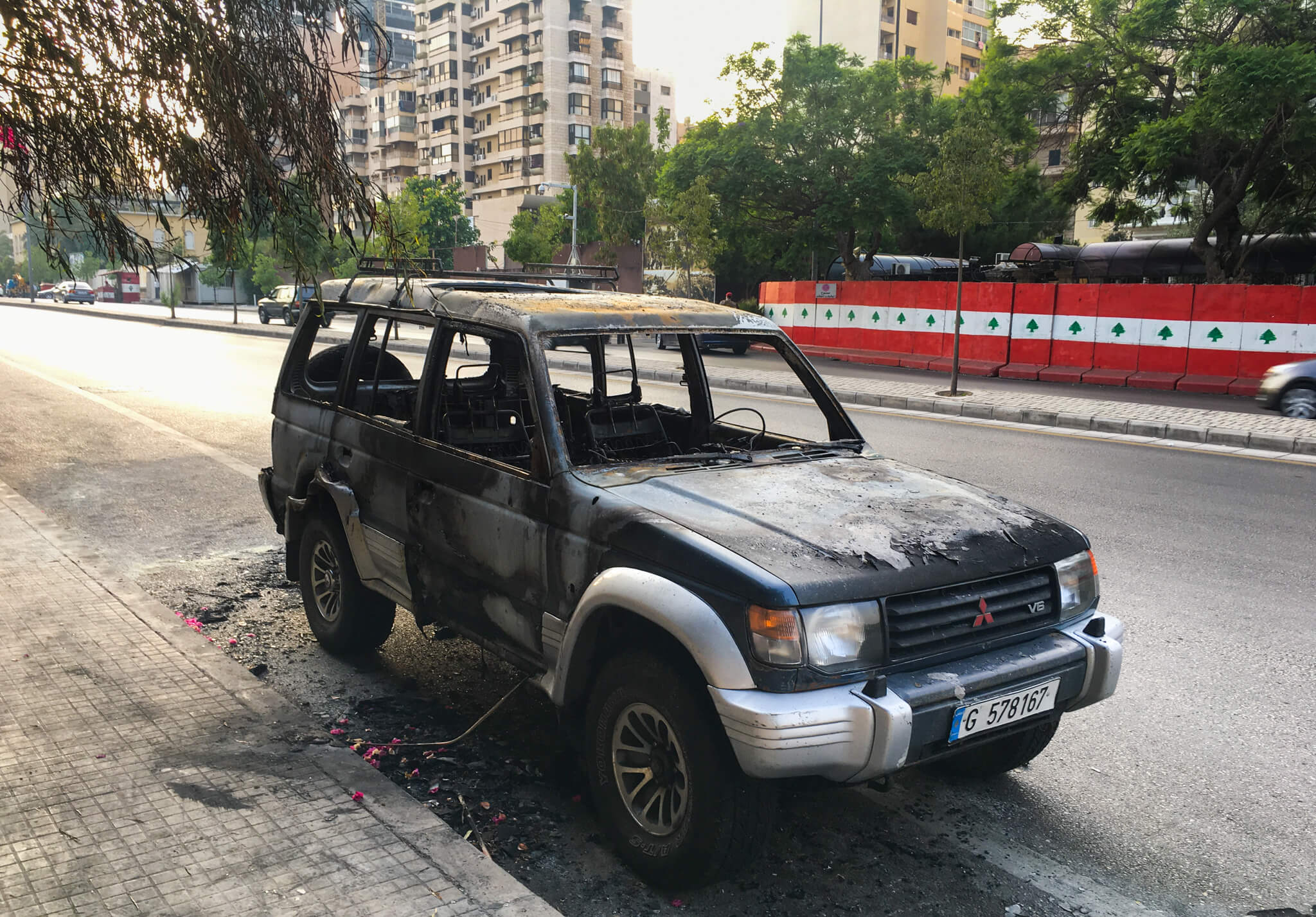
Protests occasionally turn violent, but luckily protest areas are easily avoided by visitors.
Impact of the Crisis – Hyperinflation
The most important thing to remember is to bring enough cash for the duration of your stay. The best currency to bring is USD, but other common currencies, such as EUR and GBP, can also be exchanged at black market rates. Licensed currency exchange shops are now permitted to exchange currency at black market rates, so you no need to be hooked up with a black market dealer.
Pro tip : before coming to Lebanon, download the Lira Rate or Lira Exchange app for your smartphone. These apps show the current black market rates and, although the rate on the street is usually slightly lower, give you a good guide as to the approximate rate you should expect when changing money.
If you do run out of money in Lebanon, don’t withdraw money from an ATM if you can possibly avoid it. ATMs currently operate at the official rate of 15,000 LBP to the USD, so you’re losing most of your money to the banks. The same applies to paying for things priced in LBP with credit/debit cards. ATMs no longer offer USD currency withdrawal for foreign bank cards. The best approach for travellers is to use a currency transfer service like MoneyGram or Western Union, which allow you to transfer in foreign currency and collect it in USD.
One knock on effect of the economic crisis is that Lebanon is now significantly cheaper than it used to be. Hotels have started charging foreigners in dollars again, but everything else, and especially food, is much cheaper than it was before. A good Lebanese meal for two in a normal restaurant will usually cost about $15, including drinks. In a slightly more upmarket restaurant, expect to pay around $30.
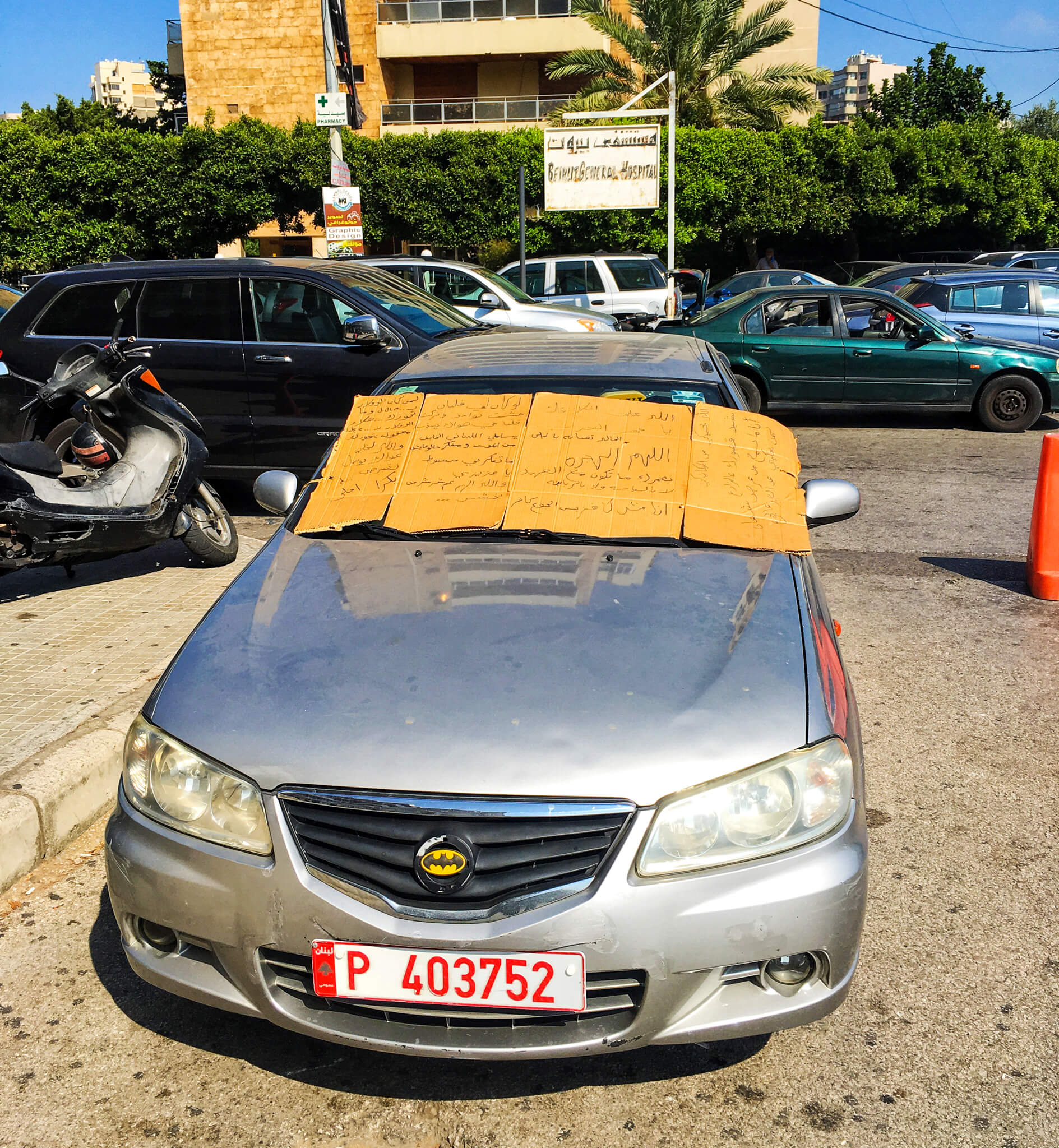
The economic crisis is so bad that Batman had to trade in the Batmobile.
Impact of the Crisis – Safety
Crime rates in Lebanon are very low and, although they have risen recently as people become increasingly desperate, rates of petty theft are still lower than in most of Europe and criminals in general do not specifically target foreigners. That said, the atmosphere can feel tense and the fortifications erected in some areas (lots of barbed wire, concrete barriers and patrolling soldiers) can give the impression that the safety situation is worse than it is.
Most violent incidents that have been in the news recently have occurred during protests, often of a political nature. If you do see the beginnings of a protest, such as groups of people marching together or tyres burning in the road, simply turn around and leave the area. Protests usually start peacefully, but build to a point where the demonstrations spill over into violence. Again, protests do not target foreigners, but there is a risk of being caught in the violence if you stick around.
An unfortunate legacy of the Lebanese civil war is that a lot of the populations still own guns. At a recent protest in Beirut, not only were there shootings with machine guns, but the violence escalated with the use of RPGs. This is an extreme case. Again, I stayed away from the area.
Guns are also often used at funerals or celebrations, where they are shot into the air in waves of celebratory gunfire. Unfortunately, what goes up must come down, and people are occasionally killed by falling bullets or by bullets entering buildings through windows. If you do hear shooting while you’re in a building, move to the interior, away from the windows and wait for it to subside. If you’re outside, leave the area. Funerals rarely happen in the city centre, which is the most interesting area for foreign travellers, so you probably won’t come across them anyway. Furn El Chebek, Chiyah, Tariq El Jdideh and Jnah are common areas for funerals.
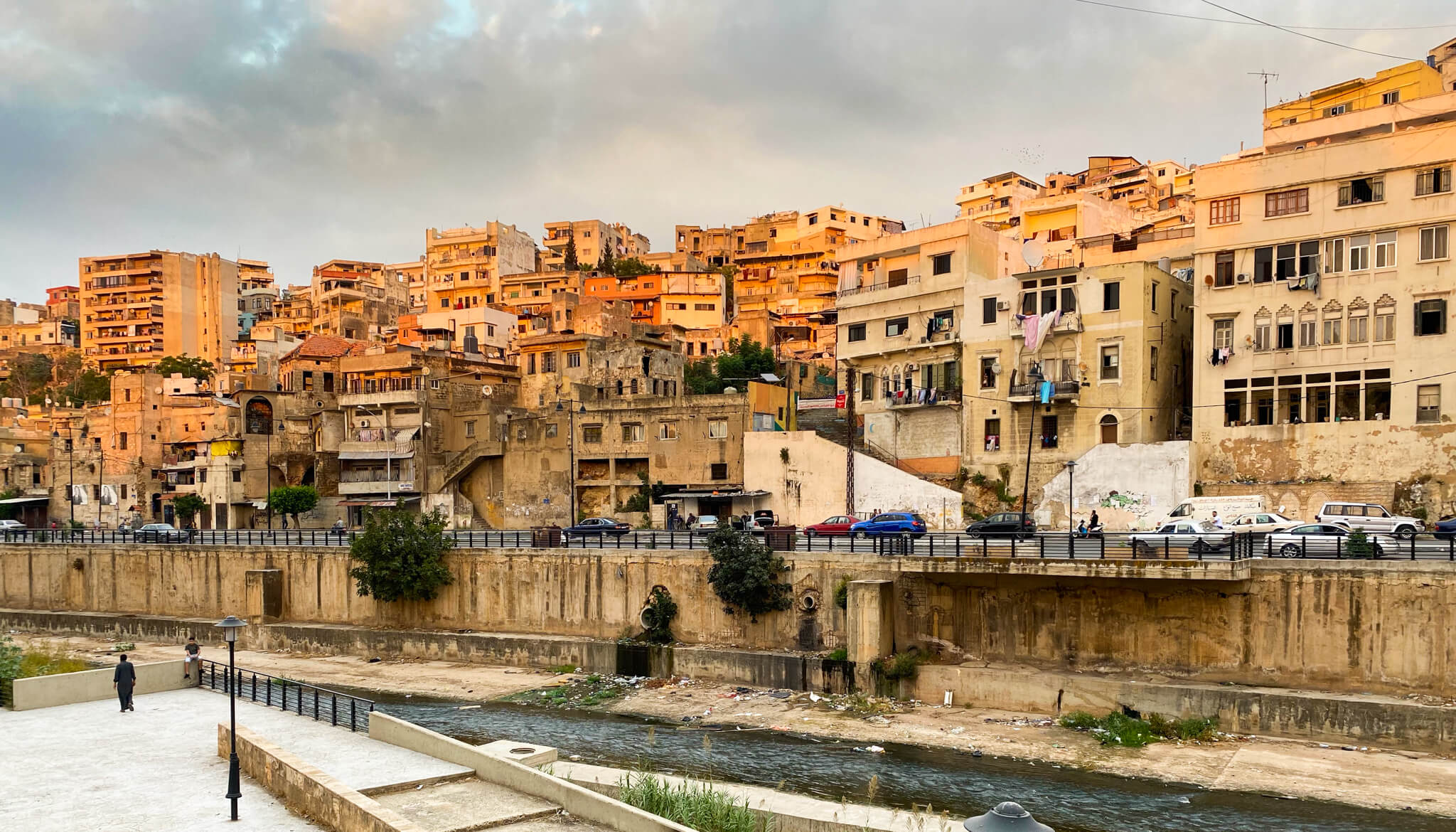
Lebanon is generally very safe. Even walking through the slummier neighbourhoods of Tripoli, Lebanon’s poorest city, I never felt unsafe.
Certain areas of Beirut experience violence far more than others. In general, the southern suburbs of Beirurt, south of main road where the National Museum of Beirut is located, are less safe than the city centre. In particular, Chiyah, Cola and Tayouneh and Tariq El Jdideh have all seen violent protests. Martyr’s Square and the Beirut souks area also see frequent protests, but these tend to be less violent than those in the south.
As a tourist, the only areas you’re likely to visit to the south are Badaro (an upmarket bar street) and the Cola Intersection, as it’s the main hub for public transport to the south and the Bekaa Valley. I visit these locations regularly and have never had problems, but keep an eye out just in case.
This may all sound very scary, but actually Lebanon is very safe for tourists. Even now, by far the most dangerous thing is the roads, where accidents are frequent. Just use a bit of common sense and you’ll be fine.
Impact of the Crisis – Fuel
One of the best ways to see Lebanon, and especially the more remote parts, is to rent a car and drive yourself. During the summer of 2021, fuel became extremely difficult to obtain, often requiring queuing for hours (if you can even find a fuel station that’s open). The only other option was to purchase it on the blackmarket at vastly inflated prices.
The good news is that, since the end of September 2021, fuel has been readily available again. The government has let the price of fuel rise to close to market value, which has reduced incentives for fuel hoarding and smuggling to Syria.
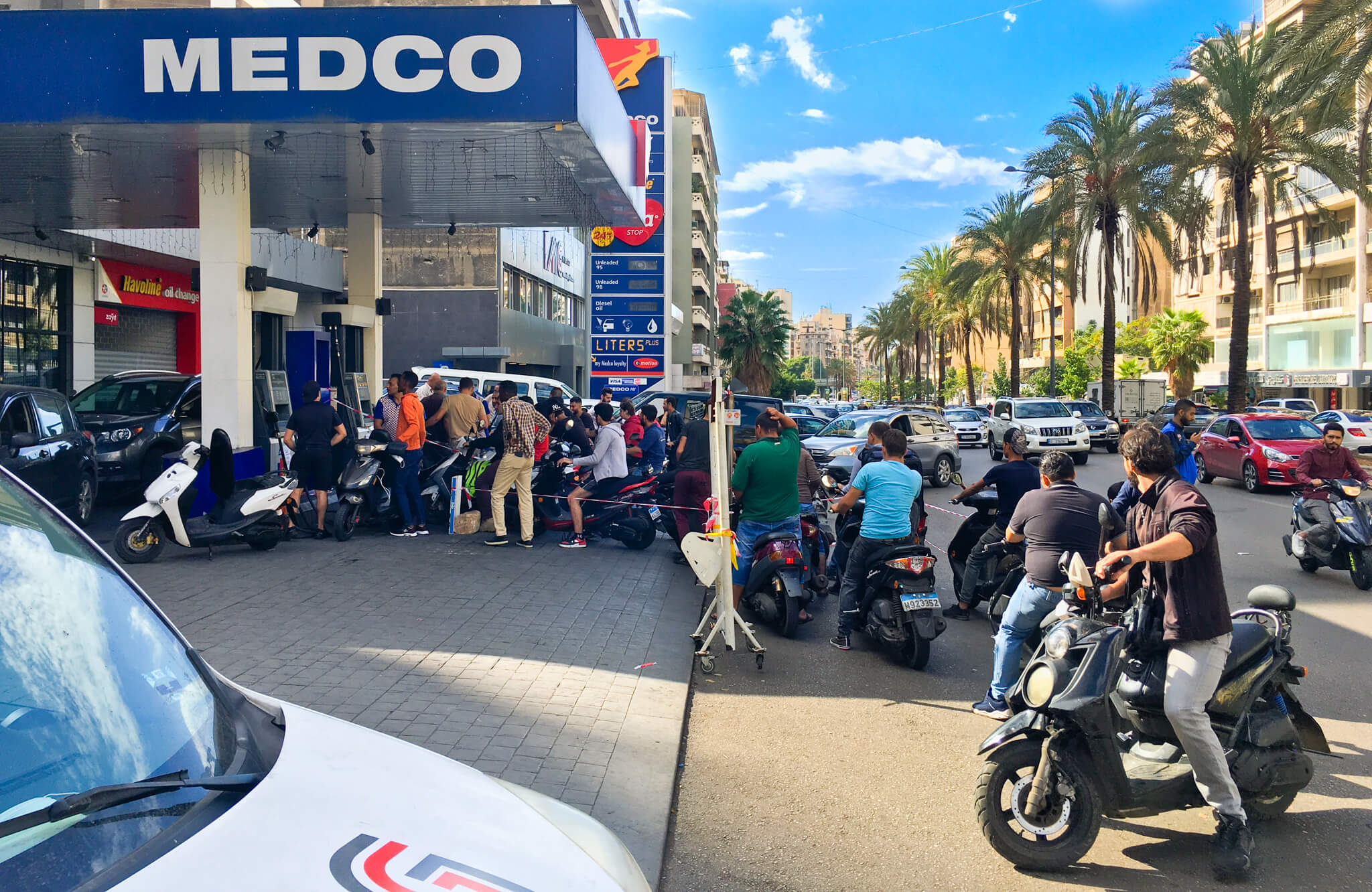
Bikers queuing for fuel at the peak of the fuel crisis in 2021
Ethics – Should I Visit Lebanon During the Crisis?
With frequent power cuts and shortages of some products, many people question whether they should visit a country while it’s in crisis, as they feel they may be using limited resources that are needed by the local population. In the case of Lebanon, the answer is definitely yes, you should visit. Lebanon produces very little domestically – even 80%+ of food is imported. Shortages are not caused by a lack of supply on global markets, they’re caused by a lack of financial means to purchase supply (compounded by corruption and a range of other factors).
By visiting Lebanon, you are bringing much needed foreign currency into the country and, by buying products and services from local businesses, ensuring that it reaches local people who need it. One of the biggest problems for Lebanese people is that the value of the LBP to the dollar is so low, which makes imports expensive. Everytime there is a large influx of visitors, for example with the Lebanese diaspora returning home over Christmas, the LBP gains value, helping local people. This shows the positive effect that an influx of foreign currency has and, as an individual your contribution will be small, but will certainly be positive. In other words, don’t feel bad about visiting!
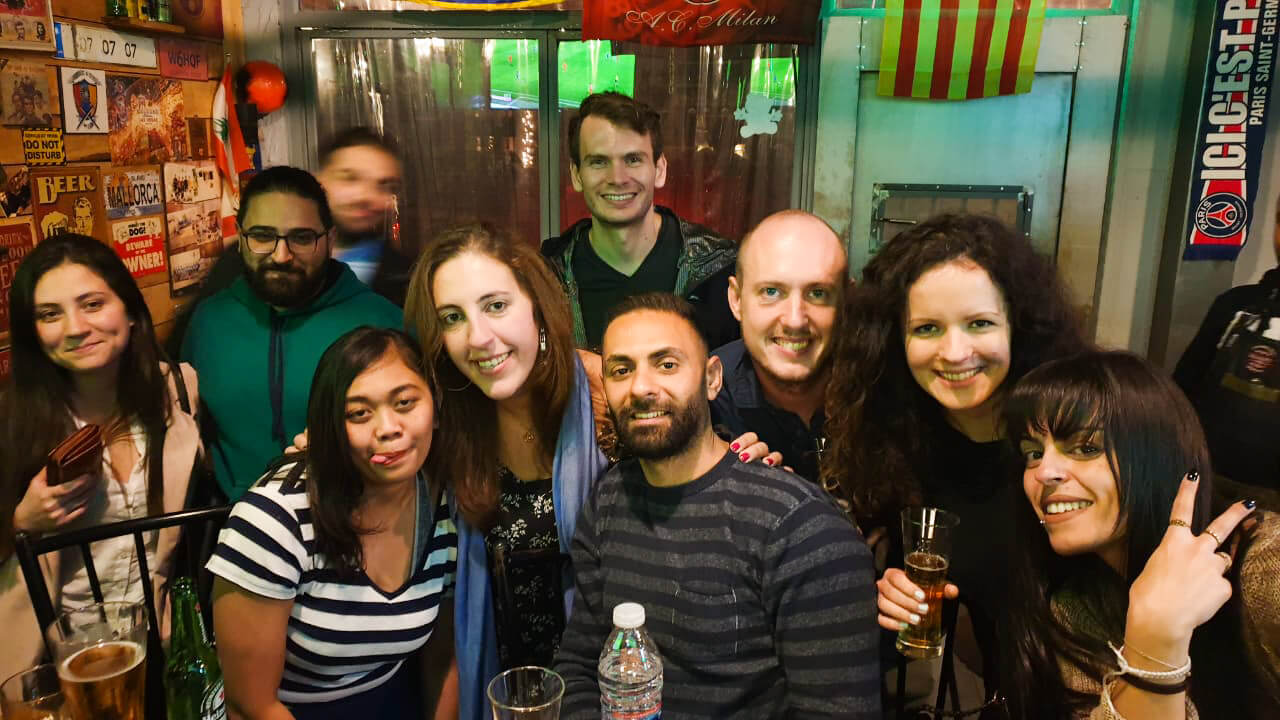
Lebanese people are very good at enjoying life, even in the middle of a crisis.
One of the best ways to see Lebanon is to rent a car. Car rentals are cheap now (about $20/day for a small car, including insurance) and Lebanon is a very car-based society. A deposit of around $100 is often requested in cash for your first rental. So far, I’ve not heard of any problems having this refunded. In theory, an International Driver’s Permit is required, but in reality no one cares, at least not if your local driver’s licence is in English, French or Arabic.
I usually rent from Mike Rent-a-Car, which is a good option if you want to support local businesses. The price is generally $20-30/day depending on the season for a small car and their Website is at www.mikerentacar.com . Their office in Beirut is located here . Alternatively, the big international car rental companies, such as Avis and Europcar , also operate in Lebanon. They also have the advantage of having a presence at the airport, so you don’t need to bother with other transport to get to your accommodation.
Cars and Drivers
If you don’t feel confident driving in Lebanon, it is possible to hire a car and driver from a hotel or hostel. This can cost upwards from around $70 a day plus fuel, but hotels may charge significantly more.
Ride Hailing Apps
Uber and Bolt both work well in Beirut. Bolt is usually slightly cheaper, but Uber cars are generally in better condition and the drivers are more professional. These apps are also by far the cheapest way to get to or from the airport in Beirut. Just be sure to change the payment method to cash, as credit cards are billed at the official exchange rate so you’ll end up paying $50 for a 5-minute trip across town.
Public Transport
Lebanon has an informal public transport network made up for service (shared) taxis and minibuses. These are operated privately with pricing regulated by the government. There are also public buses from Beirut to Tripoli. Vehicles licensed for public transport, including taxis, all have red number plates (or red lettering on the number plate).
To catch a service (shared) taxi, stand on the edge of a road (main roads are usually better) and hold out your arm when a taxi comes past (look for the red number plates). Ask the driver “Service?” If he agrees, it means the taxi is shared, so you will not be charged for a private journey. Then tell him your destination. If he’s going in the right direction and willing to take you there, he’ll agree. Finally, ask him the price. Most drivers are very honest, but a few do try to overcharge foreigners.
Inside Beirut
Service taxis operate throughout Beirut, although explaining the destination can be tricky. Often, the easiest approach is just to say the name of the area, such as “Hamra,” “Gemayze,” “Daora,” or “Cola.” Minibuses on set routes also operate, but finding the routes is extremely difficult, so use the same approach as when taking a service and ask the driver whether he goes to your destination. Prices for service taxis are just over $1 and for minibuses around $0.50.
Northern Lebanon
Shared taxis and minibuses run from the Daora roundabout in Beirut up the coastal highway to Jounieh, Byblos, Batroun and Tripoli. Prices vary, but are cheap, starting at about $1 to Jounieh. Just ask the drivers whether they go to the city you want to reach.
For Tripoli, there’s also a bus that runs on an actual schedule from Martyr’s Square in Beirut.
Their current schedule can be found on their Facebook page at https://www.facebook.com/connexion.transportation .
Southern Lebanon and the Bekaa Valle y
Minibuses run from the Cola Intersection in southern Beirut down the coastal highway to Saida and Tyre, as well as to Baalbek in the Bekaa Valley and to the Chouf region. To visit the Chouf Biosphere Reserve, catch the bus to Barouk, the name of the nearest village. From there, you need to walk several kilometres to enter the reserve and there is no public transport. Hitchhiking could be an option.
To reach Anjar, take the minibus to Baalbek and get off at Chtoura. From here, there are other minibuses running to Anjar.
The Jeita Grottoes
The Jeita Grottoes are located about halfway between Beirut and Byblos, approximately 5km from the highway. Take public transport from the Daora roundabout and get off at the Ajaltoun exit of the main highway (coordinates 33.960616, 35.604071, here on Google Maps ). From here you can either walk (5km uphill) or take a taxi. There are usually several drivers hanging around this area, although prices can be high and will depend on your negotiation skills. To get back to the highway afterwards, you can usually find a driver in the Jeita Grottoes carpark. Another good option to reach the Jeita Grottoes is to take an Uber all the way from Beirut. Uber is cheap in Lebanon, so this works out around the same price.
I’m not aware of any public transport option to reach this area of the country (including Aqoura, the Batara waterfall and the Cedars of God), so your options are really driving or hitchhiking.
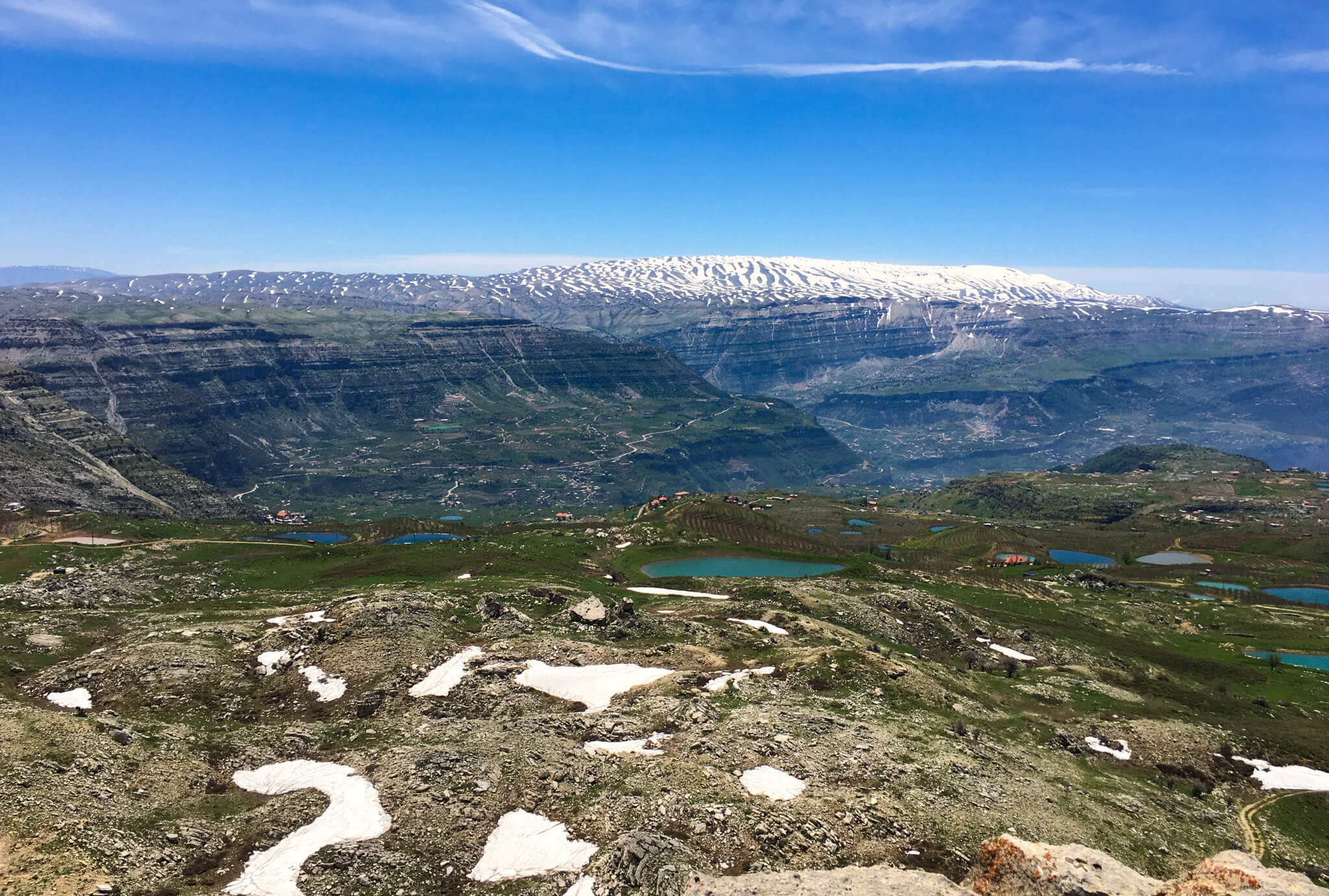
The view from Aqoura – there is still snow on the mountains in early May. The northern mountains are a pain to get to without a car, but worth the effort.
Transport to and from Beirut Airport
Uber is a cheap and convenient way to get to or from the airport in Beirut. This should cost around $6. However, this can be tricky when first arriving, due to needing to obtain Lebanese pounds to pay the driver. If the exchange counter at the airport is not open or the rate is bad, you can try negotiating with the Uber driver to pay in USD at the black market rate.
There are always plenty of local taxis waiting at the airport to take you to the city centre. These often try to charge ridiculous rates to foreigners – up to $50 for the 10-15 minute journey. With a bit of bargaining, you should be able to agree on around $10.
Checkpoints
There are military checkpoints on the roads throughout Lebanon and even within some parts of Beirut. Generally, they wave foreigners through without saying anything. If driving yourself, slowdown at the checkpoint, wind down the window and greet the soldier. Most times, he’ll wave you though before you even come to a stop.
In my two years here during which I’ve travelled the country extensively, I’ve been asked twice for my nationality and had my passport checked once (so carry it with you, just in case), and that was on the road between Hermel and Qobayat, one of the most remote parts of the country.
Entering the UNIFIL-Controlled Area
The only exception to the above is the checkpoints for entering the UNIFIL-controlled area south of the Litani river near the border with Israel. Foreigners can only enter with a permit obtained in advance (with the exception of UN employees). To obtain the permit, visit the police headquarters in Saida with your passport. The police station is at coordinates 33.550327, 35.381710 ( here on Google Maps ). You need to bring your passport and colour photocopies of the identity page and your entry stamp to Lebanon (and visa, if you come from a country that needs a visa to enter Lebanon). It generally takes less than one hour and permits can be issued for entry on the same day. Permits can be obtained for one or multiple days.
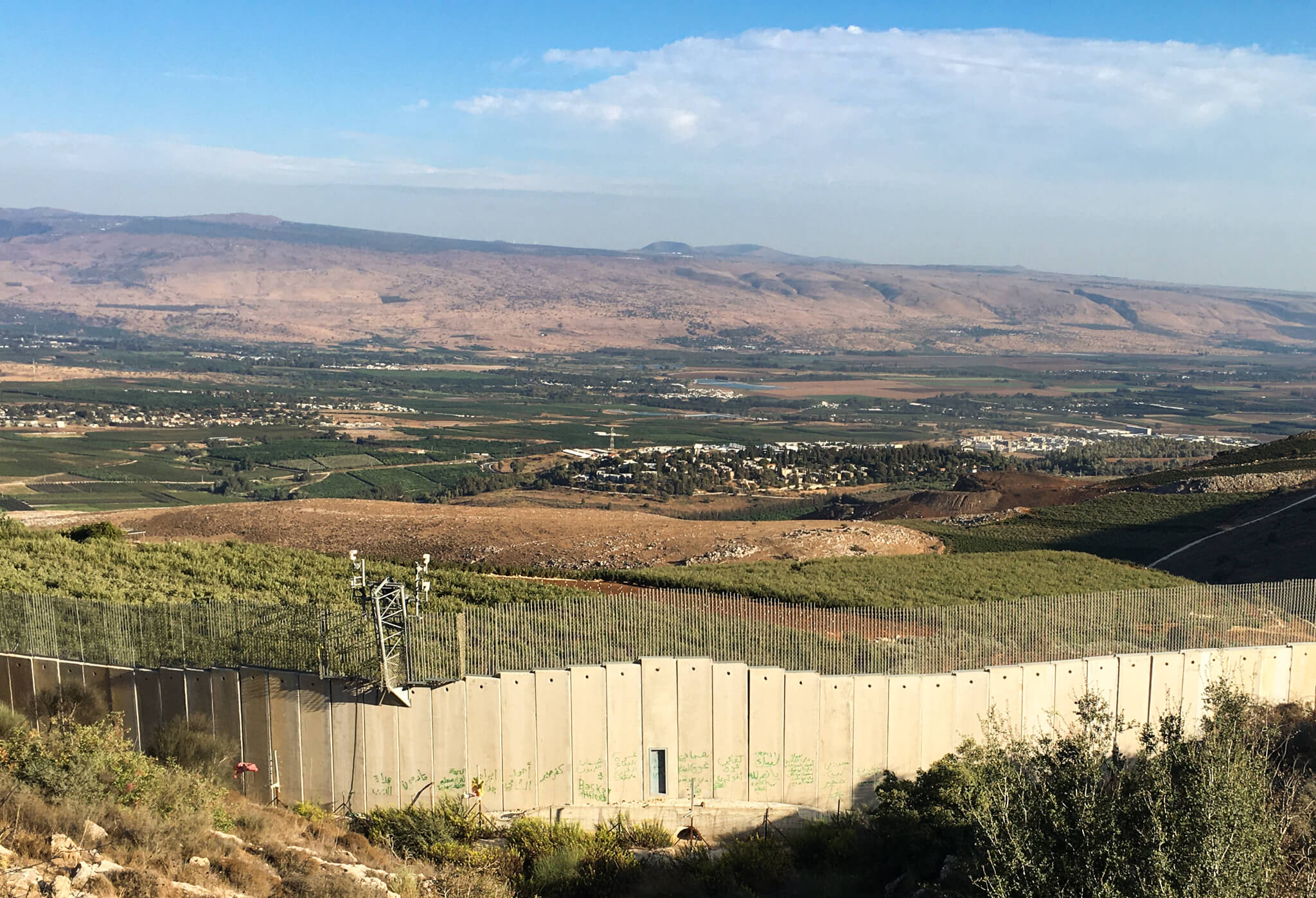
Northern Israel, as viewed over the imposing border wall in south Lebanon.
Recently (as of early 2023), the black market exchange rate has been hovering around the 80,000 LBP to the USD rate, whereas the official rate is 15,000 LBP. Previously, currency exchange shops were prohibited from giving the black market rate, but the government has relaxed this rule, so any currency exchange shop can exchange money for you. Just make sure you bring plenty of cash.
Whatever you do, don’t use a foreign bank card in an ATM or to pay in shops. The banks still apply the official rate, so you’ll be paying several times the real price.
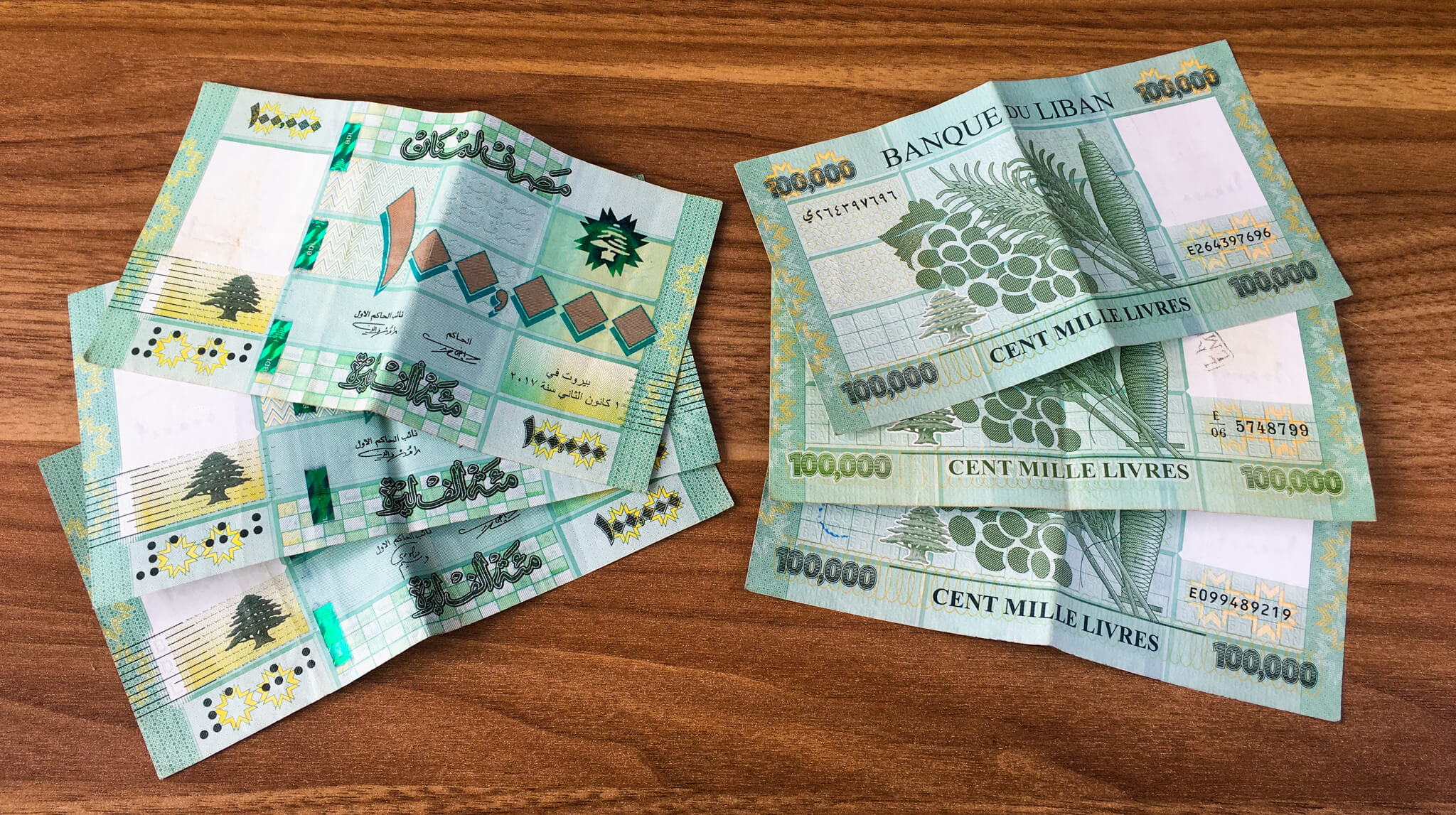
Pre-crisis, these notes were worth about $66 each. Now they’re worth around $3.
Mobile Phone Service and SIM Cards
Lebanon has good mobile Internet even in most rural areas. SIM cards are widely available from mobile phone shops. I use Alpha, which has good 4G coverage across most of the country. Passports are not required to obtain a SIM. Prices fluctuate, but a SIM card with 6GB of data valid for one month can be obtained for around $20. I have been warned to check that the seller gives you the packaging to ensure that it’s not a reused, although I’m not sure what the problem would be with this..
Restaurants and Coffee Shops
One of the greatest pleasures of visiting Lebanon is the food. This list is by no means exhaustive, but here are my favourite restaurants. I happen to like coffee a lot, so I’ve also slung in a few coffee shop recommendations for good measure.
- Resto Ghazar: My favourite Lebanese-Armenian restaurant. Try the soubeureg (cheese pastries), mouhamara (pomegranate with nuts) and manti. Although not Armenian, their batata harra (spicy potatoes with coriander) is also out of this world. Prices are very reasonable, at about $10-15 a person, including drinks.
- Ohannes Restaurant: Another great Armenian restaurant, with beautiful tiled decor. The food is also great, especially the Ohannes salad and fried liver. This place is a bit more upmarket at about $15-25 per person, including drinks.
- T-Marbouta: A variety of great Lebanese food in the heart of Hamra with a nice outdoor seating area. About $8-15 a person, including drinks.
- Sawani Falfoul: A great place for breakfast in Badaro, an upmarket bar street. In particular, try the foul (a kind of chickpea soup, pronounced like the word “fool” in English), shakshuka (scrambled egg with tomato) and hummus (the “Malaysian” hummus is particularly good, if not very Lebanese sounding).
- Barbar Restaurant: Basic but tasty Lebanese barbeque restaurant in Hamra. Not sure of the current price, but cheap!
- Le Chef: A traditional Lebanese restaurant that claims to be the oldest in Lebanon, although my Lebanese friends tell me that this is bullshit. The place has a lot of character and was saved from bankruptcy by a donation from Russel Crow, who once ate there, after being destroyed in the port explosion in August 2020.
- Notes Speciality Coffee: My local coffee place. Great brews and the chance to meet me if you’re there in the morning (I often work from there).
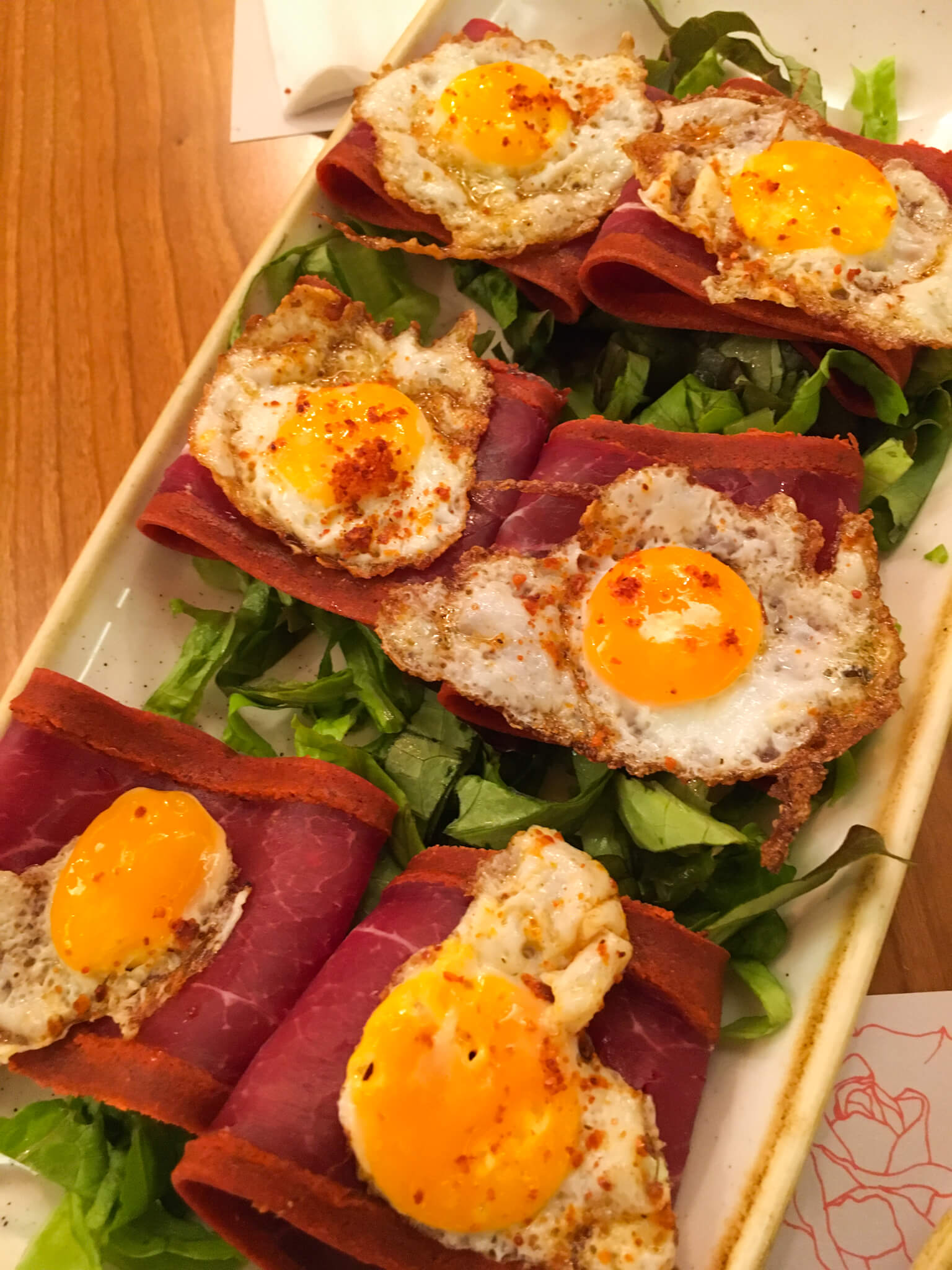
Quail eggs with basterma (seasoned meat) – an Armenian-Lebanese delicacy.
- Fenicia: This restaurant is so good that I have hardly eaten anywhere else in Byblos. Up there with Resto Ghazar as one of my two favourite restaurants in Lebanon. The environment is elegant and the food is absolutely out-of-this-world. The cheese/shrimp rolls and the mixed grill plata are my recommendations. Prices are about $15-25 per person, including drinks. The only problem is that they don’t take reservations and getting a seat can be difficult.
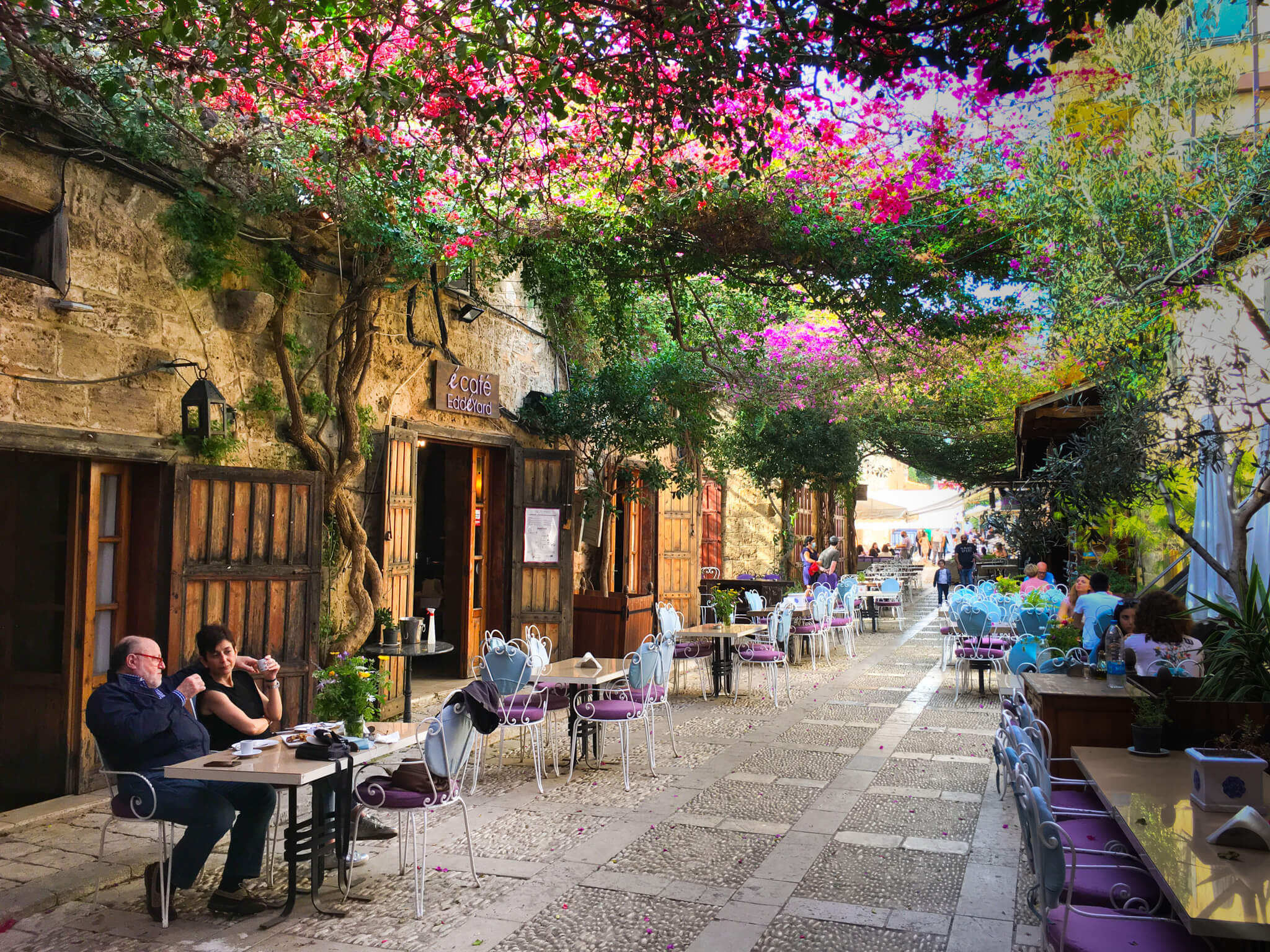
Byblos has many local restaurants, like this Italian one, where you can sit outside and enjoy the old town vibe.
- The Colonel Brewery: Lebanon’s most famous craft beer brewery, the Colonel recently opened a restaurant with a view of the Mediterranean and a great selection of fresh seafood. Try the delicious raw fish if you’re feeling adventurous. A meal for two including drinks is around $30.
- Barrio 67: Not Lebanese cuisine, but delicious international food and nice decoration in the heart of the old town. Prices are about $15-25 per person, including drinks.
- The Sailor Woman: this cute little restaurant serves only six dishes – fish with tahini, calamari, octopus, french fries, fattouch (traditional Lebanese green salad) and Tabbouleh (traditional Lebanese salad with Parsley). What makes it so special is that all the cooking is done by a little old lady in her apartment, which is just next to the restaurant. The fish is also very fresh, as Tripoli is the centre of the Lebanese fishing industry.
- Newtown Coffee: Great place to take a break from sightseeing and chill. Nice environment and good coffee.
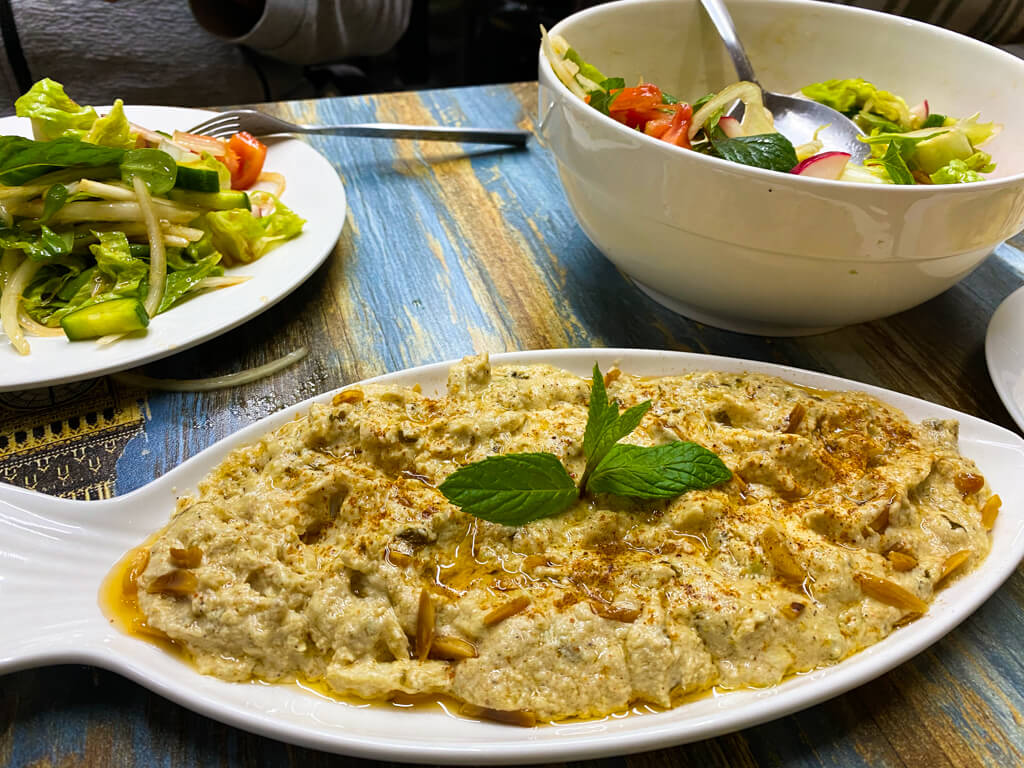
My favourite fish in Tahini at The Sailor Woman restaurant.
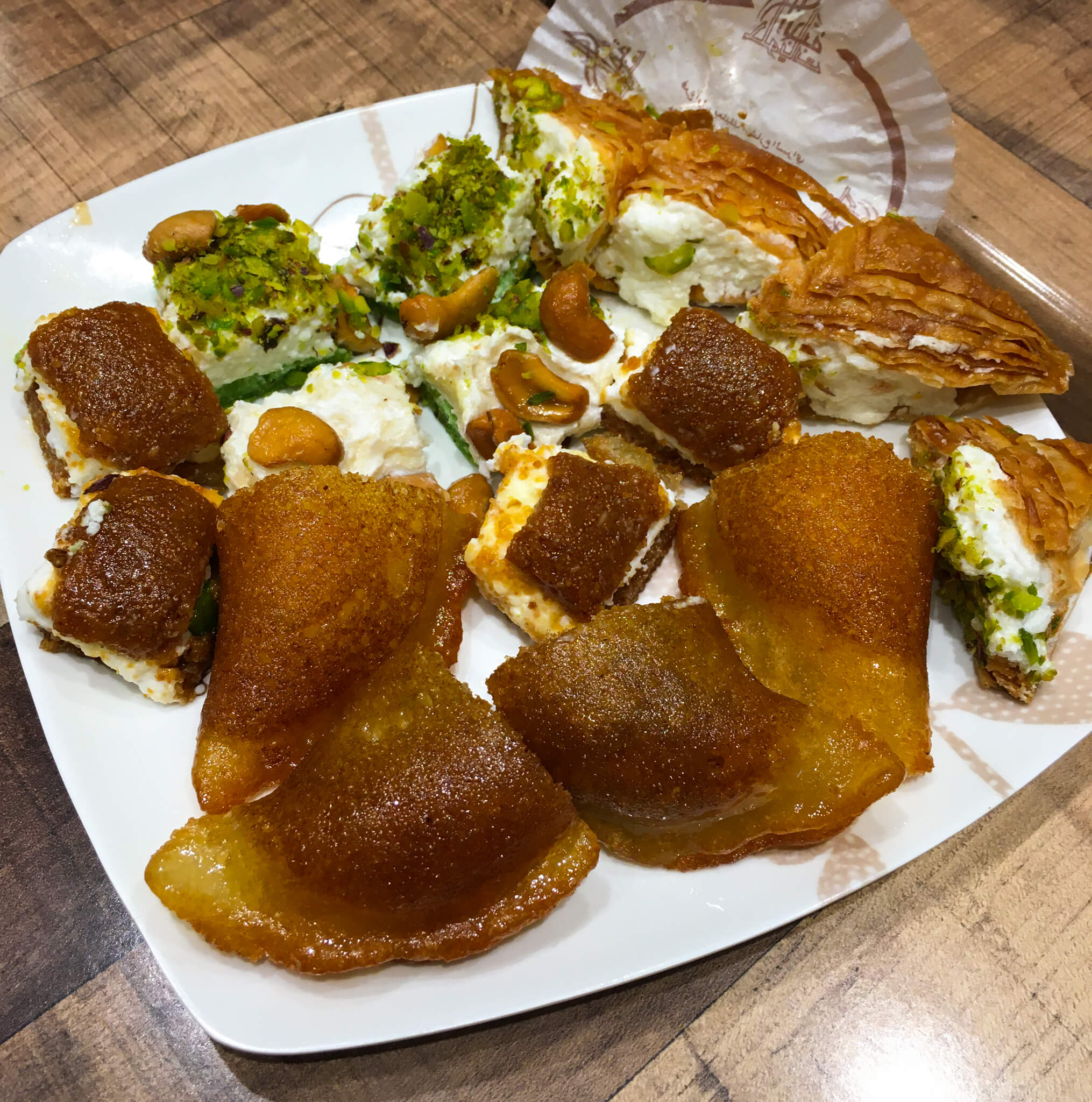
Be sure to try some Lebanese sweets, which can be found across the country.
- Foul Abou El Ezz: Another breakfast place, simple, very local and delicious. Try the foul (a kind of chickpea soup, pronounced like the word “fool” in English) and hummus.
- Green’s Coffee: One of my favourite coffee shops in Lebanon with a great selection of coffees and even a deli counter. The environment is top-notch with a nice retro feel.
- Resthouse: Overpriced (although still cheap by international standards), but with a great view of the Seafort and the only place allowed to sell alcohol in Saida. Perfect for a beer with a view on a hot summer’s day.
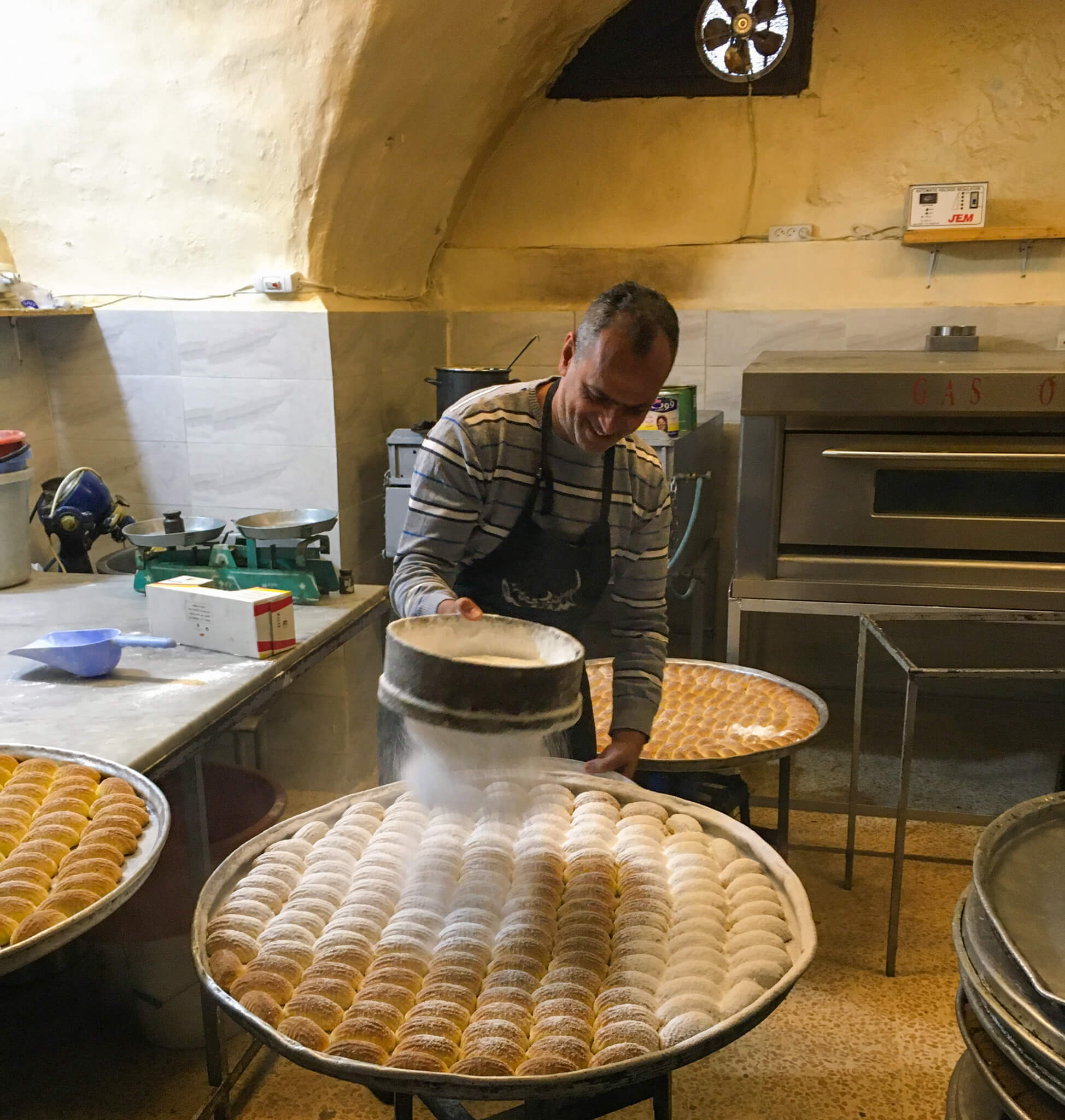
A man making local sweets at a little bakery in the winding streets of Saida’s old bazaar.
- Local sfeeha place: On the main street of Baalbek, on the left as you’re walking away from the Roman ruins, you’ll come across what is basically a traditional oven in a room on the edge of the street with a few tables outside (approx. coordinates: 34.005245, 36.208302, here on Google Maps ). They make one dish – delicious sfeeha, the traditional meat pastry originally from Baalbek – and they make it really well. It’s a while since I’ve been there, so not sure of the exact price, but twenty sfeeha cost a few dollars.
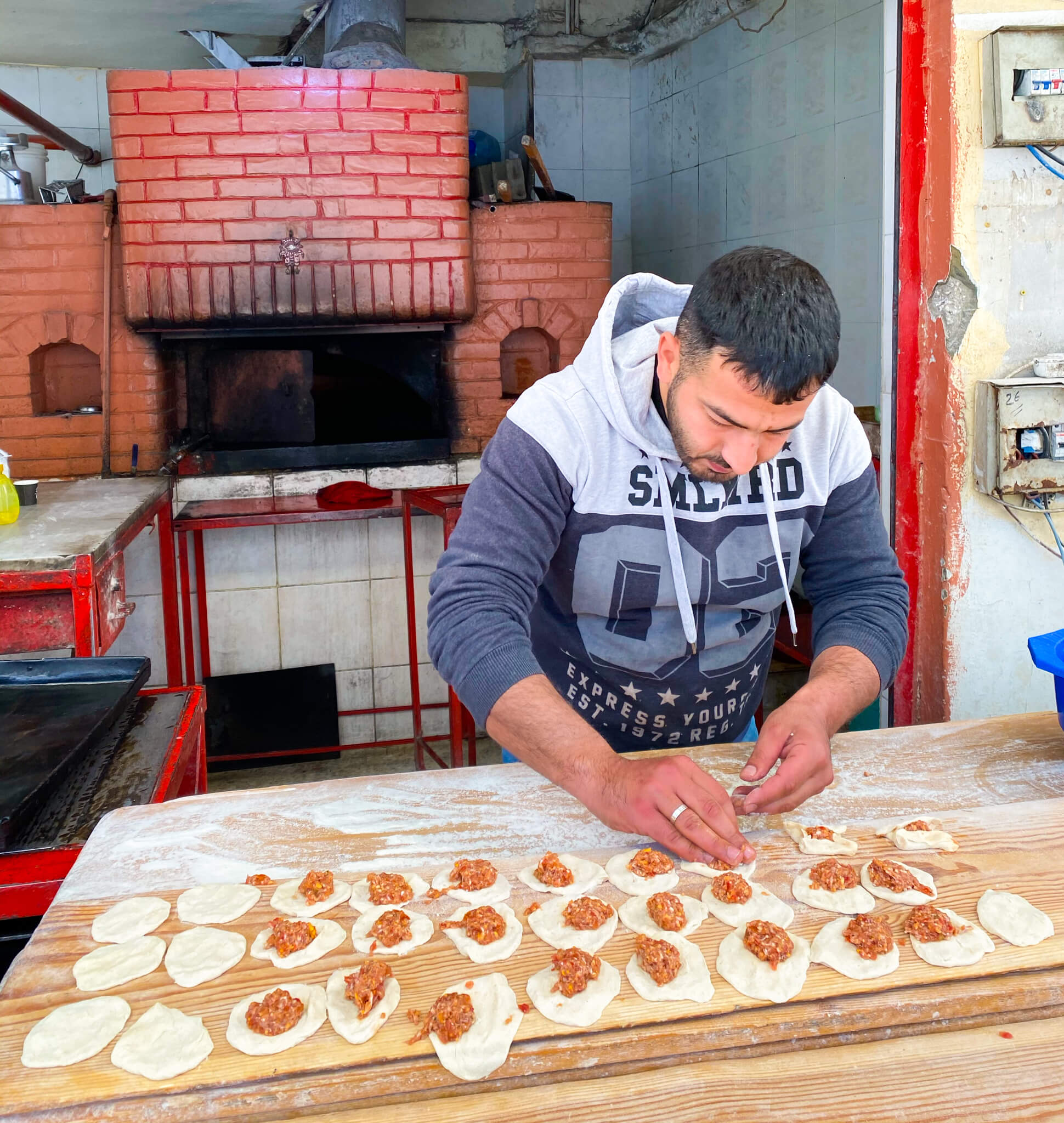
Local sfiha meat pastries being prepared for the brick oven.
- Fresh seafood: Tyre has a wonderful selection of reasonably-priced fresh seafood restaurants overlooking the harbour. The location is at 33.274307, 35.194684 ( here on Google Maps ) and there are several small restaurants with harbour views nearby. Prices start from about $10 a person, including drinks.
Accommodation
Hotels recently switched to charging foreign tourists in USD and so the prices are roughly the same as before the crisis. You may be able to negotiate a deal with some of the smaller places when you’re here, but that’s tricky to do in advance. AirBNB can be a very good option and relatively cheap. With any accommodation, check the hours that they have electricty before booking.
Couchsurfing
Lebanon has an active Couchsurfing community. Many people here host travellers and there are often events organised. If you’re looking to meet local people, this is a great way to do it.
Covid-19, PCR Tests and Entry Requirements
As of 28 September 2022, the Lebanese government cancelled all Covid-related requirements for entering Lebanon. Once in the country there are also no longer restrictions and masks are not required.
PCR tests are not required for departure from Beirut airport. However, if you need one for your next destination, they can be obtained at many hospitals in Lebanon. I have used Hotel Dieu de France hospital in the past. There’s also a lab that will send someone to your accommodation to do the test for you. It’s very convenient and the results are available same day, sent via WhatsApp. They can be contacted on WhatsApp at +961 3 444 925. Wherever you do the test, it will have a QR code. Prices vary depending on the exchange rate, but are generally around $10-12.
More about Lebanon
After two years living in Lebanon, I’ve visited almost every inch of the country. You can read about my adventures here:
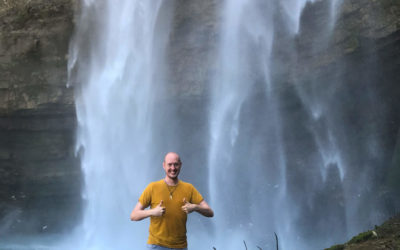
Jezzine Travel Guide
Why Visit Jezzine? The picturesque village of Jezzine is perched high on a cliff top overlooking the incredible Jezzine waterfall - at 90m (295ft), one of the highest waterfalls in Lebanon. It’s also practically surrounded by Bkassine forest, the largest pine forest...
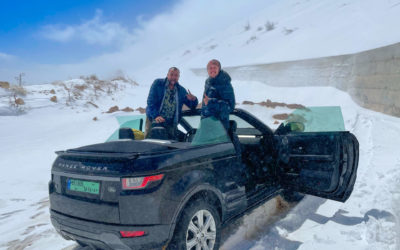
Hermel & Beyond: Road Tripping Remote Lebanon
Hermel & Beyond: Road Tripping Remote Lebanon As a Scot, I’m used to living in countries far bigger than my own. Lebanon is the exception - the entire country is only about 200km long and 80km wide at its widest point. So how, you might ask, can there be ‘remote...
Looking for even more great ideas? Here’s another in-depth travel guide to Lebanon by Romana and Jakub at Broken Naviation, including hotel recommendations for all budgets (living here I don’t stay in hotels much). They have some really beautiful photographs too. Check it out here:
- How to Travel to Lebanon in 2022 & 11 Days Itinerary
Don’t forget to leave a comment below if you enjoyed the article or have questions!
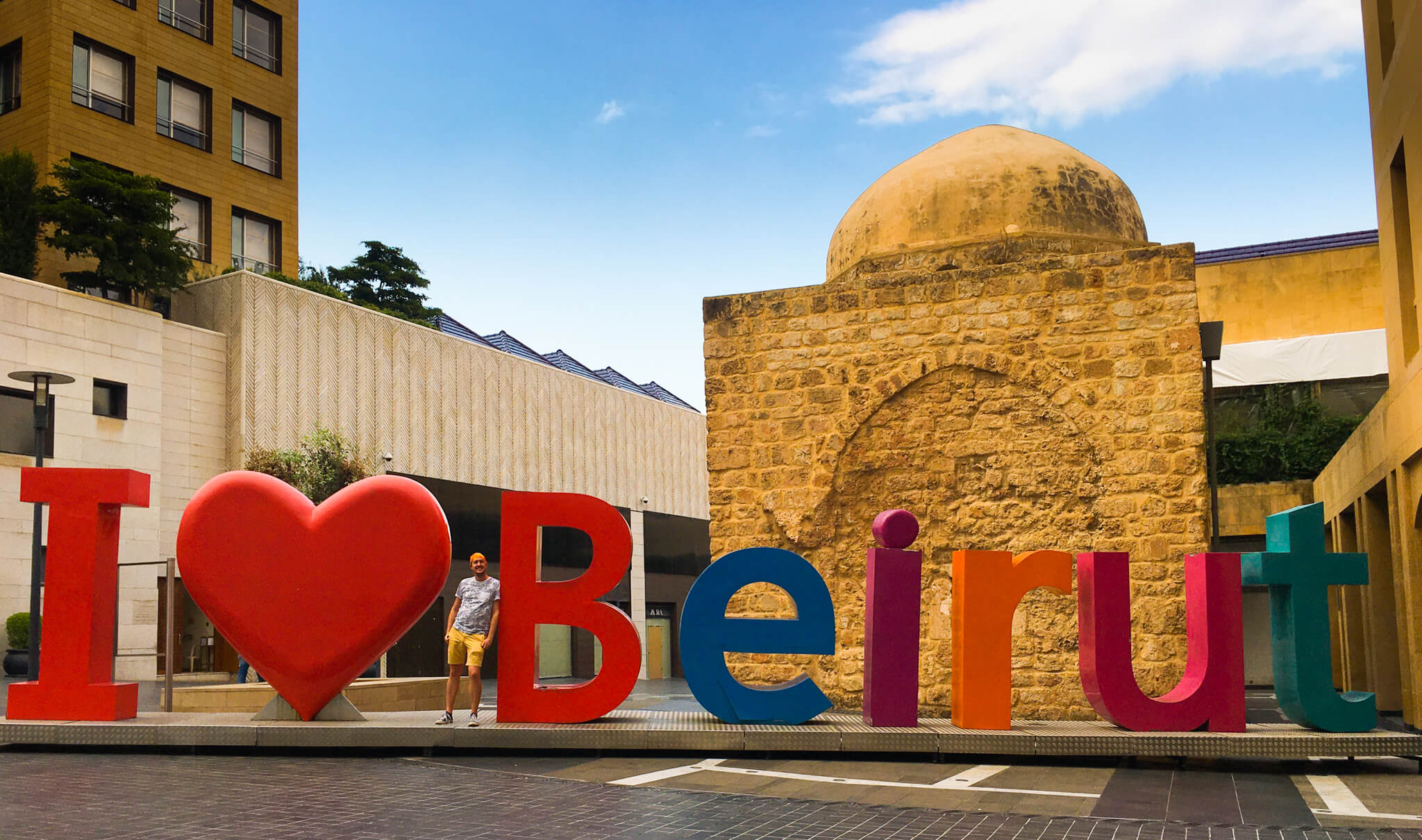
Beirut is one crazy beautiful city in one crazy beautiful country. I can’t not love it.
Recent Posts
- How to Visit Kassala and Hike the Taka Mountains
- What to do in Port Sudan and the Coral City of Suakin
- How to Visit the Meroe Pyramids, Naqa and Musawwarat es-Sufra
- How to Visit Karima and the Barkal Pyramids
- How to Visit Nubian Sudan: Abri and Kerma
Recent Comments
- rowan on Siwa Oasis Travel Guide
- Debjani Kundu on Siwa Oasis Travel Guide
- rowan on Iraq Independent Travel Guide
- August 2022
- August 2021
- September 2020
- August 2020
- December 2019
- November 2019
- October 2019
- September 2019
- August 2019
- Alor Island
- Andhra Pradesh
- Northern PNG
- Papua New Guinea
- Sulaymaniyah
- Entries feed
- Comments feed
- WordPress.org
30 Comments
Wow, this is a great post. Thank you so much. We’re travelling to Lebanon for a week in May (9th – 15th) and were a bit unsure of what to see/do because of the crisis. This has helped a lot. I’m coming with a friend. Hit me up if you’d like to hang out.
Hey mate, great to hear the guide was helpful. I’m actually outside the country travelling Sudan at the moment (another amazing place), so won’t be around on those dates. Enjoy Lebanon!
I absolutely love this guide. I am a 50plus woman who travels around the world and I am in Egypt now. I want to go and spend a month there in June/July and would love to contact people who want to meet and Argentina my age or around my age. I am not rich, my country goes through the same struggles than Lebanon with the second highest inflation in the world. I do have a website on the works and I can recommend your site, I believe the only waay we can make a change is to share
Hi Monica, that’s great. I’m sure you’ll enjoy Lebanon a lot. For meeting people, you might want to try Couch Surfing. The community in Lebanon is quite active.
Thank you so much for the useful information. I’m travelling to Lebanon for a week in 30th May – 6th June and was uncertain of what to expect. You information has helped me feel more confident. I’m coming by myself as my partner can’t make it because of work commitments. Feel free to contact me if you’d like have a chat over drinks. PS I’m keen to go to Sudan and see the Pyramids there. Hope you enjoyed it.
Hi Morris. Great to hear that the information was helpful. I would definitely be up for meeting for a drink, as long as I’m in Lebanon at that time. Could you drop me a message on the quitandgotravel Instagram page? I don’t want to put my WhatsApp number on this page as it’ll inevitably get flooded with spam.
Sudan was amazing! Working on a guide for that now, but will take some time.
This is amazing, thank you so much for publishing this! I’ve had a hard time getting a real read on the situation. We are planning a trip in July, probably just Beirut for 4 or 5 days. Do you have any hotel recommendations?
Hi Katie, glad to hear it was useful. July is a great time to visit, the weather will be beautiful. Beirut is a great place to base yourself, but I would suggest to do at least a day trip to Byblos and the Jeita Grottoes. Regarding hotels, as I live here, I don’t stay in them and so don’t have specific recommendations. However, wherever you stay, the main thing to check is whether they have a generator and how many hours of power they have per day. Generally, the higher-end hotels have 24/7 power, whereas the lower-end ones could be just a few hours a day.
Hi Rowan, this was SO helpful, thank you! Hoping to visit May 27-June 4 but was nervous about the US government “level 3” travel advisory. I saw your disclaimer about the elections last week – how is the sentiment now?
Hi Lily, glad this was helpful. The elections have gone relatively peacefully, so hoping things will be back to normal by then. Time will tell, so feel free to reach out to me nearer the time to confirm.
Think your guide is really helpful mate. I’m looking to visit with my girlfriend for at least a week in Oct before flying on to India, but we will not hire a car to keep the costs down, so hopefully we can visit places like Byblos and Kadisha Valley by bus/shared taxi etc as we’d love to do some hiking. Thanks again.
Awesome mate, glad the guide was helpful. Lebanon is very doable with public transport (and maybe a bit of hitchhiking to Kadisha). Enjoy India!
Is the situation pretty unstable atm mate? Been looking at uk gov website and it seems to say avoid all but essential travel to Lebanon. Not going until Oct, so I hope thing may improve then, but would you say wait to see if it calms down a bit before booking flights, or just take the gov advice with a pinch of salt? As your blog seems to indicate its not too bad 🙂 sorry for the bombardment of questions!
Hey mate, already replied to your email, but for anyone else reading, government travel warnings tend to exaggerate. It’s actually very peaceful here at the moment. Lebanese people are very friendly and crime rates are low. In Lebanon, the situation can change quickly, but I wouldn’t let that put you off visiting.
Hi Rowan, thanks for sharing those helpful Informations. Do you know if there is a possibility to get from Bcharré to Baalbek by public transportation in September
Hi Miriam. Glad the blog has been useful. Unfortunately, there is no public transport from Bcharré to Baalbek. By public transport, you’d need to go back to Beirut and then over the main highway to Baalbek, which is a huge detour. However, I’m sure you could hitchhike it without much difficultly. Lebanese people are very friendly and a female friend of mine who was volunteering in Anjar the past few weeks hitchhiked all over the country without problems.
Wowwwww I was just looking around, totally unsure about Lebanon and feeling no way I could Really do it but your post has totally changed my mind.
I hope to meet you for a coffee hello.
~A Solo woman traveller
Ps, Pls let me know your thoughts on overland travel from jordan through syria.
Hey, glad the blog helped inspire you! Overland travel from Jordan is possible with an organised tour, as that’s generally the only way to get the visa. It’s expensive but doable and I’ve spoken with people who’ve done it. A coffee sounds good, drop me a message on Insta @quitandgotravel when you know the dates.
This post re Lebanon is fantastic. I’m traveling alone; do you have any tour guide recommendations? Also, if you’re up for a cup of coffee and a chat, I’ll be there the first week of July.
Hi Stacy, great to hear the post is useful. I never use tour guides (except in North Korea, where it’s mandatory), so can’t recommend one. However, Lebanon is very doable solo. I’d definitely be up for a coffee and should be here that week. Can you drop me a message on Insta? @quitandgotravel
This blog was really helpful – I’m a solo female traveler and have been looking to go to Beirut to visit my friend’s dog and bring him doggie treats (and I guess say hi to my friend too and bring human treats) but with everything that has happened in the past two years it has been a bit difficult to get it organised. Due to my nationality it also appears the visa process will take longer than normal in my current country of residence. I would rather not have to get my (human) friend send some sort of invitation letter in order for me to get a visa, but I guess I’ll just have to see and try and Lebanese Embassy. I look forward to reading more of your blog.
Your poor friend, I can see that he or she is definitely second to the dog! Good luck with the visa though, I hope you get it sorted out okay, and thanks for your kind comments.
Thanks so much for this guide. I’m Lebanese background and even I found it very very useful. My Aussie partner and I are going to Lebanon in September and I’m wondering which neighbourhood to book our Airbnb. We want to be able to walk all of Beirut, prefer to flush toilet paper down the toilet haha and want to be walking distance to cafes, bars and be able to walk home safely afterwards (or is it safer to get a service/taxi?). Also did you have any issues with being overcharged for things? Memories of taxi drivers taking me around the block a couple of times in Syria and charging me double haha
Hi Lili. Great to hear that my blog is even useful to Lebanese! For AirBNBs, Gemayze is probably the best Neighborhood. It’s walking distance to most things and has power more often than Hamra, so is less dark. Beirut is still very safe and walkable, even now. I think it’s a cultural thing, but despite the ever increasing poverty levels, crime rates are still low here. Most people are pretty honest, so rip offs are not common. The worst are taxis, especially from the airport, so use Uber or Bolt and set the app to pay cash (don’t pay more than 200,000 LBP from the airport).
Rowan, as others have said this is a great blog. Many thanks for all this info. I am a keen cyclist but cannot find any of the major adventure tour companies who offer cycling holidays in Lebanon. Do you know of any cycling organisations in Lebanon who might be able to help me put together an itinerary.
Hi David. I’m happy you liked the blog. I focus on independent travel, so not sure about tour companies to be honest. I don’t think cycling is a big thing here though (drivers are not so considerate), but that said, it could be a good way to see the country.
I had planned a trip to Lebanon in May 2020 (tickets paid for and everything) but Covid happened. Since then, Lebanon had gone through some significant changes like the economic crisis, etc, and I was really unsure if this year was the right time to be visiting Lebanon; was thinking of doing so in December.
Your blog had really helped, it is positive yet realistic. I am leaning heavily on traveling to Lebanon this year.
I heard it is easy to do a day trip to Damascus from Beirut? Have you done this trip? If so, was it a good experience?
Hi Ivy. Great to hear that you’re planning to visit Lebanon. Keep your eye on the news, but if it stays like it is now, you’ll have a great time. Day trips to Damascus are easily arranged. I don’t like organised tours, so I haven’t done one. I’m still working on the visa now, but hope to visit Syria independently for a couple of weeks in the near future.
Thank you so much for all this great information. My husband & am planning to move to Jadra, Lebanon with in the next year and I am doing research now and came across your blog. Any information you can send me in a email would be much appreciated. I have never traveled outside the U.S. . We plan on visiting for 2 weeks before we actually move there.
Hey that’s awesome that you’re moving here to Lebanon. It’s a wonderful country. Jadra is an interesting choice of location though! Most of the relevant information is in the blog, but feel free to let me know if you have specific questions.
Submit a Comment Cancel reply
Your email address will not be published. Required fields are marked *
- 3 Other destinations
- 4.1 Geography
- 4.2 History
- 4.4 Climate
- 4.5 Time zone
- 4.6 Holidays
- 4.7 Tourism information
- 5.1.1 Visa policy
- 5.2 By plane
- 5.4 By taxi
- 5.5 By ship
- 6.1 By taxi
- 6.3 By train
- 6.5 By hitchhiking
- 9.1 Nightlife
- 9.4 Wine tasting
- 14.1 Secondary schools
- 14.2 Universities
- 15.1 Volunteer
- 17 Stay safe
- 18 Stay healthy
- 19.1 Social etiquette
- 19.2.1 Politics
Lebanon ( Arabic : لبنان , French : Liban ) is a country in the Middle East , on the Mediterranean Sea. Rich in diversity and history, Lebanon has hosted the Roman Empire, the Crusades, the Ottoman Empire, and was, for a period of time, controlled by France . The majority of Lebanese are Arabs, as are most of the Palestinians and Syrians living there, but there are also small communities of Assyrians, Armenians and Kurds. Lebanese cuisine is among the most famous of all Middle Eastern cuisines .
Lebanon has been in a state of flux since the end of the Lebanese Civil War in 1990s, and it continues to face numerous economic difficulties. That aside, the country has plenty to offer to the traveller: vineyards, nightclubs, ski resorts, and numerous historical and cultural attractions.
Regions [ edit ]
Lebanon can be divided into five regions:

Cities [ edit ]
Many cities in Lebanon have names in English which are significantly different from their official Arabic or French names; the Romanised versions of the Arabic names for some cities are given in parentheses below. Note that signs in Lebanon are in Arabic or French only, and so spellings in Latin script can differ from how a place can be spelled in English.
- 33.886944 35.513056 1 Beirut ( بيروت / Beyrouth ) — the cosmopolitan capital city, and largest city in the country, with a mash-up of all the country’s religious sects, as well as historic Franco-Mediterranean architecture, serving as a major luxury shopping centre, a free press, and possessing the liveliest nightlife scene in the Arab world.
- 34.436667 35.834444 2 Tripoli ( طرابلس / Tripoli or Trípol ) — the second-largest city in the country and the ‘capital of the North’, this port city was heavily built by the Islamic Mamluk dynasty, holding the second highest amount of Mamluk architecture after Cairo, giving the city a ‘medieval Islamic feel’. It is also home to the major Crusader site of “Citadel of Raymond de Saint-Gilles”. The city was deeply scarred and almost completely destroyed by the Lebanese Civil War, and as such the city has never really recovered; it is nowadays extremely impoverished, with architecture that is severely crumbling and destroyed from the war. However, it is also unspoilt by mass-tourism.
- 33.560556 35.375833 3 Sidon ( صيدا / Sidon or Sayette ) (Romanised as Saida in English) — The third-largest city in the country. The city is known for its beautiful view of the Mediterranean, as well as being home to a lot of historic Crusader and Ottoman architecture, including the “Khan al-Franj” (“Caravanserai of the French”) caravanserai (Ottoman guest house). It is also home to plenty of other medieval remains, as well as a fascinating museum about the local soap industry here and the art of Levantine soapmaking.
- 33.266667 35.2 4 Tyre ( صور / Tyr )(Romanised as Sour in English) - a medium-sized, ancient city, famed for its strong Phoenician heritage, with many Phoenician sites and a rich history of being a Phoenician cultural centre. The city is also famed for its beautiful coastline, with wide expanses of sandy beaches that saw a mass-scale construction boom of luxury resorts during the “Golden Age” years of the 1960s and early-1970s. It is home to many ancient Roman and Phoenician sites, including its Roman Hippodrome which is a UNESCO World Heritage Site
- 34.116667 35.65 5 Byblos ( جبيل/Byblos or Gibelet ) (Romanised as Joubeil in English) — one of the oldest continually-inhabited cities in the world, believed to have been first occupied between 8800 and 7000 BC , this historic city is home to dozens of historic Phoenician, Roman, Crusader and Ottoman remains, Crusader castles and culturally rich museums. It is also home to a beautiful harbour and a souk.
- 33.969722 35.615556 6 Jounieh — known for its seaside resorts and nightclubs
- 33.54 35.583611 7 Jezzine — main summer resort and tourist destination of South Lebanon
- 33.843889 35.907222 8 Zahle — capital of Bekaa Valley
Other destinations [ edit ]
- 33.953889 35.643333 1 Jeita — known for its grotto with spectacular caves
- Kadisha Valley — visit the home of the (now deceased) Lebanese poet Khalil Gibran
- 33.7 35.566667 2 Deir el Qamar — traditional village in Chouf district.
- 34.006111 36.208611 3 Baalbek — a Phoenician and Roman archaeological site
Understand [ edit ]
Geography [ edit ].
The Republic of Lebanon is marked by two mountain ridges that run parallel to the Mediterranean coastline. The Mount Lebanon ridge is close to the sea, and is cut across from north to south by transverse valleys and canyons. The landscape is mostly mountainous and sometimes very rugged, with steep cliffs and gradients. Streams are frequent and provide ample resources for cultivation and natural vegetation.
The Anti-Lebanon runs parallel east of the Mount Lebanon ridge, and forms part of the border with Syria.
The Bekaa valley, with ample flatlands traversed by the Orontes (Nahr al-Aasi) and Litani rivers, runs between the two ridges.
History [ edit ]
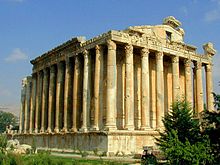
Lebanon has a long and complex history since the Neolithic age. The most important Phoenicians cities ( Byblos and Tyre among others) were founded here and have been thriving since then. The area was under the sphere of influence of Egyptian, Mesopotomian, and Persian ancient civilizations. Lebanon has a rich heritage of Hellenistic and Roman monuments, including among others the temples of Baalbek and Tyre. After the Byzantine and Umayyad rule (which left behind the ruins of Anjar), the area of today's Lebanon was conquered by the Crusaders and the Mamluks, with many significant monuments (fortresses and places of worship) scattered over the country, and notably in Tripoli .
Four centuries of Ottoman rule (1516–1918) with significant degrees of autonomous rule were ended with the creation of the French Mandate after World War I. Lebanon became independent in 1943. For a period of time, Lebanon was referred to as the "Switzerland of the Middle East". Under a free-market economy, Lebanon enjoyed three decades of prosperity and many moved to Lebanon in search of a better life.
Three decades of growth were crippled by a long civil war (1975–1990), which ended with a power-sharing agreement and a complicated process of reconciliation and reconstruction. The civil war forced many Lebanese people to move abroad.
Political tensions and regional conflicts with Hezbollah (such as the July 2006 war and the ongoing civil war in Syria) have affected the country, which remains nevertheless resilient.
People [ edit ]
The people of Lebanon comprise a wide variety of ethnic groups, religions and denominations, with the two main groups split between Christian (Maronite, Greek Orthodox, Greek-Catholic Melkites, Armenians, Protestant, Syriac Christians) and Muslim (Shi'a, Sunni, Alawites), and Druzes. The Maronites are a branch of Eastern Catholicism; they celebrate their liturgy according to the Eastern (specifically West Syriac) Rite like Oriental Orthodox Christians, but recognise the Pope as their leader like Roman Catholics. There are more than 250,000 Palestinian refugees in the country, who fled their homeland in 1948. There are also around two million Syrian refugees and displaced persons due to the ongoing conflict in Syria.
One of the rare things that most Lebanese religious and political leaders will agree on is to avoid a new general census, for fear that it could trigger a new round of denominational conflict. The last official census was performed in 1932, when Christians were once a majority in Lebanon. Estimates today are academic and unofficial, due to this sensitivity. A power-sharing agreement among the Sunni Muslims, Shia Muslims and Maronite Christians ensures that important posts in the government are divided among the three communities; under that agreement, the position of prime minister is reserved for Sunni Muslims, the position of speaker of parliament is reserved for Shia Muslims, and the presidency is reserved for Maronite Christians.
The population increases in the summer months (June to September), due to the large influx of returning members of the Lebanese diaspora and Lebanese citizens working abroad.
People are generally very easy-going and welcoming. Many people are multilingual and highly educated, particularly in Beirut and its suburban areas. Attitudes and behaviours tend to be more conservative in the Bekaa Valley and rural areas of the north and south.
Climate [ edit ]
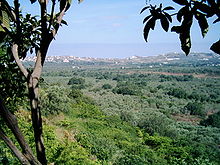
Lebanon has a temperate Mediterranean climate, with hot, humid summers and cold, wet winters.
Summer is usually the most popular time for people to visit, as there is virtually no rain between June and August, and the temperatures ranges between about 20-30°C (68-86°F). However, there can be occasional heatwaves with the temperature rising, and generally, it can be very, very humid along the coast line during the summer months. It is somewhat dryer and somewhat cooler in the mountains, and many Lebanese tend to visit and vacation in the mountains during the summer if they wish to escape the heat and humidity of the coastline.
Autumn and spring are also good times to visit, with a bit more rain, but without the tourist crowds attracted in summer, and also with considerable less humidity.
Snow falls for a large part of winter in the mountain regions that form a large portion of the country, and there are numerous ski resorts. However, the coast is still relatively mild, with maximums rarely falling below 13°C (55°F), although it can fall much lower than that and has on many occasions.
Time zone [ edit ]
Lebanon is two hours ahead of Greenwich Mean Time (GMT), and observes daylight saving from the end of March to the end of October.
Holidays [ edit ]
Lebanon has a number of Christian and Islamic holidays. Holidays that are observed by the Lebanese Government are indicated in bold letters .
- New Year's Day (January 1)
- Epiphany & Armenian Christmas (January 6)
- St. Maroun's Day (February 9)
- Prophet Muhammad's Birthday (variable according to the Islamic calendar)
- Feast of the Annunciation (March 25)
- Good Friday (Catholic) (variable according to the lunar calendar)
- Easter Sunday (Catholic) (variable according to the lunar calendar)
- Good Friday (Orthodox) (variable according to the lunar calendar)
- Easter Sunday (Orthodox) (variable according to the lunar calendar)
- Labor Day (May 1)
- Liberation Day (May 25) (anniversary of the liberation of the South from Israeli occupation in 2000)
- St. Elias' Day (July 20)
- Assumption of Mary Day (August 15)
- Ramadan (variable) (variable according to the Islamic calendar)
- Eid al-Fitr (variable according to the Islamic calendar)
- Eid al-Adha (variable according to the Islamic calendar)
- Ashura (variable according to the Islamic calendar)
- Independence Day (November 22)
- Eid il-Burbara or Saint Barbara's Day (December 4)
- Christmas Day (December 25)
- New Year's Eve (December 31)
Tourism information [ edit ]
- Ministry of Tourism website
Get in [ edit ]
Visas [ edit ].

Visa policy [ edit ]
Citizens of Turkey get a free 3-month visa that can only be renewed before one month passes since their entry.

Citizens of Egypt, Sudan, Tunisia, Morocco, Algeria, Libya, Yemen, Somalia, Djibouti, Mauritania, the Comoros , Nigeria, Ghana, and Cote d'Ivoire get a free one-month tourist visa provided they have a return plane ticket, a hotel reservation/place of residence and US $2,000 (the cash conditions can be waived if you get the visa from the Lebanese embassy beforehand).
Citizens of India, Indonesia, Pakistan, Philippines, South Africa, Taiwan, Thailand, and several other "labor exporting" countries not otherwise listed in this section cannot get a visa directly at the airport or at a Lebanese embassy. Instead, a visa needs to be arranged by a Lebanese sponsor in Lebanon through the General Security head office in Beirut. This is a convoluted process that can take months, so start early. Visas issued this way are valid for 1 month but can be extended until 3 months at General Security once in Lebanon.
Three-month visas are free for nationals from Gulf Cooperation Council (GCC) countries and Jordan . Other nationals can obtain a 15-day visa or a three-month visa). These visas are single-entry; nationals of many countries can also obtain multiple-entry visas. 48-hour free-of-charge transit visas (valid for three calendar days) are available if you enter by land and leave via the airport or vice-versa.
Visas can be obtained at Lebanese embassies and consulates in other countries, or upon arrival at Beirut airport and other points of entry for some nationalities. The cost for a visa at the airport is US$17 (2021), it is for one entry and valid for 3 months.
A free, single-entry, one-month valid visa, renewable till 3 months, is granted to the citizens of these countries who are coming for tourism: Andorra , Antigua and Barbuda , Argentina , Armenia , Australia , Austria , Azerbaijan , The Bahamas , Barbados , Belarus , Belgium , Belize , Bhutan , Brazil , Bulgaria , Canada , Chile , China (People's Republic) , Czech Republic , Costa Rica , Croatia , Cyprus , Denmark , Dominican Republic , Estonia , Finland , France , Georgia , Germany , Greece , Hong Kong (SAR) , Hungary , Iceland , Iran , Ireland , Italy , Japan , Kazakhstan , Kyrgyzstan , Latvia , Lithuania , Liechtenstein , Luxembourg , Macau (SAR) , Malaysia , Malta , Mexico , Moldova , Monaco , Montenegro , North Macedonia , Netherlands , New Zealand , Norway , Palau , Panama , Peru , Poland , Portugal , Romania , Russia , Saint Kitts and Nevis , Samoa , San Marino , Serbia , Singapore , Slovakia , Slovenia , South Korea , Spain , Sweden , Switzerland , Tajikistan , Turkey (exclusively at the airport), Turkmenistan , the United Kingdom , the United States , Ukraine , Uzbekistan and Venezuela .
For more information, visit the General Security page .
By plane [ edit ]
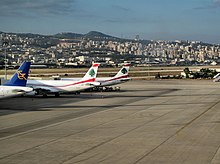
Beirut International Airport (BEY), is 5 km (3 mi) south of the city centre). Middle East Airlines [1] [dead link] has daily flights from Abidjan , Abu Dhabi , Accra , Amman , Athens , Cairo , Cologne , Copenhagen , Dammam , Doha , Dubai , Frankfurt , Geneva , Istanbul IST, Jeddah , Kano , Kuwait , Lagos , Larnaca , London -Heathrow, Milan -Malpensa, Nice , Paris -Charles de Gaulle, Riyadh and Rome -Fiumicino, Warsaw -Okęcie.
In addition the airport is served by the following foreign airlines:
For flights from the United Kingdom try Turkish Airlines [8] , Cyprus Airways [9] or Czech Airlines [10] . These three airlines are often cheaper even than MEA direct from Heathrow. Czech airlines are consistently the cheapest bet from Manchester .
By bus [ edit ]
Buses leave Damascus every hour. The trip is normally 4–5 hours, depending on traffic at the border. When leaving Syria, you must pay an exit fee and must acquire a Lebanese visa on the other side of the border, payable in Lebanese pounds only. Money changers can exchange currency.
By taxi [ edit ]
Taxis leave Damascus for Lebanon.
By ship [ edit ]
Reaching Lebanon by ferry is quite a challenge, the only regular passenger ferry is a twice-weekly service from Tasucu , just outside Mersin , Turkey to the northern city of Tripoli by the Lebanese company MedStar . Apart from that single passenger ferry, only way of reaching Lebanon by sea is by cruise ship or — for the more adventurous traveller — freighter travel .
Get around [ edit ]

Due to the relatively small size of the country, the best way to get around the country quickly is by car.
A trip from Tyre to Beirut will easily take you 1½ hours, depending on traffic and security conditions. This is not to say that it's entirely safe — Lebanese roads are not in perfect condition and drivers aren't known for being very cautious. Still, travelling by car is your best bet.
The majority of travellers use service taxis to get from place to place. "Service" taxis often operate like buses on set routes between towns and cities, though they can be hired to visit other places with some negotiation. Depending on the type of vehicle, each taxi carries between 4 (inside metropolitan areas) to 6 (longer distances) passengers, who share the fare between them. The fare increases depending on distance to be travelled, traffic on that specific road and of course, like everything in Lebanon, persuasion/negotiation skills. A private taxi ride, without having to share with other passengers is similar to a "service" taxi, in that the same pre-negotiation is required to determine the fare. Never get in a taxi or "service" without agreeing on the fare first.
Taxis and service taxis are basically the same, and the mode of operation depends on the availability of passengers and their demands. The majority of service taxis in Lebanon are 1975 Mercedes cars that roam the streets searching for passengers using their car-horns. Newer car models working as mainly "service" taxis are appearing on the Lebanese streets with nevertheless the same price tag as their elder sisters.
All types of public transportation vehicles in Lebanon (taxis, buses, mini-vans and even trucks) can be recognized by their red-coloured licence plate.
Beirut has Uber which offers competitive prices and no hassle negotiating a price with taxi drivers. Both a passenger and a driver get a fair price. However, ordering Uber requires an internet connection and might be expensive to use international roaming. In this case, international chains like Starbucks or McDonald's provide free wifi around their shops so you could book Uber.
City link bus routes are available and cheap. Most buses for north Lebanon depart from the Charles Helou Station (east of downtown), while most buses to regions south or southeast of Beirut (including Damascus and Baalbek ) depart from the Cola "Station" (which is really an intersection adjacent to the Cola bridge/overpass).
By train [ edit ]
There has been no passenger rail service in Lebanon since before the Civil War.
By car [ edit ]
Car rental is relatively expensive in Lebanon compared to elsewhere in the region. Reasonable, if not exactly cheap rates can, however, be found with perseverance and negotiation and — once you have your rental — fuel is easy to get. Fuel is not cheap, with fuel prices being among the most affected by inflation.
Lebanon's roads are generally in quite poor condition and Lebanese drivers are not known for their caution. Exercise extreme caution when driving in Lebanon. Even in central Beirut, even in areas undamaged by the Israeli assault, there can be massive potholes on busy multi-lane roads.
Driving in Lebanon should be considered an extreme activity for Western drivers accustomed to safe driving. Street names are virtually non-existent. Mountain driving is particularly hazardous, often involving 1-car roads in 2-way streets. Traffic, especially in major cities like Beirut and Tripoli, and on the highway from Beirut to Kaslik, can be extremely crowded and time-consuming, turning a normally 20-minute trip into over an hour during peak times.
By hitchhiking [ edit ]
Some mountain villages don't have public transport links between them hence hitchhiking is a way to get around. The distances between villages are not huge so one might start walking along the road and wave cars down if any is approaching. The fewer cars pass the bigger chance is it that someone will stop.
The hitchhiking concept is well understood among the people and locals are keen to pick up travellers even if they don't speak any foreign languages. Wait times are low usually less than 10 minutes or if the traffic is low than the first few cars would pick you up.
Contribution for the ride or any other payment is not expected, locals would not even take cash if you hand them in.
Talk [ edit ]
The official and national language of Lebanon is Arabic . The local vernacular is Lebanese Arabic , which is closely related to the Arabic spoken in Syria , Jordan , among Israeli Arabs , and in Palestine .
Know that Modern Standard Arabic is rarely spoken in everyday conversations, and among younger Lebanese it may not be even understood. However, most Lebanese people have knowledge in MSA, so if you wish to improve your Arabic skills, you shouldn't have any problems. You're not expected to know the local dialect, which makes use of code-switching between Arabic, French and English and uses the Latin alphabet, but if you make an attempt to learn a few words of the local vernacular, you will impress the locals!
French also has official status as a co-official language and is widely spoken, a reminder of the country's colonial heritage. Note that older Lebanese people know more of French than English, and it is often used in schooling and popular culture in Lebanon. A Francophone shouldn’t have trouble using French in Lebanon.
English is widely spoken by the younger generation, some in areas such as Beirut using it as a major language.
Street and place signs are in both Arabic (first) and French (second).
See [ edit ]
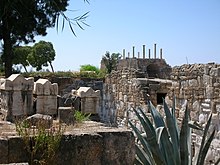
Lebanon is a country rich in natural scenery from beautiful beaches to mountains and valleys. Lebanese people take pride that Lebanon is one of the few countries that gives you the opportunity to go skiing in the morning and going to the beach in the afternoon (although it is impossible to actually do that because of traffic). This is only possible for a few days in the year, usually in the few days when winter shifts to spring and/or summer shifts to autumn.
Beirut Downtown Visitors from all around are astonished by its beautiful downtown. At Place de l'Etoile, tourists can enjoy a delightful meal or a cup of coffee at the outdoor cafes. In addition to those, the capital provides other restaurants and hangouts that people of all ages can enjoy. There are also many nightclubs, bars, cafes, and restaurants, catering to a diverse amount of styles and budgets.
Baalbeck Roman Temples in the city of Baalbeck are among the largest and most beautiful Roman ruins.
Al Bass Archaeological Site , Tyre, a UNESCO World Heritage site and one of the largest and best preserved Roman archeological sites in the world. The site is made up of a huge Necropolis, a massive monumental arch leading to a Roman Road, alongside which there is an excellent example of an aqueduct as well as the largest and best preserved Roman Hippodrome found to date.
Jeita Grotto is a compound of crystallized caves in Lebanon 20 km north of Beirut in the Valley of Nahr al-Kalb (Dog River). This grotto is made up of two limestone caves, upper galleries and a lower cave through which a 6230-m-long river runs. Geologically, the caves provide a tunnel or escape route for the underground river. In this cave and galleries, the action of water in the limestone has created cathedral-like vaults full of various sizes, colors and shapes of stalactites and stalagmites, majestic curtains and fantastic rock formations. The total length of the cave is more than 9000 m and there is one among the biggest stalactites in the world hanging 8.2 m. The grotto accommodates a huge hall with a distance of 108 m from the ceiling till the water level.
Beiteddin One of the most authentic Arabic architectural jewels is the palace of Beiteddine. This historic monument comprises two large courtyards: the “midane”, a vast rectangular place for visitors, and a smaller one for the royal private apartments, with a magnificent fountain in its centre.
Qadisha Valley (Holy Valley) Located in north Lebanon, the “Holy Valley” spreads from Bcharreh to the coast. Classified under UNESCO's world heritage, it is full of countless caves, chapels, and monasteries.
Byblos also known in Arabic as "Jbeil", is an ancient Phoenician city that had been declared a UNESCO World Heritage Site. Its touristic attractions include a medieval castle and a Roman amphitheater, as well as many seaside cafes and restaurants serving fresh seafood.
Anjar is a city in the Beqaa Valley with many local restaurants where you can enjoy the unique Lebanese cuisine. The city is home to the unique ruins of an 8th-century Umayyad city.
Lake Qaraoun is an artificial lake located in the Beqaa valley which is popular during late spring and summer. Restaurants are located on the western side of the lake and boats operate for lake viewing.
Do [ edit ]
Nightlife [ edit ].
The Lebanese people have had to adapt to the political turmoil. Lebanon is easily the party capital of the Middle East. Beirut features a range of distinct nightlife neighbourhoods, such as Gemmayze district, mostly full of bars and restaurants, or the Monot Street which features nightclubs and bars. Lebanon is also known for its open-air nightclubs such as Sky Bar, White, and Iris. Greater Beirut is a sleepless city, as the great majority of it open 24 hours a day.
Lebanese nightclubs are widely diverse, as one can find both the "oriental" and "occidental" style, and in some cases, a mix of both.
Lebanon also has a huge beach party scene having exquisite beaches and beach resorts including Sporting Club, Oceana, Laguava or Edde Sands and Janna Sur Mer. However, these places can be very expensive, especially for the budget traveller.
Hike [ edit ]
- Lebanon Mountain Trail (LMT) – a more than 350-km national hiking trail extending from Al Qobaiyat in the north to Marjaayoun in the south. The Trail is not well marked and it is recommended that you get a guide because you will get lost. The guides can be expensive but it is worth talking them down on price. If you do decide to go alone, the country side is populated and you are never very far from people. This is by far the best way to see wild Lebanon!
Ski [ edit ]
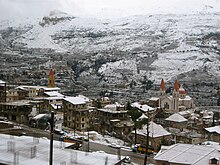
Lebanon has six ski resorts with groomed slopes, catering to skiers and snowboarders of all levels. Beyond the ski-able domains await you kilometers of cross-country skiing and snowshoeing trails waiting to be explored; Lebanon has something for everyone. Each of the ski resorts has a different flavor.
Wine tasting [ edit ]
Lebanon has some of the oldest sites of wine production in the world and today enjoys a burgeoning industry producing award-winning wines for worldwide export, though mainly in the UK, Europe and the United States. Wine tasting is an absolute must with any visit to Lebanon. Below are some wine producers in Lebanon for you to keep an eye out for:
- Chateau Musar [dead link] , Chateau Ksara , Chateau Kefraya , Domaine Wardy , Vin Héritage , Chateau Fakra [dead link] , Domaine de Baal , Chateau Nakad [dead link] , Massaya , Domaine des Tourelles , Clos Saint Thomas , Cave Kouroum [dead link] , Clos de Cana [dead link] , Nabise Mont Liban , Chateau Khoury ,
Buy [ edit ]
Money [ edit ].
The Lebanese currency is the Lebanese pound , which is most commonly known in Lebanon as the Lebanese lira . It is denoted by the symbol " ل.ل., " or " LL " (ISO code: LBP ). After the Lebanese Civil War ended, its value was kept stable relative to the US dollar for decades, at a value of LL1,500 to US$1, but has been in free fall since October 2019, resulting in a major economic crisis that has paralyzed the country. In February 2023, the pound was devalued by 90%.
Credit card and ATM card use are charged at the Sayrafa rate , which is below the black market rate. You can get the best rate by bringing cash to exchange at the money shops. Though due to the financial crisis, you have to assume you can't use your debit/credit card in Lebanon at all. In most cases, you cannot use it to purchase stuff, you cannot use it in restaurants or hospitals and you cannot use it in the ATM to withdraw money. Cash is the key to paying in Lebanon at the moment.
Lebanese lira and US dollars are accepted almost everywhere, and it is common to pay in dollars but receive change in lira (in which case, make sure you don't get short-changed). Since the financial crisis began, there are two types of US dollars talked about in Lebanon: “lollars”, which are US dollars stuck in Lebanese bank accounts frozen by the banks, and such are worthless , and "fresh dollars", which are in huge demand in Lebanon. As a visitor carrying fresh dollars, you may run the risk of being scammed. Since October 2019, banks have been running short of US dollars, and a black market has emerged with rates that have drastically diverged from the official (fixed) exchange rate. The currency has continued to fall in value.
Bills used are LL1000, LL5000, LL10,000, LL20,000, LL50,000 and LL100,000. You may find two forms of LL1000 and they are both accepted. There are LL250 and LL500 coins. LL25, LL50 and LL100 coins are virtually never used.
Eat [ edit ]

Lebanon fosters exquisite cuisine ranging from a mezza of vegetarian dishes such as tabouleh , fattoush , and waraq ainab to delicious dips like hommos and moutabal .
Must haves include Lebanese barbeque such as shish tawouq (barbequed chicken) – usually consumed with garlic, lahm mashwiye (barbequed meat), and kafta (barbequed seasoned minced meat).
Lebanese "fast food" is also available as sandwiches offered in roadside shops, such as shawarma sandwiches (known in other countries as doner - or gyros in Greece). Shawarma is rolled in Lebanese thin bread. Various barbequed meat sandwiches are also available, and even things such as lamb or chicken spleen, brains, lamb bone marrow or lamb testicles can be served as sandwiches.
Breakfast usually consists of manaeesh which look like folded pizza, the most common toppings being zaatar (a mixture of thyme, olive oil, sesame seeds), jebneh (cheese), or minced meat (this version is more properly referred to as lahm bi ajin ).
Another traditional breakfast food is knefeh , a special kind of breaded cheese that is served with a dense syrup in a sesame seed bread. It is also served as dessert.
Lebanon is also very famous for its Arabic sweets which can be found at leading restaurants. The city of Tripoli, however, is considered to be "the" city for Lebanese sweets, and is sometimes even referred to as the "Sweet Capital" of Lebanon.
International food chains are widely spread across the country. Italian, French, Chinese, and Japanese cuisines, as well as café chains (such as Starbucks, Dunkin' Donuts, etc.), are particularly popular across the country, with a higher concentration in Beirut and the urban sprawl north of the capital.
Drink [ edit ]
Lebanon's wines have an international reputation. Grapes have been grown since antiquity, and the vineyards, largely in the Bekaa Valley, produce the base wine for distillation into the national spirit Arak, which, like Ouzo, is flavoured with aniseed and becomes cloudy when diluted with water. Arak is the traditional accompaniment to Meze.
But the grapes have also historically been used to make wine. This used to be predominantly white and sweet, but the soldiers and administrators that came to administer the French mandate after World War I created a demand for red wine, and large acreages were planted especially with the Cinsault grape. Over the last 20 years, these have been supplemented with the most popular international varieties, such as Cabernet Sauvignon and Chardonnay.
Wineries often offer wine tasting and are very welcoming. The highly individual, old-fashioned, Chateau Musar, is based at Ghazir, 25 km (15 miles) north of Beirut, and trucks in the grapes from Bekaa. In Bekaa itself, wineries include the large Kefraya, Ksara, the oldest winery of all, Massaya, a fashionable new producer in Tanail, and Nakad in Jdeita, which like Musar has stuck with an idiosyncratic old-fashioned approach. Kefraya, in the West Bekaa region, also has a nice restaurant attached, and the region is beautiful to pass through.
Sleep [ edit ]
Lebanon is full of hotels, with a range in price and quality, from USD10/night to many hundreds of dollars per night, and the quality ranges just as much. Many international hotel chains, such as Intercontinental, Holiday Inn, and Crowne Plaza, can be found here. In Beirut, in coastal cities, and around the historic site of Baalbek, many luxury hotels built in the “Golden Age” boom of the 1960s and early 1970s can be found all over and stayed in for a luxurious and nostalgic experience. They offer a variety of services, including pools and restaurants, amidst the ongoing financial crisis they, although expensive, are your best bet for staying somewhere in Lebanon, as 24-hour electricity is generally nowadays only found in these hotels.
If you want something more affordable, although be prepared to suffer electricity and wifi outages for long hours each day, you can also stay in the many “mom-and-pop” style hotels and boutique hotels found in the country. The best way to save money if you are staying for a long visit is furnished apartments or all-suite hotels, as they come with cleaning and other services.
Learn [ edit ]

Secondary schools [ edit ]
French-language private schools (and some English-language schools) dominate the education system, due to the widespread inefficiency of the Lebanese state education system since 1975. As such, most schooling is held in either French or English, though students typically learn (Modern Standard) Arabic as a second language in these schools.
A handful of private schools, such as the Lycée Français (several branches over the country), the Collège Protestant Français , Collège Saint Joseph Antoura [dead link] , Lycée Abdel Kader , Collège Notre-Dame de Jamhour and Collège Elysée among others follow the official French curriculum. The official French Baccalaureate exams can be taken in Lebanon, but prove highly competitive.
Some schools (such as ACS) teach English as a first language and follow an English or American curriculum.
Beirut is also home to one of the most prestigious schools in the region, the International College (IC) which teaches both French and English as first languages among many others. Furthermore, IC offers a variety of baccalaureate programs such as the French, Lebanese, High School, and International Baccalaureate .
Universities [ edit ]
French-language or English-language universities also dominate given the inefficiency of Lebanon’s state university system since 1975. These universities have operated as a major hub of Lebanese cultural, political and social life for decades.
The American University of Beirut - AUB is considered the best American university in the Middle East, and enjoys a highly prestigious reputation in Lebanon. The teaching language there is in English. Other Anglophone private universities include: Antonine University - UPA [dead link] | Notre Dame University - NDU | Lebanese American University - LAU ...
Some private universities have French as the main teaching language. Université St.Joseph - USJ is one of these, it is an old and respected institution in Lebanon, and probably offers the best price/quality ratio among private universities in the country. It is the private university which has enrolled most of the Lebanon students as well as foreign students from other countries in Middle East, Africa and Europe. Other francophone private universities are USEK and Balamand.
If you wish to enroll in the Lebanese state system, the Lebanese University is a recommended state-owned/public university, teaching in Arabic, French and English, and is the largest learning institution in the country. It offers virtually free tertiary education.
Work [ edit ]
Volunteer [ edit ].
Lebanon continues to face numerous problems, including the 2020 explosion in Beirut, which exacerbated the situation. The scarcity of basic supplies, such as food and water, has made them difficult to access for many Lebanese people. Offering sympathy whenever possible is appreciated by the Lebanese people.
If you really want to make a difference in Lebanon, you can donate to or help out with the following charities:
- Nusaned - Lebanon's largest NGO
- Lebanese Food Bank - A non-profit organisation established to eliminate malnutrition in Lebanon

Connect [ edit ]
MTC Touch [11] [formerly dead link] Mobile phone operator offers a GSM card for US$15 including a $10 credit (the START plan). Internet access starts at $10 for up to 100 MByte in a month. Alfa [12] [dead link] is another mobile phone operator which offers several prepaid plans ranging from $10 to $68. Like MTC Touch, internet access starts at $10 for a 500 MByte bundle per month.
Stay safe [ edit ]
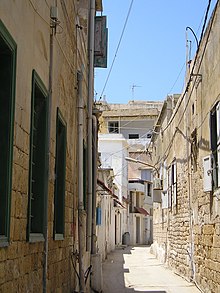
Though many foreign visitors fear widespread violence and destruction upon arrival in Lebanon, since the end of the Lebanese Civil War in 1990 Lebanon has remained relatively peaceful. The vast majority of Lebanese are friendly, and most tourists experience no problems. Nevertheless tensions with neighbours Israel and Syria sometimes erupt (but are usually confined to South Lebanon) and therefore travellers should follow the independent press while in the country.
Like in any country, it is preferable to be accompanied when visiting certain locations. In general, immediate proximity to the borders with Syria and Israel, and any Palestinian or Syrian refugee camps should be avoided.
Some areas in Lebanon are likely to be dangerous for tourists, such as the town of Arsal in the Northern Bekaa, known for kidnapping expats for ransom. In the 2010s, Arsal was also known for the activities of ISIS cells in the area fighting in neighbouring Syria, and some may still operate in the area. As such, you should generally avoid the town of Arsal.
Since the end of the war, in Southern Lebanon, the pro-Iran Shi’a militia Hezbollah holds complete dominance over everyday life, with virtually no government presence and no army presence. As such, the region has been described as “lawless”. You should avoid making any kind of criticism of Hezbollah or Iran while in Southern Lebanon, or any praise of Israel, Saudi Arabia, or Western countries as you can land in serious trouble . Though many locals in the region are angered by Hezbollah’s dominance over politics, economics, and civil life in Southern Lebanon, do not be tempted to join them in anger as you could be used as a political bargaining chip if unlucky.
Visitors should always register with their respective embassies once they enter Lebanon and keep up-to-date regarding any travel warnings regarding Lebanon.
Useful phone numbers:
- Police: 112 or 911 or 999 (it is common that if you call them for small-scale infractions e.g. pick-pocketing or sexual harassment they will not come).
- Fire brigade: 175 (metropolitan Beirut only)
- Civil defense: 125 (outside Beirut)
- The Red Cross (Medic Response): 140
- Information: 1515
Stay healthy [ edit ]
As a key destination for health tourism in the region, Lebanon has a professional and private healthcare system. Located mainly in Beirut, key hospitals include:
- AUH (American University Hospital), Hamra area: +961-1-344704.
- RHUH (Rafic Hariri University Hospital), Bir Hassan area: +961-1-830000.
- Hotel Dieu de France, Ashrafieh area: +961-1-386791.
- Rizik Hospital, Ashrafieh area: +961-1-200800.
- Mont Liban Hospital, Hazmieh area: +961-1-955444.
- Sacré Coeur Hospital, Hazmieh area: +961-1-451704.
- Saint George Hospital, Ashrafieh area: +961-1-441000.
- Tel Shiha - Zahle, Beqaa
- Nini Hospital - Tripoli, North Lebanon: +961-6-431400.
- Hopital Albert Haykel - Koura, North Lebanon: +961-6-411111.
- Sahel Hospital - Airport Ave Area: +961-1-858333
- Jabal Amel Hospital - Jal Al Baher Area, Tyre: +961-7-740343, 07-740198, 07-343852, 03-280580
- Labib Medical Center - Abou Zahr Street, Sidon Area: +961-7-723444, 07-750715/6
- Bahman Hospital - Beirut, Haret Hreik Area: +961-1-544000 or 961-3-544000
It is extremely important that you get travel insurance prior to your departure to Lebanon. Hospitals in the country can be very expensive and, with the lack of insurance, cash payments may be expected beforehand.
It's recommended to drink bottled water rather than tap water.
Respect [ edit ]
Lebanon is a country of many different religious sects, so it is wise to respect the religious differences of the Lebanese population. It is recommended to wear modest clothing when visiting religious sites (churches, mosques, etc.) and when visiting rural towns and villages. Sectarian attitudes, although widespread during the war, have largely decreased, especially in the wake of the recent financial crisis, which has seen large sectors of Lebanese society come together in unity. However it has not fully disappeared in areas such as the South.
Even in Beirut, some areas (notably the Shi’a-majority southern suburbs) are more conservative than others, thus visitors should bear that in mind when exploring the city. Overall, however, clothing considered 'western' is largely acceptable, with a large number of Lebanese women not wearing hijab in stark contrast to neighbouring Syria, and with a huge cosmetics, plastic surgery, and beauty industry. But to hedge your bets, keep your dress generally modest. Bear in mind, however, that as open and western as Beirut is, this is not Europe; "topless" at any beach, whether private or public, is not recommended at all.
In Tripoli, especially in the old city, it is recommended that women dress conservatively. The same applies on most traditional "souks" in the country. In general, Lebanese are accustomed to different lifestyles and some do not take offense easily, especially with matters related to dress. The Lebanese are people accustomed to diversity and are therefore quicker to accept different lifestyles, though not all Lebanese are so open-minded.
Social etiquette [ edit ]
- The Lebanese are indirect communicators . They are tempered by the need to save face and they will avoid saying anything that could be construed as critical, judgmental, or offensive. This said, the Lebanese value transparency and openness and they take words at face value.
- The Lebanese value sincerity and openness . Expect a Lebanese person to do exactly what they say they will do. To them, their word is their bond. Don't say something if you don't mean it. Don't say "next time" if there isn't going to be a "next time".
- The Lebanese respect their elders . You are expected to act politely around someone older than you, and it would be seen as rude if you attempt to challenge someone older than you.
- Never beckon a Lebanese person directly , even if they have done something wrong in your opinion. The Lebanese are quite sensitive to being beckoned directly, and it is considered very rude manners.
- If a Lebanese person asks you for a favour, try to follow through with it . It's completely normal for the Lebanese to try to help each other out as much as possible. Being reluctant to accept favours is considered extremely rude.
Sensitive issues [ edit ]
Politics [ edit ].
Lebanon has been facing a large-scale, multi-dimensional economic crisis since 2019, resulting in the majority of citizens losing their life savings due to banks' refusal to allow withdrawals. Furthermore, a failed "Revolution" (Thawra) in October 2019 has caused the country to unite against the government.
Discussing politics is not a social faux pas; in fact, the Lebanese may delight you with conversations about how hapless their government is.
- Has custom banner
- Has warning box
- Has map markers
- Has VisaRestriction box
- Has VisaRestriction box with no date
- Articles with dead external links
- Articles with formerly dead external links
- Has Geo parameter
- Middle East
- All destination articles
- Outline countries
- Outline articles
- Country articles
- Pages with maps
Navigation menu
Lebanese Republic
Other Sites

- Visa Application Form >>>>>>>
For more information please contact directly
Two Option:
Obtain Visa at Beirut International airport
- Obtain Visa from the Embassy in person or by mail
Passports, Travel Documents and Visas
Tel. +1 (613)236-5825 Ext. 228
Email [email protected]
The following is a list of countries whose citizens can obtain an entry visa upon arrival at Beirut International Airport or any other port of entry if there is no Israeli visa or seal on their passport.
Andorra, Antigua and Barbuda, Argentina, Armenia, Australia, Austria, Azerbaijan, The Bahamas, Barbados, Belarus, Belgium, Belize, Bhutan, Brazil, Bulgaria, Canada, Chile, China Republic, Czech Republic, Costa Rica, Croatia, Cyprus, Denmark, Dominican Republic, Estonia, Finland, France, Great Britain, Georgia, Germany, Greece, Hong Kong, Hungary, Iceland, Ireland, Italy, Japan, Kazakhstan, Islamic Republic of Iran, Kyrgyzstan, Latvia, Lithuania, Liechtenstein, Luxembourg, Macedonia, Macau (S A R), Malaysia, Malta, Mexico, Moldova, Monaco, Montinegro, Netherlands, New Zealand, Norway, Palau, Panama, Peru, Poland, Portugal, Russia, Romania, Saint Kitts & Nevis, Samoa, San Marino, Serbia, Singapore, Slovakia, Slovenia, South Korea, Spain, Sweden, Switzerland, Tajikistan, Turkey ( exclusively at the airport), Turkmenistan, USA, Ukraine, Uzbekistan, Venezuela, Yugoslavia.
* The cost for a visa at the airport is $17 US, it is for one entry and valid for 3 months only.
* There is no fee for the Airport’s visa valid for one month and one entry only.
Obtain Visa from the Embassy
- You can obtain a visa at the Embassy or by mail .
- The validity of a visa is 90 days starting from the issue date.
- The duration of a visa is one, three or six months starting from the day of entry to Lebanon.
- In case of a visa for an underage child , both parents should sign a consent letter authorizing the child to travel.
- A visa will not be issued on any passport or travel document stamped with an Israeli visa or seal.
Moreover, a Lebanese visa is rendered invalid if an Israeli visa or seal is stamped on the passport.
Required papers for Visa :
- You need to fill out a Visa Application Form and present it to the Embassy with the followings:
a. Valid original passport with 2 clear coloured photocopies of the pages that contain
the full name, photo, passport #, issue date, and expiry date.
b. One recent colour photos (Size 4,3 x 3,5 cm not drawn from another photos) showing
full details of the face with a white background.
c. FOR MINORS UNDER 18 YEARS OF AGE , a consent letter to issue a passport or a visa is required from both parents.
Authorizing the child to obtain a Visa
- In person : at the Embassy in front of the Consular Officer.
- By mail : in front of a notary public.
d. University/ School or Work attestation
e. the amount of:
- $105: Visa one entry
- $150: Visa Two entries
- $210: Visa multiple entries
In person : Cash
By mail : - Money order or certified cheque payable to the Embassy of Lebanon.
- We do not accept any cash via mail.
- The Embassy returns the completed formality to the sender in the prepaid Self-addressed stamped, Xpresspost, envelope with phone number
- Mail all the requested documents with 2 photocopies (write your family registration number if available) and a prepaid self-addressed (return) envelope to the Embassy at the following address:
Embassy of Lebanon
640 Lyon Street
Ottawa, ON K1S 3Z5
Phone: +1 (613)236-5825
Fax: +1 (613)232-1609
Email: [email protected]
Embassy Business Hours
Monday to Friday
9:00am - 3:00pm

Business Inquiry

640 Lyon St. S
Copyright © Embassy of Lebanon 2024. All rights reserved
We’re sorry, this site is currently experiencing technical difficulties. Please try again in a few moments. Exception: request blocked
Update April 12, 2024
Information for u.s. citizens in the middle east.
- Travel Advisories |
- Contact Us |
- MyTravelGov |
Find U.S. Embassies & Consulates
Travel.state.gov, congressional liaison, special issuance agency, u.s. passports, international travel, intercountry adoption, international parental child abduction, records and authentications, popular links, travel advisories, mytravelgov, stay connected, legal resources, legal information, info for u.s. law enforcement, replace or certify documents.
Share this page:
Lebanon Travel Advisory
Travel advisory january 29, 2024, lebanon - level 3: reconsider travel.
Updated to reflect lowering the overall Travel Advisory to Level 3, information about southern Lebanon, the border with Syria, and refugee settlements in Lebanon, information on crime and political violence, kidnapping, unexploded landmines, civil unrest, and the “If you decide to travel” section.
Reconsider travel to Lebanon due to crime, terrorism, civil unrest, kidnapping, unexploded landmines, and armed conflict . Some areas, especially near the borders, have increased risk. Read the entire Travel Advisory.
Do Not Travel to:
- Southern Lebanon due to the potential for armed conflict;
- The border with Syria due to terrorism and armed conflict;
- Refugee settlements due to the potential for armed clashes .
Country Summary : U.S. citizens in Lebanon should be aware of the risks of remaining in the country and review their personal security plans. U.S. citizens are urged to avoid travel to southern Lebanon, the Syrian border, and refugee settlements in Lebanon.
U.S. citizens in Lebanon should be aware that consular officers from the U.S. Embassy are not always able to travel to assist them. The Department of State considers the threat to U.S. government personnel in Beirut sufficiently serious to require them to live and work under strict security. The internal security policies of the U.S. Embassy may be adjusted at any time and without advance notice.
Terrorist groups continue plotting possible attacks in Lebanon. Terrorists may conduct attacks with little or no warning targeting tourist locations, transportation hubs, markets/shopping malls, and local government facilities.
The Lebanese government cannot guarantee the protection of U.S. citizens against sudden outbreaks of violence and armed conflict. Family, neighborhood, or sectarian disputes can escalate quickly and can lead to gunfire or other violence with no warning.
Local security authorities have noted a rise in violent crimes, including political violence. Multiple unsolved killings in Lebanon may have been politically motivated.
Kidnapping, whether for ransom, political motives, or family disputes, has occurred in Lebanon. Suspects in kidnappings may have ties to terrorist or criminal organizations.
Unexploded landmines and explosive remnants of war are a hazard along the border with Syria. Heed land mine warning signs. Do not venture off the road into areas marked off with red and white plastic tape. Avoid roadside ditches, shoulders, and unmarked trails. Never touch anything resembling unexploded munitions.
U.S. citizens should avoid demonstrations and exercise caution if in the vicinity of any large gatherings or protests as these have the potential to turn violent quickly and with little notice. Protesters have blocked major roads, including thoroughfares between downtown Beirut and the area where the U.S. Embassy is located, and between Beirut and Beirut Rafic Hariri International Airport.
Read the country information page for additional information on travel to Lebanon.
If you decide to travel to Lebanon:
- Visit our website for information on Travel to High-Risk Areas .
- Appoint one family member to serve as the point of contact with kidnappers/hostage-takers, media, U.S. and host country government agencies, and members of Congress if you are kidnapped, or taken hostage.
- Keep travel documents up to date and easily accessible.
- Do not touch unknown metal objects and avoid traveling off well-used roads, tracks, and paths due to risk of unexploded ordnance.
- Avoid demonstrations and crowds.
- Stay alert in locations frequented by Westerners.
- Monitor local media for breaking events and adjust your plans based on new information.
- Enroll in the Smart Traveler Enrollment Program ( STEP ) to receive Alerts and make it easier to locate you in an emergency.
- Follow the Department of State on Facebook and Twitter .
- Review the Country Security Report for Lebanon.
- Visit the CDC page for the latest Travel Health Information related to your travel.
- U.S. citizens who travel abroad should always have a contingency plan for emergency situations. Review the Traveler’s Checklist .
Southern Lebanon – Level 4: Do Not Travel (See map below)
The U.S. Embassy strongly urges U.S. citizens to avoid southern Lebanon; that is, all parts south of the city of Saida, to include inland areas, as illustrated in the map below. Cross-border rocket, missile, and artillery fire continues to impact southern Lebanon on a daily basis and has caused a significant number of fatalities and injuries.

Border with Syria – Level 4: Do Not Travel
The U.S. Embassy strongly urges U.S. citizens to avoid the Lebanon-Syria border, which has seen clashes between Lebanese security forces and Syrian-based violent extremist groups. The U.S. Department of State also warns U.S. citizens of the risk of traveling on flights that fly over Syria, which include some flights to and from Beirut.
Refugee Settlements – Level 4: Do Not Travel
The U.S. Embassy urges U.S. citizens to avoid travel to refugee settlements in Lebanon, which are prone to outbreaks of violence including shootings and explosions.
Visit our website for Travel to High-Risk Areas .
Travel Advisory Levels
Assistance for u.s. citizens, lebanon map, search for travel advisories, external link.
You are about to leave travel.state.gov for an external website that is not maintained by the U.S. Department of State.
Links to external websites are provided as a convenience and should not be construed as an endorsement by the U.S. Department of State of the views or products contained therein. If you wish to remain on travel.state.gov, click the "cancel" message.
You are about to visit:

Everything You Need to Know Before Traveling in Lebanon
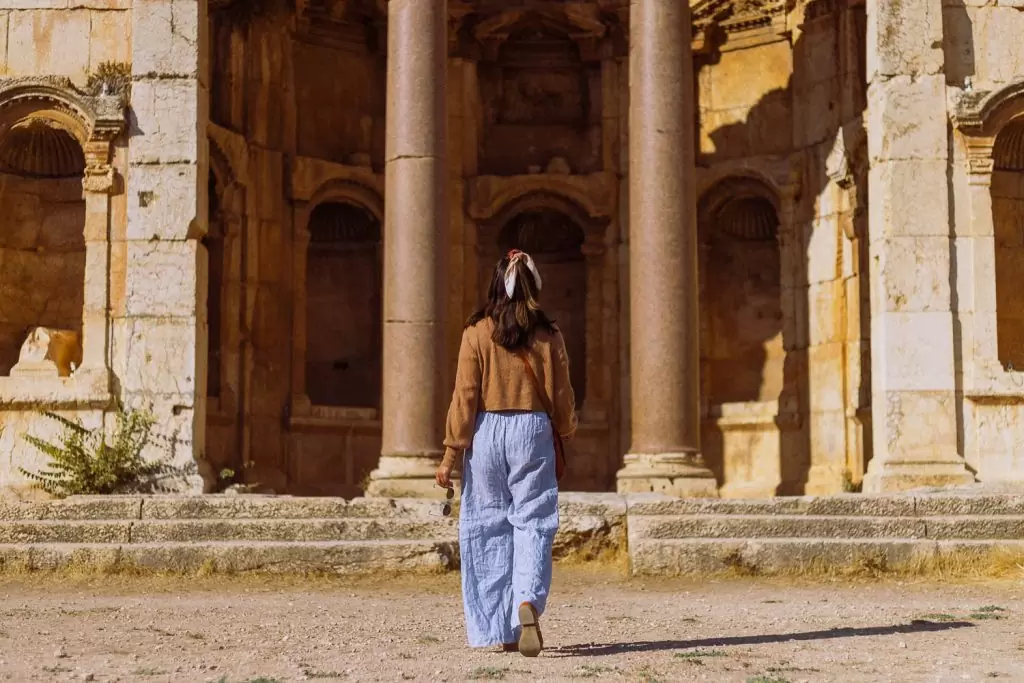
Some articles on Rachel Off Duty contain ads and affiliate links. If you plan on buying or booking something I’ve recommended, please consider using my links, which help power this site at no additional cost to you! To learn more, read our Privacy Policy .
Some articles on Rachel Off Duty may contain affiliate links. Read more in our Privacy Policy.
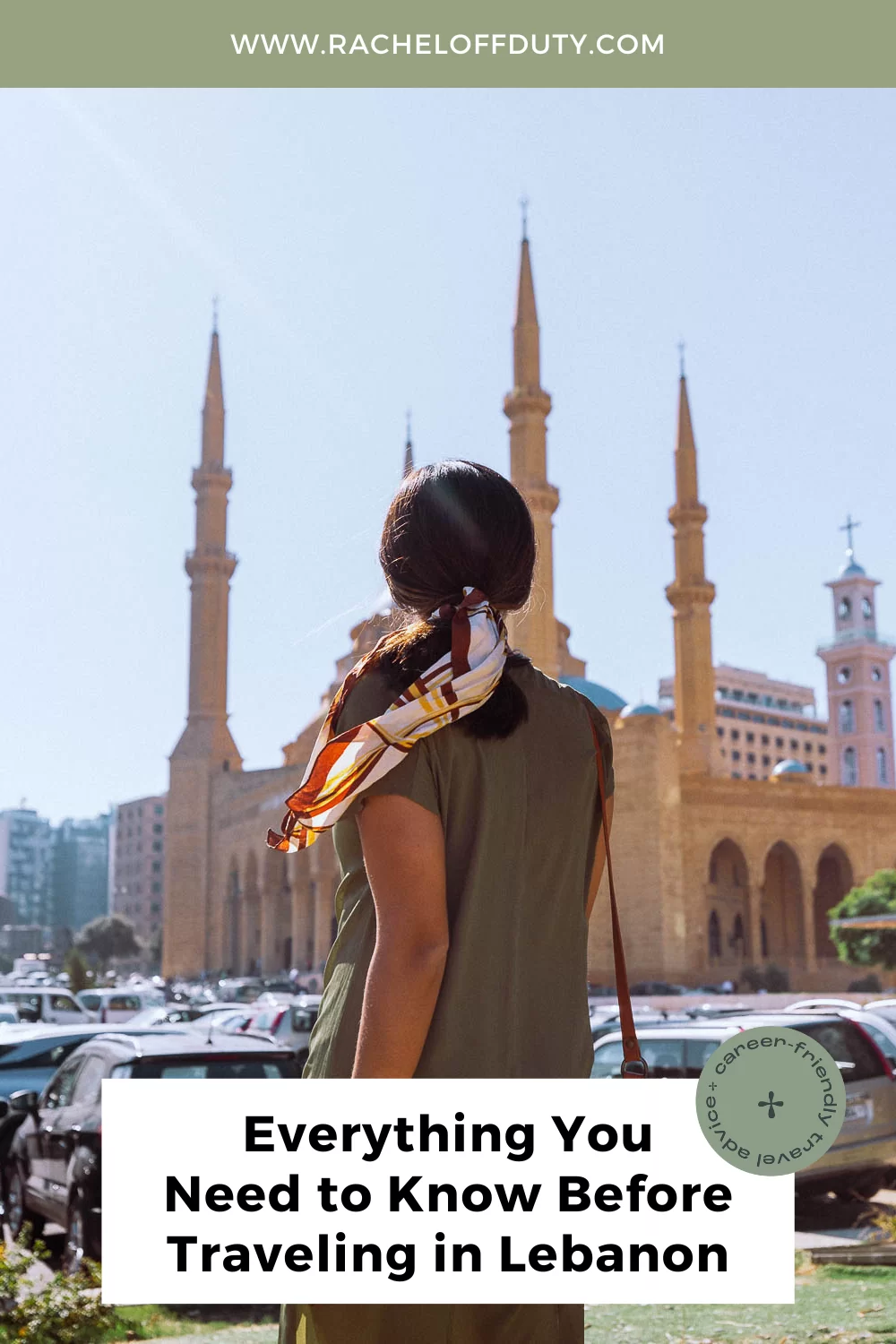
I was hosted by TourLeb while visiting Lebanon. All thoughts and opinions are my own.
Want to experience Lebanon firsthand? Come with me on a GROUP TRIP to Lebanon this Summer (Aug 19 – 27, 2023). Space is limited. Reserve your spot with a deposit by clicking this link .
“Have you been to crazy countries before, or is this your first time?”
My guide, Nada, asked me moments after I slid into her car at the busy Beirut-Rafic Hariri International Airport, weary after the 20-hour journey from Los Angeles to Beirut.
“Yes?” I replied, after making eye contact with my boyfriend Jacob sitting next to me in the back seat. My family is from the Philippines and Jacob’s is from Mexico , after all. Despite it being our first time in the Middle East, we didn’t feel out of place in a country worlds apart from our own, both geographically, culturally, and socio-politically. In fact, my heart was racing for a different reason. I was thrilled to finally set foot in a place I’d dreamt of visiting since I was 13.
“Good,” she chuckled, and with that we whizzed off to Beirut. Welcome to Lebanon!
Despite being one of the smallest countries in the world, Lebanon is fascinatingly, multi-dimensionally rich. Within just 4,036 square miles, Lebanon encompasses six million people, 18 religions, multiple languages and dialects, diverse geography, and more than 6,000 years of history that has carved the country into what it is today.
While traveling in Lebanon is relatively safe, there are lots of things you should know before you visit this country. Familiarizing yourself with Lebanon’s culture, religions, safety, politics, and economic situation will help you orient yourself more quickly.
Once you do, you’ll be able to better appreciate the spirit of Lebanese people, their joy, their food, and their joie de vivre.
So, let’s get into it. Here are 14 things you should know before traveling to Lebanon!
14 Things You Must Know Before Visiting Lebanon
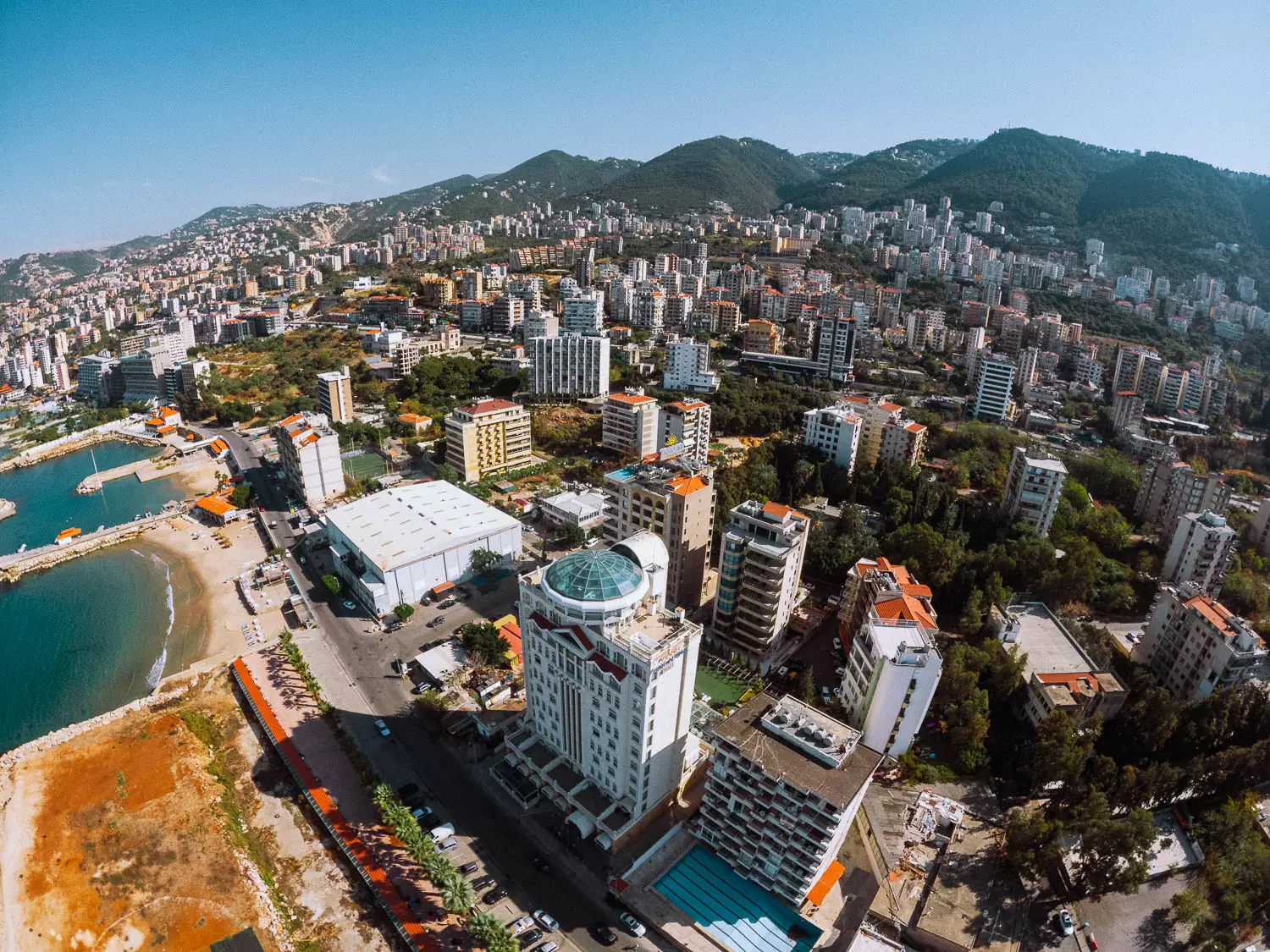
1. Guide vs Solo: Should You Visit Lebanon On Your Own?
First, do you need a guide when traveling to Lebanon? As a frequent solo traveler and avid trip planner, I am used to being fiercely independent when I travel abroad. So, I tend to only seek out local guides for individual activities, like walking tours and cooking classes.
But, after spending 10 days traveling in Lebanon, I can say with certainty that I wouldn’t have been able to do or see even half of the things I got to experience without having a local guide.
Lebanon is a chaotically beautiful country and many things work differently than you might be used to.
Some examples of this include:
- Street signs often only shown in Arabic or French
- Local guesthouses often not searchable on platforms like Booking.com and Airbnb
- Guesthouse staff, on occasion, not speaking English
- Navigating different cultural intricacies, from visiting mosques to traveling to more conservative parts of the country – like Tripoli and Saida
- Money being more difficult to understand in general (more on this later)
- More sensitive areas, like the Beqaa Valley near the Syrian border, having heightened precautions in order to visit safely
And so on.
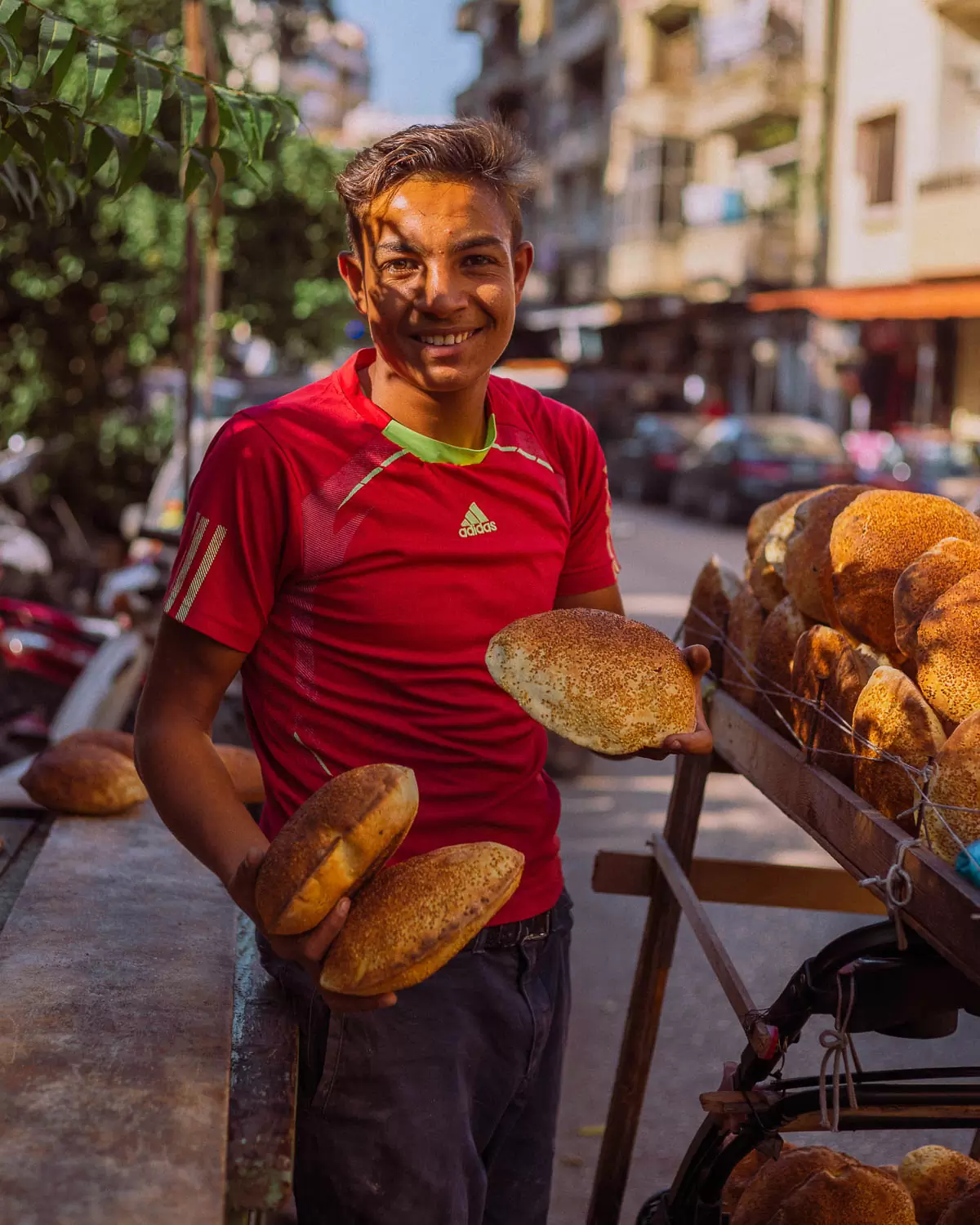
Visiting Lebanon With TourLeb
I visited Lebanon on a private, almost fully-guided itinerary with TourLeb , a women-owned tour company-meets-social enterprise that prioritizes responsible tourism and uplifting local businesses.
The TourLeb staff are unmatched in their knowledge of Lebanon, and I often joked throughout my trip that Nada has the entire country’s six million people on speed dial. In fact, she and her co-founder Joelle started TourLeb after traveling around Lebanon to interview 6,000 people across 1,000 villages to publish a book, Hyphen Islam Christianity , about the people and stories that interweave together to create the oft-hyphenated identities of Lebanon.
So, yes, they’re extremely well connected!
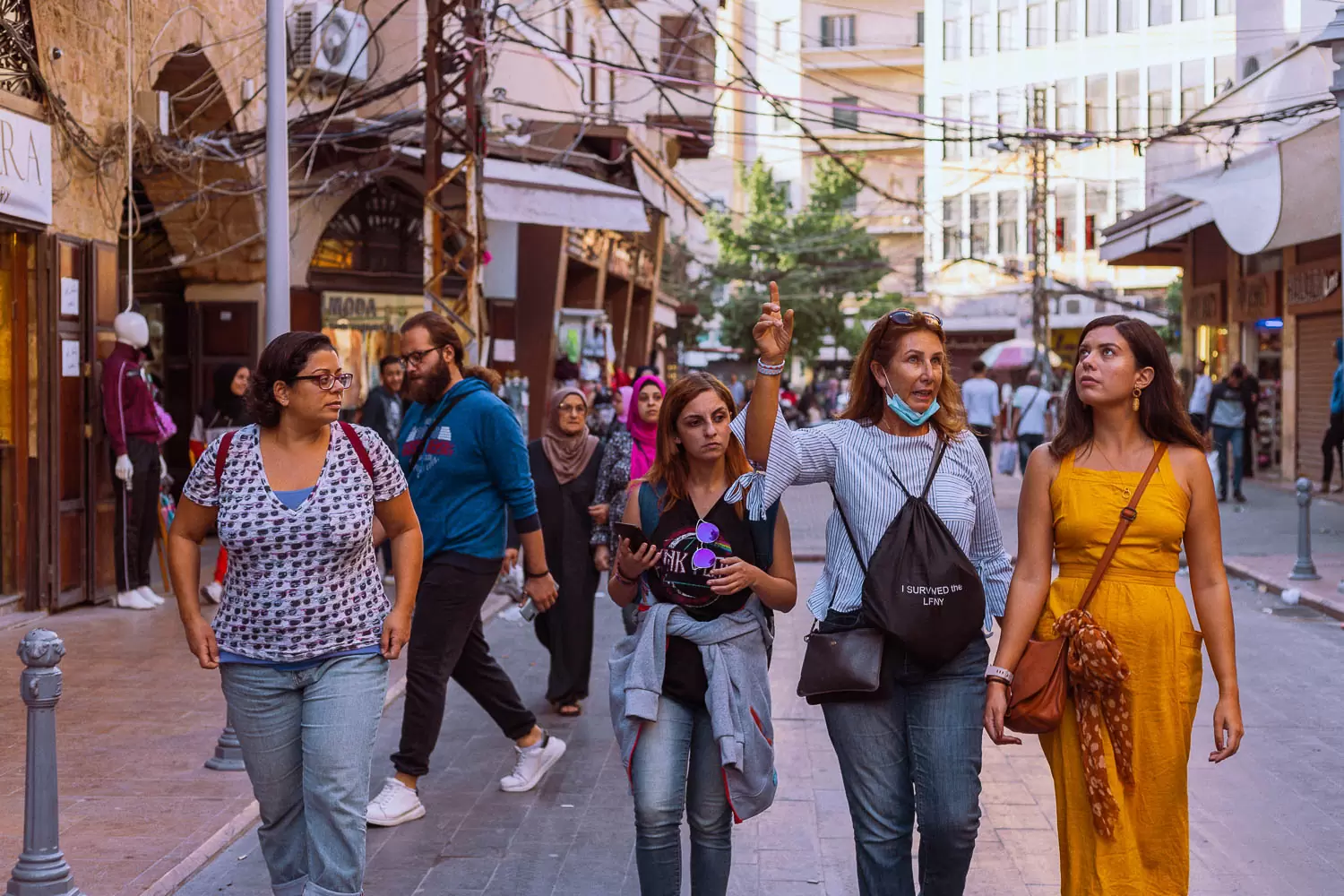
TourLeb offers a couple different options to help travelers visit Lebanon:
- Fully Bespoke Private Tours: Ranging from $900-$1500 per week for a couple (or $250 per day for parties of up to 4). This is what I did when I visited Lebanon!
- Itinerary Planning: $30/day to give you a blueprint for your own self-guided Lebanon holiday.
- Day Trips: Whether you want a private day trip (like, to visit the Beqaa Valley or Tripoli) or are interested in joining one of TourLeb’s weekly day trips that explore off-the-beaten-path Lebanese villages, they often provide excursions that can help you see more of the country even if you’re on a budget.
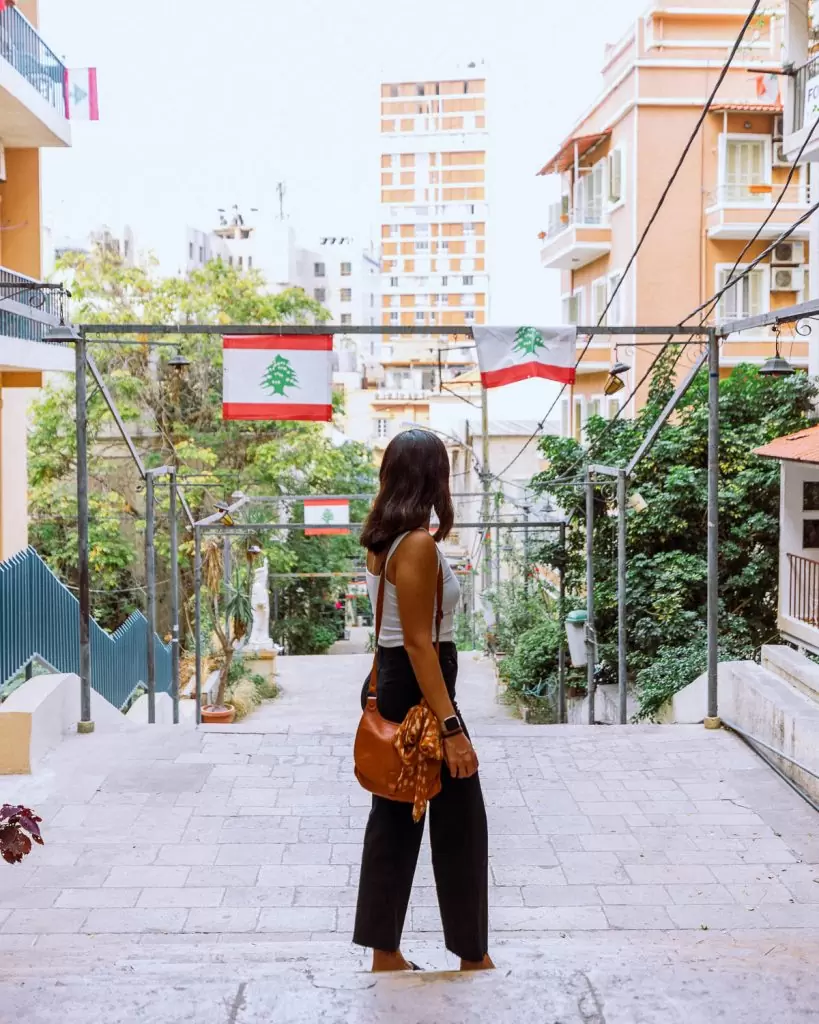
Want to Visit Lebanon with Me?
I’m hosting a group trip to Lebanon this summer! From August 19 – 27, 2023, we’ll walk the footsteps of ancient Romans, cheers to delicious mediterranean wines, dance the night away in Beirut, experience unmatched Lebanese hospitality, uncover palaces and hammams, soak up the sun at the beach, and eat like you’ve never eaten before.
See the full itinerary here or click the button below to reserve your spot! (LIMITED SPOTS AVAILABLE)
While I recommend having a local guide for your Lebanon trip, you might prefer flying solo. If you do, I still recommend hiring a driver – at least for your first visit – because navigating the roads, army checkpoints, and any unexpected situations in this country would be very tricky without one!
RELATED: Top Woman-Owned Travel Companies That Should Be on Your Radar
2. How to Get to Lebanon
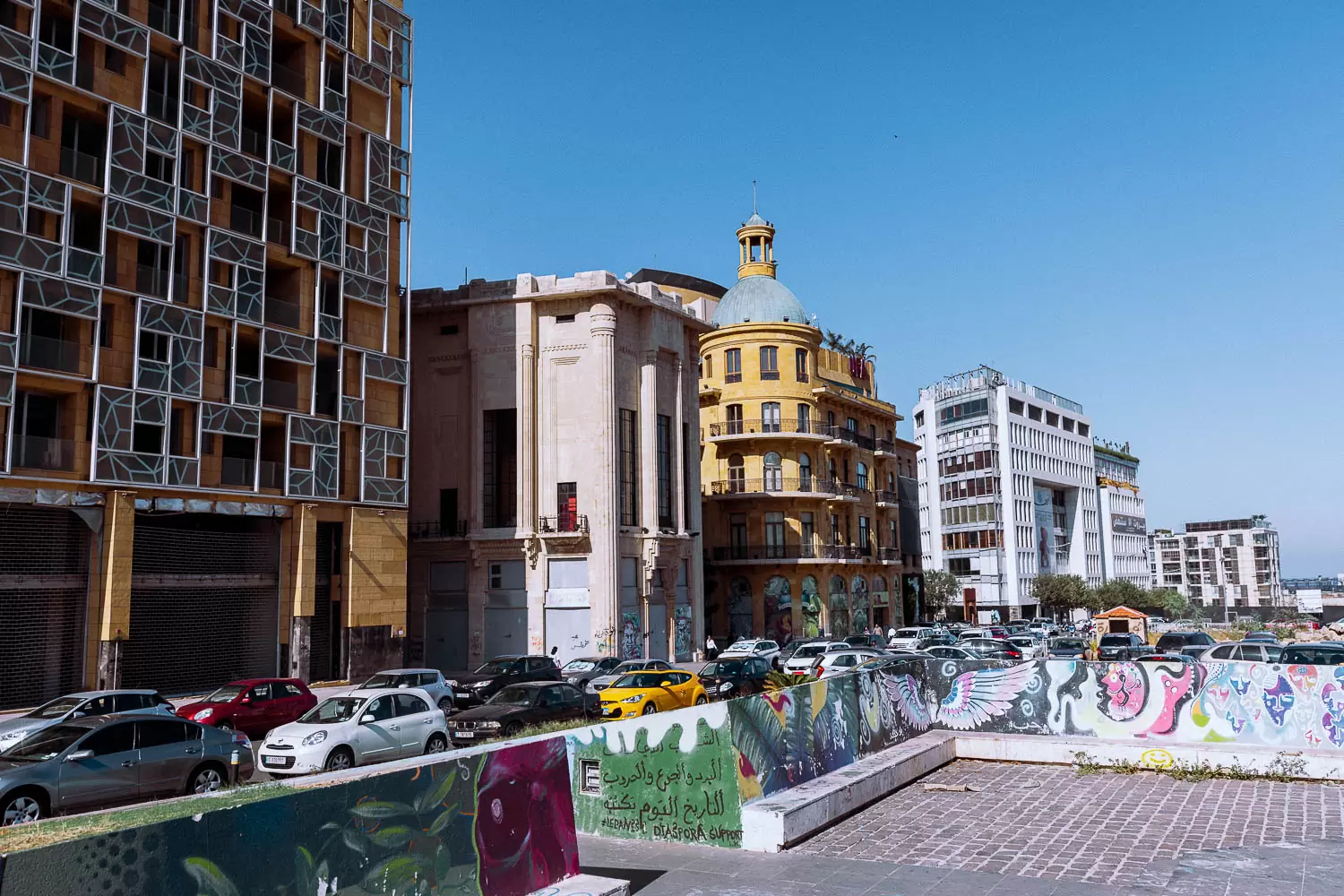
Getting to Lebanon is actually easier than you might think!
While there are currently no direct flights from the USA to Lebanon, you can often find routes that only require one layover. Airlines like Emirates, Turkish Airlines, Qatar Airways, and Air France have regular Beirut routes with layovers in Dubai, Istanbul, Doha, or Paris. Compare airlines and prices on Google Flights or Kayak to see which route is best for you.
When you arrive in Lebanon, you’ll be landing in Beirut. You’ll fill out a brief immigration document and go through customs upon arrival. Unlike the bad rap US customs officials get, customs officials in Lebanon are actually so kind and welcoming to tourists!
The only thing you need to remember? You cannot have any Israeli passport stamps or security stickers in your passport . If you do, you’ll be denied entry to Lebanon.
3. Lebanon’s History
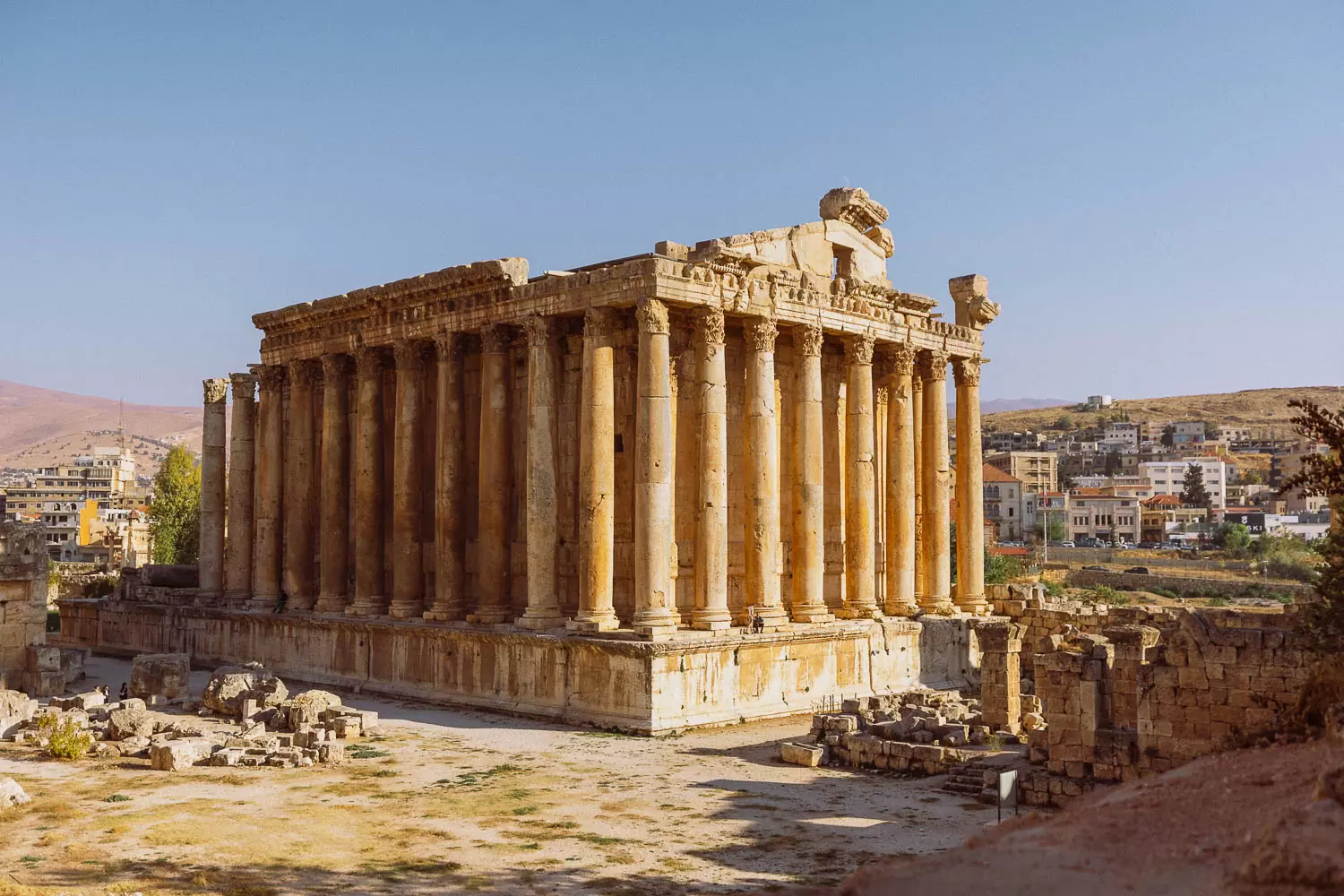
From the ancient Phoeniciean and Assyrian eras, to Roman and Byzantine regimes, to Crusaders, Mamluks, and eventually, Ottoman Rule, this ancient land had been molded and shaped by countless layers of influence and culture.
When 300 years of Ottoman rule dissolved after WWI, Lebanon finally became the country we know today. But, its complex history only gets even more nuanced in the last 100 years. Starting with the French Mandate (which is why you’ll hear French as commonly as you will Arabic) in the early 1900s, to the war in the 70s, to the economic and electricity crises of today, to the Beirut Blast of 2020, Lebanon has been dealt a series of hurdles – emerging from each even more resilient than the last.
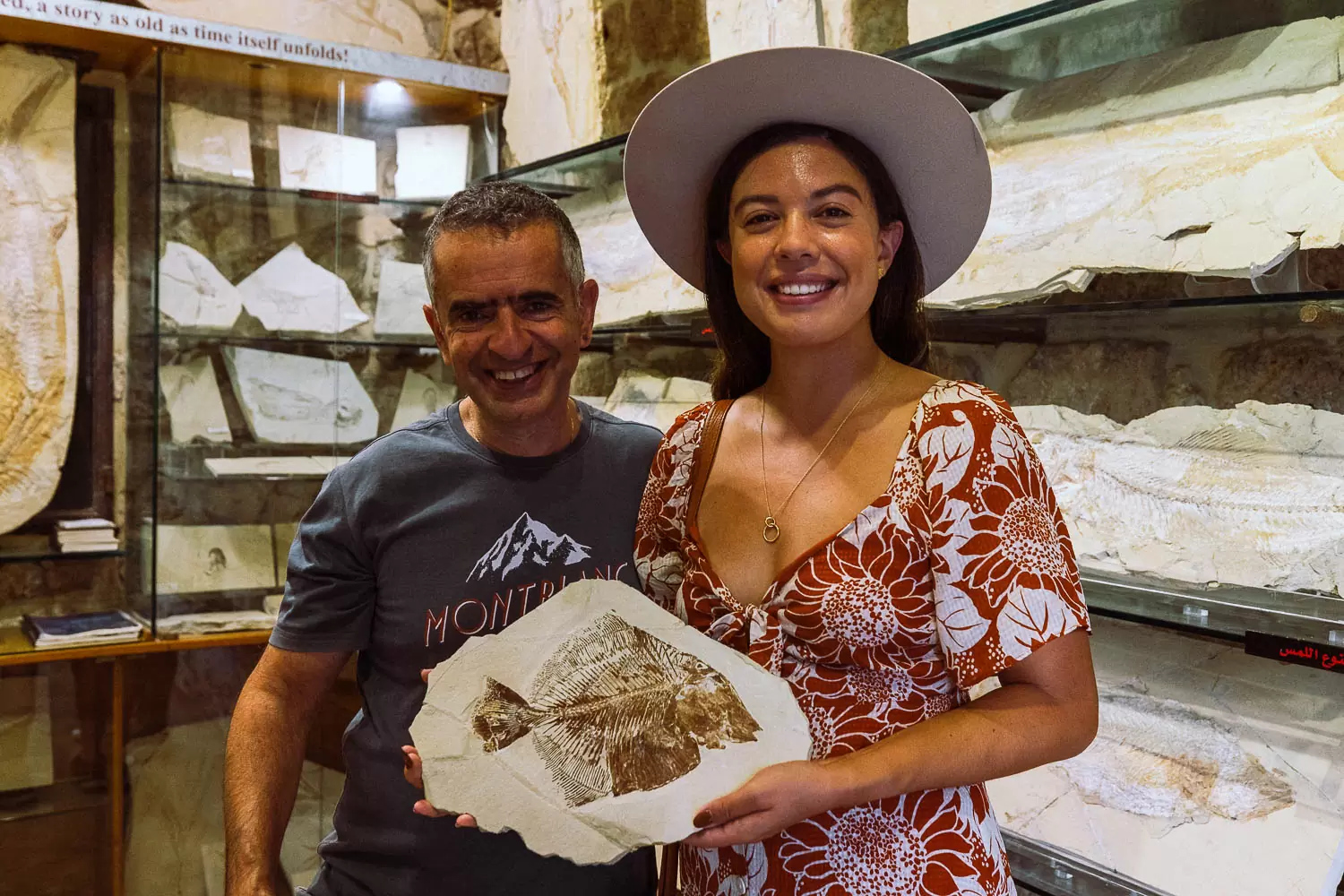
Spend some time exploring this country and you’ll begin to see these layers reveal themselves.
You’ll see it in the ruins that rival those of Athens, the French and Arabic dialects that echo across the souks, the ancient fish fossils of Byblos, the neighboring churches and mosques, and the chic cafes that are serenaded by daily calls to prayer.
4. Safety in Lebanon: Is Lebanon Safe to Visit?
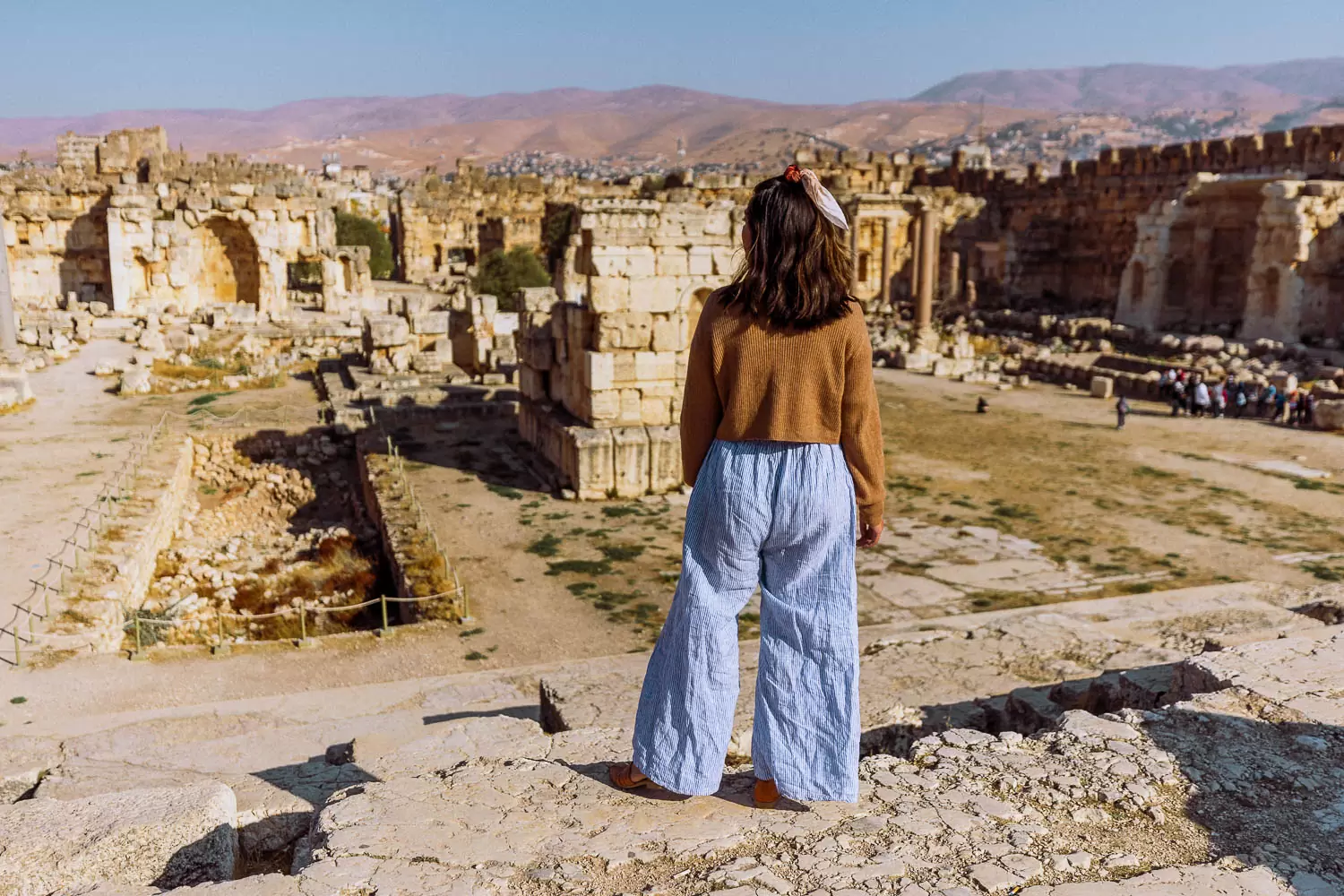
You might be asking yourself – is Lebanon safe? And with everything going on, is it safe to travel to Lebanon now ?
General Lebanon Safety Overview
In general, traveling to Lebanon is quite safe for tourists. Much safer than the news and our government-issued travel advisories would have us believe. I want to stress this, because the country is desperately in need of tourism and many Lebanese people are quite eager to shed the negative perceptions of their country that the media have long associated with Lebanon.
In fact, I was often met with a combination of surprise (that an American would be visiting their village, restaurant, or hotel!) and delight that resulted in some of the most unbelievable hospitality I’ve ever experienced.
Geographic / Political Situations Surrounding Lebanon
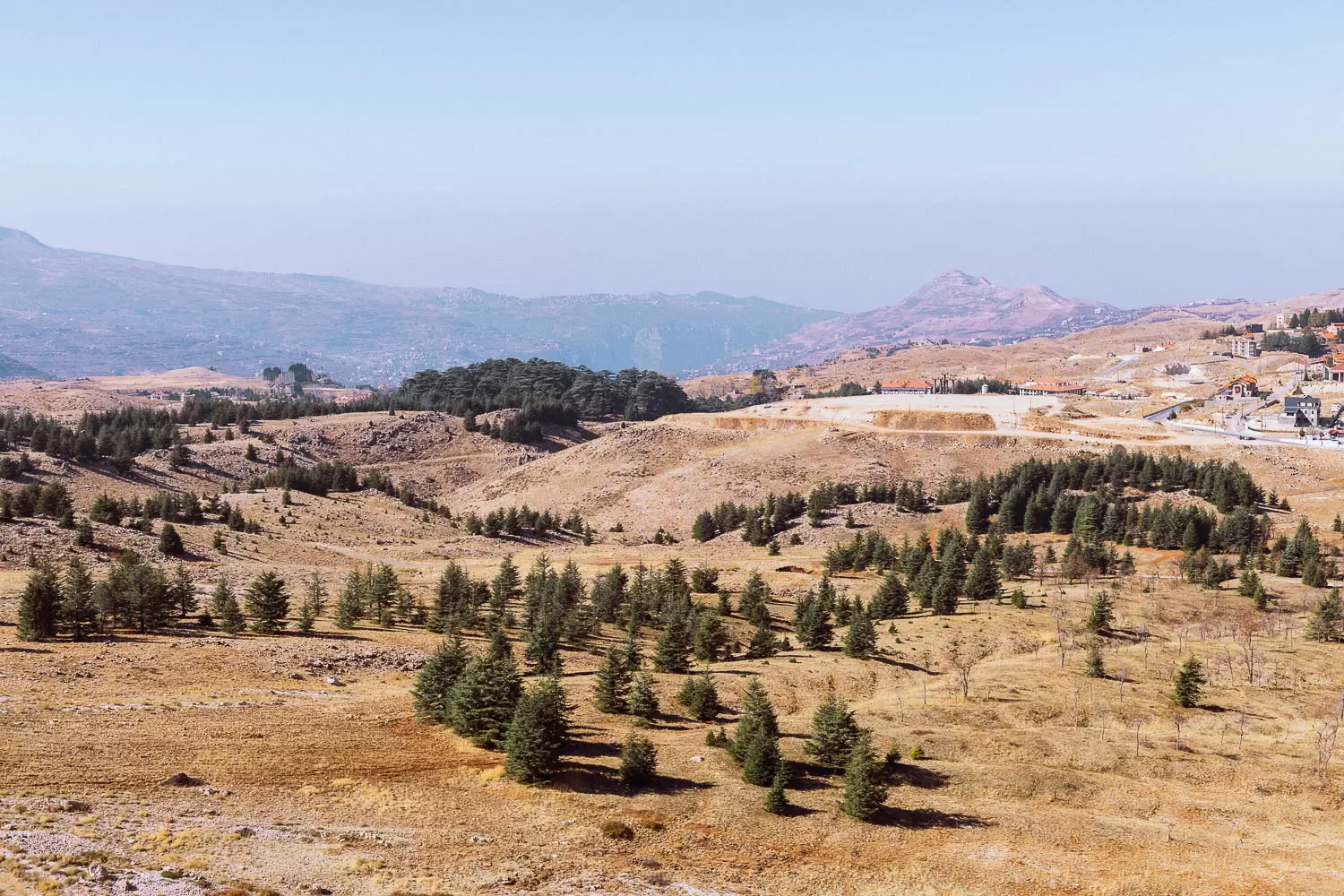
Now, with that said, Lebanon still presents safety issues you should be aware of.
You shouldn’t visit refugee camps or the borders between Lebanon and Syria, particularly without a guide. The southern region of Lebanon is also the main location of Hezbollah’s conflict with Israel as well, and you’ll begin to see a UN presence once you reach the southern seaside town of Tyre for that very reason.
However, I traveled to both Tyre and the Beqaa Valley near the Syrian border, and in both cases I felt safe and had absolutely no issues. I was super happy to have my TourLeb hosts explaining the history, sociopolitical tensions, and safety protocols every step of the way so I knew what to expect at all times.
In fact, one of my favorite meals was in Rayak, just minutes from the Syrian border crossing to Damascus.
On the day we traveled to the Beqaa Valley, there was one moment I was particularly grateful to have a local guide. We were visiting the Baalbek ruins, and saw a wedding near the entrance to the site. Our guide told us to anticipate gun shots, as shooting up into the sky is a common way of ‘celebrating’ the new couple’s union. Within moments, we heard gun shots off in the distance. Had we not been briefed on this cultural practice, we would’ve been so spooked!
Economic Situation in Lebanon
Lebanon is undergoing an ongoing economic, fuel, and electricity crisis. While crime rates are actually fairly low in the country, desperate times can mean some desperate situations, and petty theft isn’t unheard of as local people navigate unprecedented economic hardships. Keep close watch of your belongings but also, use this as an opportunity to patronize local businesses and support the local economy with your tourism dollars.
Safety for Women and Solo Female Travelers in Lebanon
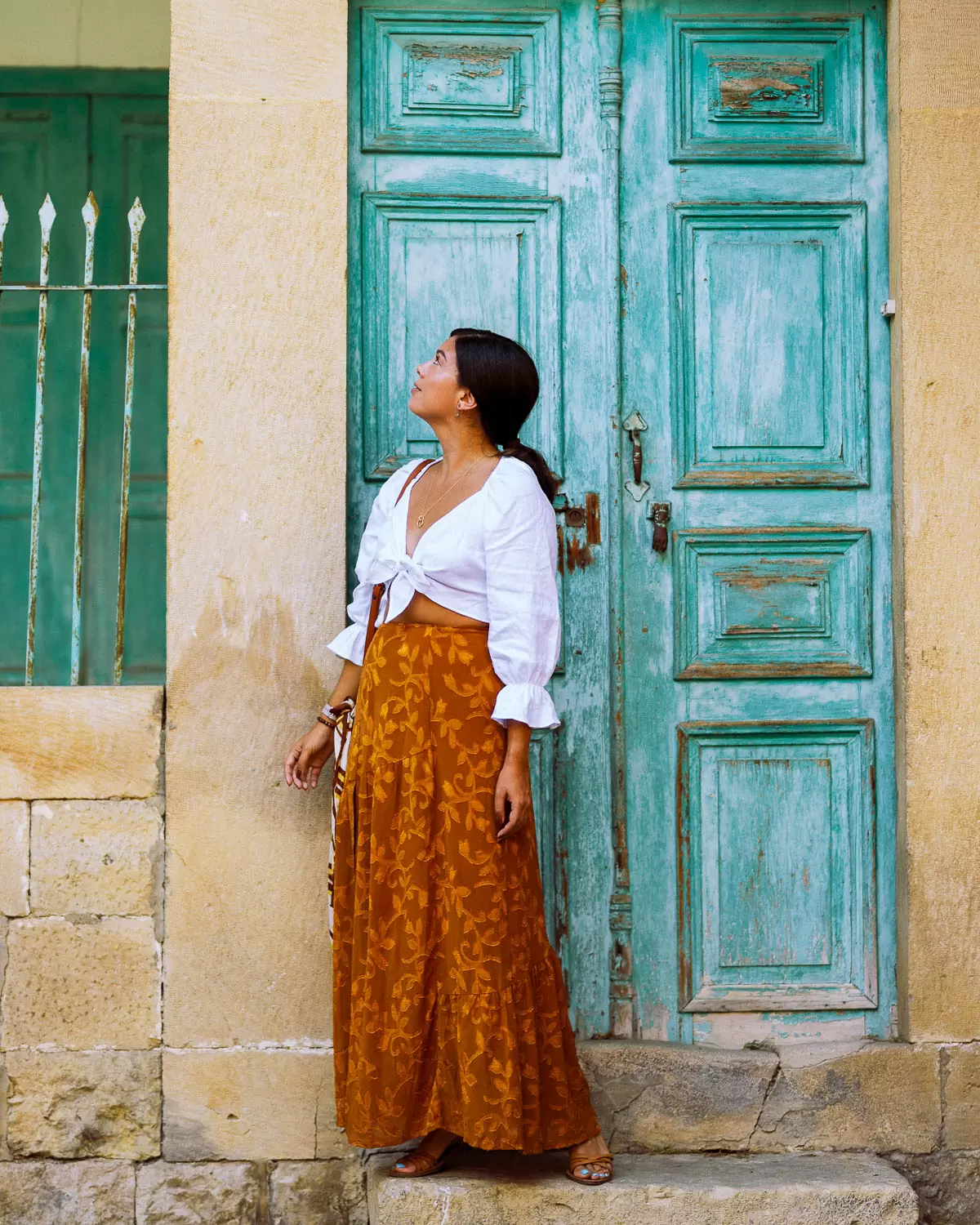
Economic and political landscapes aside, I can’t tell you how many times I was told that Lebanon is one of the safest places for woman to travel solo in the Middle East. Likening this to Lebanon’s Arab and Muslim influence (combined with the fact that English and French are widely spoken, making it easier for solo travelers that don’t speak Arabic to get around), people strive to treat solo female travelers the way they’d treat their own sisters, and want to make extra sure these travelers feel safe and welcome when moving throughout the country. This is especially true in the areas more commonly frequented by travelers, like Beirut, Byblos, Batroun, Jounieh, and Tyre.
Above all else, you can read as much as you want about safety while traveling in Lebanon ahead of time. But, one of the best things you can do is check in with locals throughout your trip. They’ll often have the latest advice on what’s safe, what isn’t, and what precautions you might want to take.
5. Languages Spoken in Lebanon
The national language of Lebanon is Arabic. However, as I just mentioned, French is also super prevalent due to the country’s French Mandate era of the early 1900s. Today, just under half of the Lebanese population is French-speaking, and another 15% are partially French-speaking, as most schools still teach using French as a second language.
Because of the coexistence of French and Arabic, Lebanese people have derived some unique expressions that blur the lines between the two languages. One example of this is saying “merci kteer” instead of “merci beaucoup” to express “thank you very much.” “Merci” is French for “thank you,” while “kteer” is Arabic for “many.”
Beyond that, English is commonly spoken by around 30% of the population, especially those in the tourism and business industries. Younger generations also lean heavily towards English in day to day conversation.
6. Religions in Lebanon
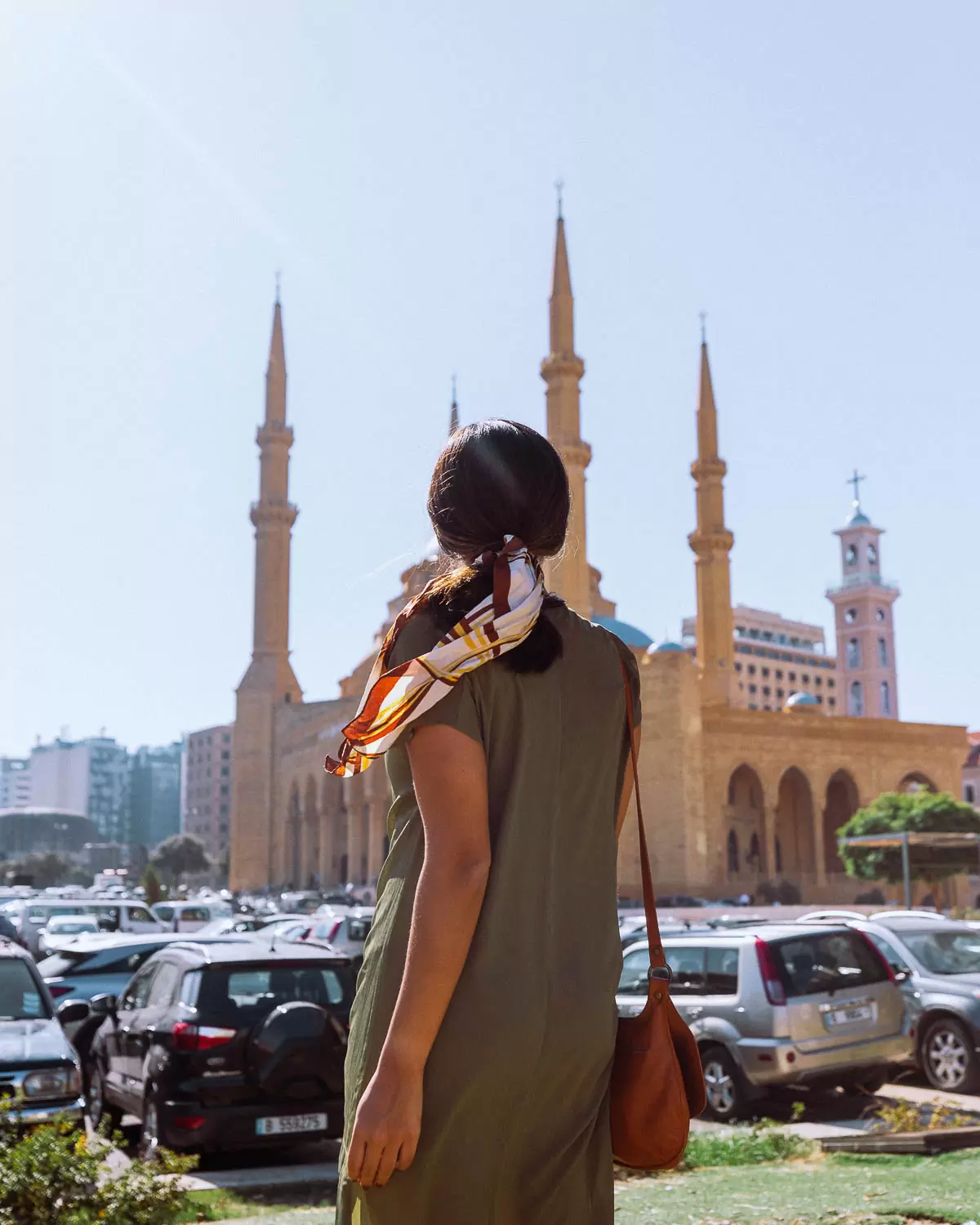
It is often said that without Lebanon’s enduring political and economic issues, the country could be a model for how the rest of the world can coexist. As a small country with more than 18 religious communities, Lebanon is a multi-faith society where mosques and churches coexist and bell towers and calls to prayer are equally common sounds of daily life.
Approximately 60% of the Lebanese population is Muslim (including Shiite, Sunni, Druze, Ismaili, and Alawi), and 40% is Christian (including Catholic communities like Maronites, Armenian Catholics, Greek Catholics; and non-Catholic communities like Greek Orthodox, Armenian Orthodox, Protestants, etc).
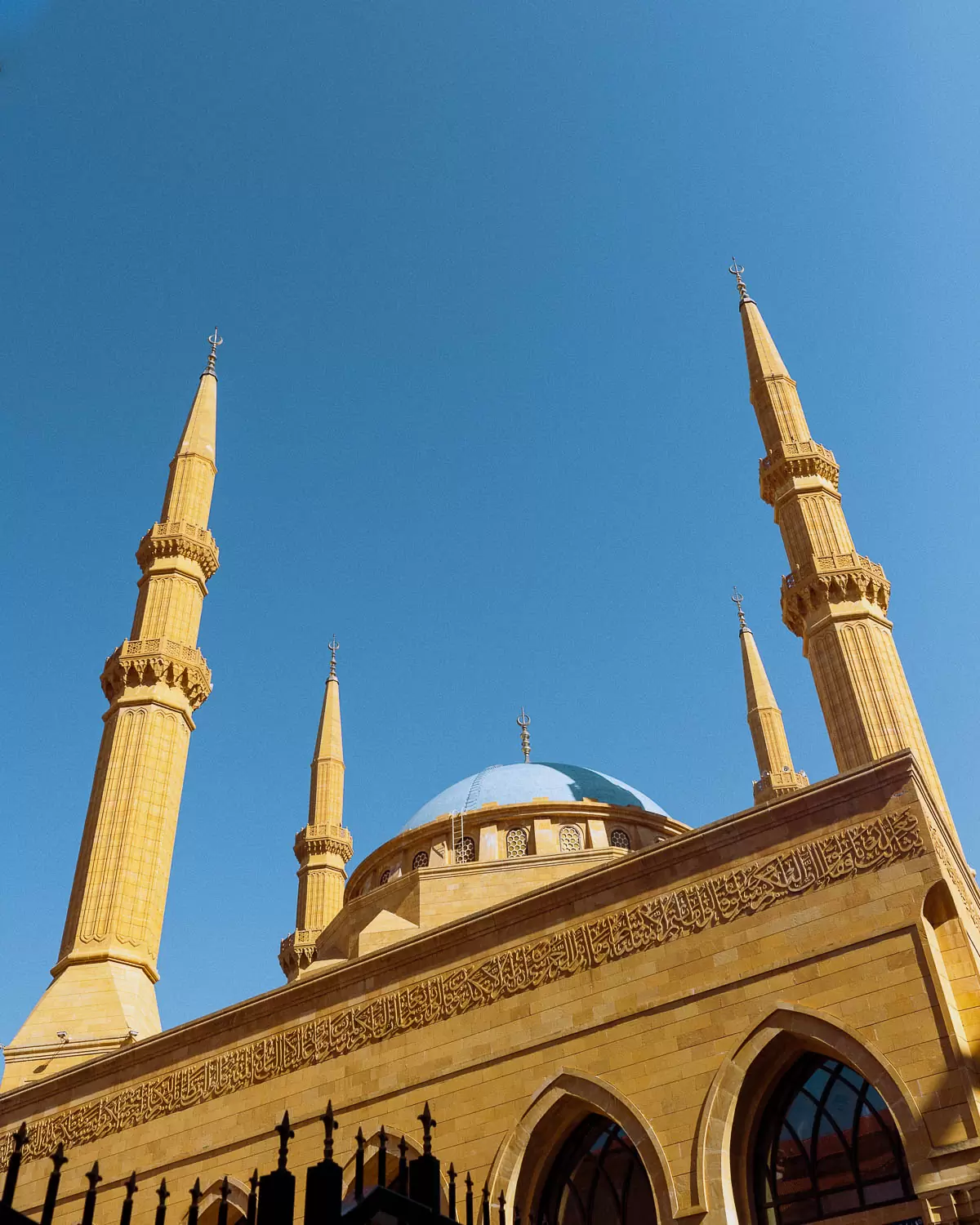
Lebanon is not without its own religious tensions and disagreements. But, as a country that recognizes and respects several religious communities, it is a remarkable thing to witness as a visitor! Here, you can visit mosques and churches in pretty much any city, hike through the Christian monasteries of the Kadisha Valley, and witness the Druze community’s Jumblatt Palace in the Chouf. All of it makes up equal importance in the fabric of what makes Lebanon, Lebanon.
7. Currency and Exchanging Money in Lebanon
Due to decades of debt, Lebanon is experiencing a financial crisis that can be felt in all aspects of daily life. It’s so bad that Lebanese people are largely unable to withdraw money from their bank accounts, and many salaries that were once livable are now worth mere fractions of what they once were.
Lebanon uses the Lebanese Pound or Lira, and you’ll see online that $1 USD = approximately 1,513 Lebanese Pounds. But (and it’s a BIG but!), Lebanon widely operates on a black market exchange . On the black market, $1 USD = anywhere from 24,000 – 35,000 Lebanese Pounds at the time of writing this article.
Because of this, you’ll want to bring your own local currency to Lebanon and exchange currency there, versus trying to find Lebanese currency abroad (most likely, you will not be able to anyway). Once in Lebanon, exchange your money at a reliable place using the ‘black market’ exchange rate, which fluctuates hourly. This way, you’ll get a fair exchange against the actual market value of everyday life in Lebanon.
I found that navigating the money exchange in Lebanon was one of the most confusing parts of visiting the country. Fortunately, my guide helped with this throughout my 10 days in Lebanon.
8. Lebanon Geography and Places to Visit
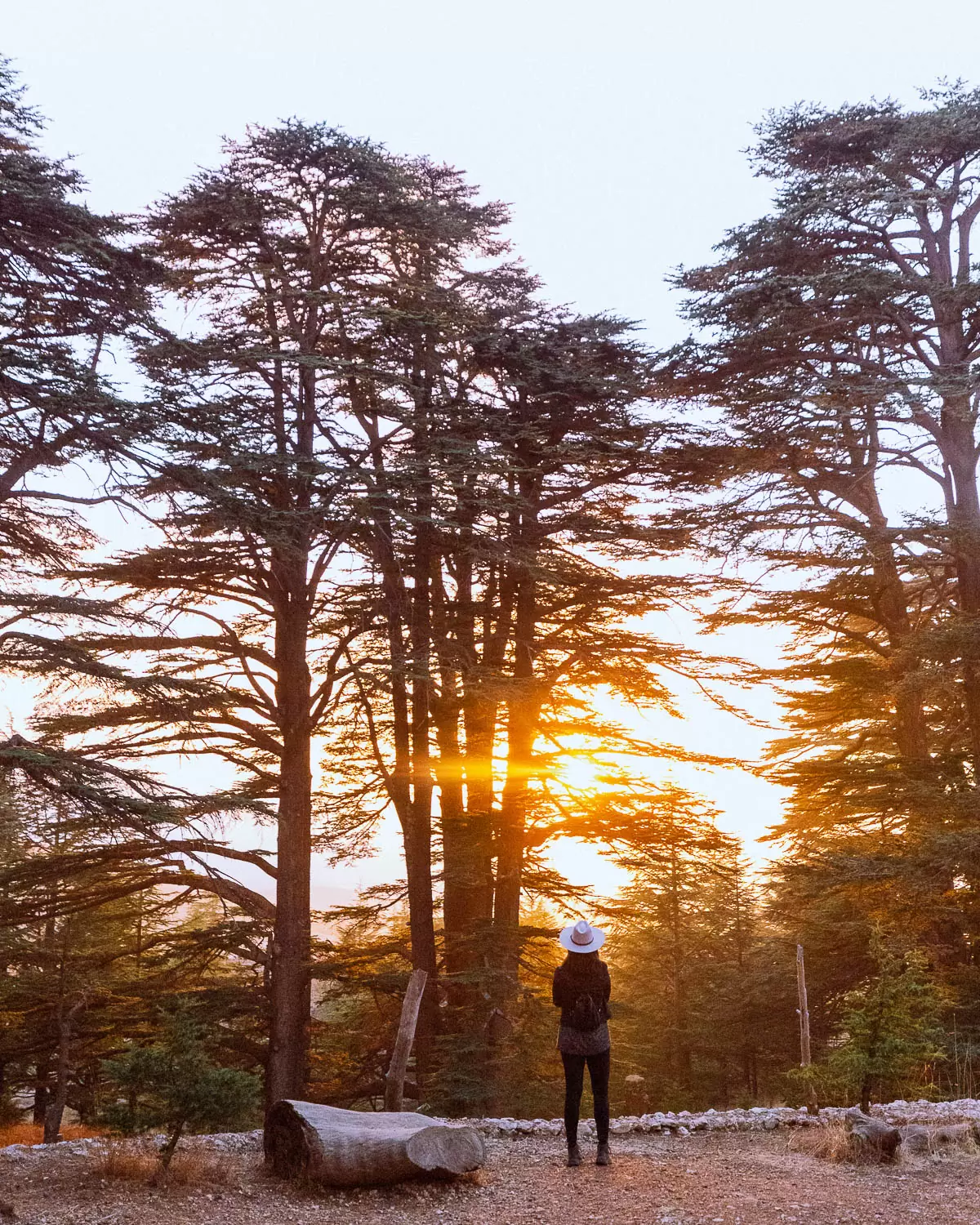
When we think of the Mediterranean, most people may first think of Greece, Italy, or Croatia. But Lebanon is a Mediterranean gem in its own right, with beautiful coastlines and many stretches of crystal clear, aquamarine waters.
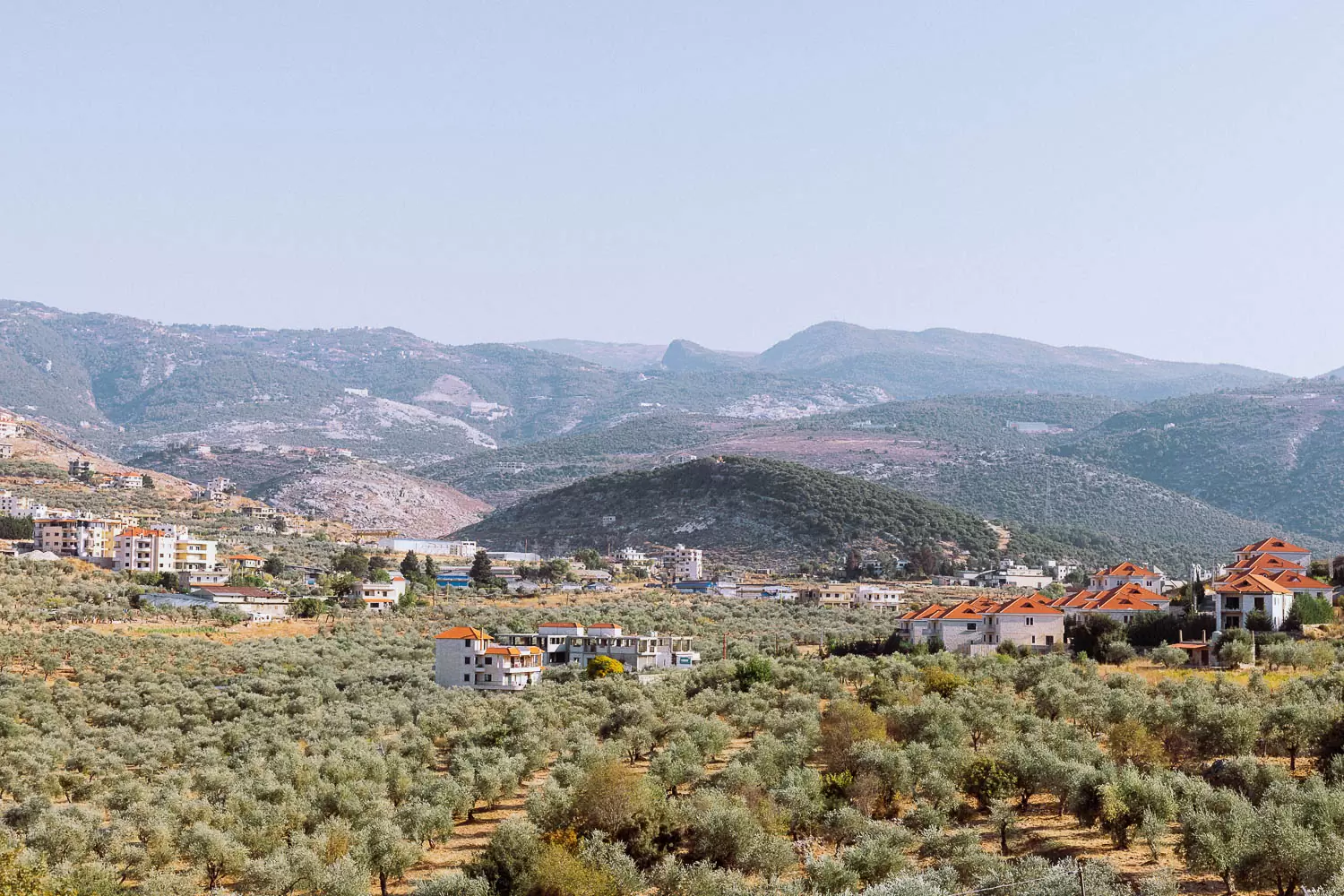
Bordering Lebanon are Israel to the south, and Syria to the north and east. No doubt, this is a region all too familiar with conflict and tension. However, in my experience – going with a guide allowed us to travel all over Lebanon while remaining both informed and safe. There are military checkpoints throughout the country monitoring the roads. At one point after visiting Baalbek in the far east, we found ourselves wine tasting on a vineyard just a stone’s throw from the Syrian border. Again, with our guides monitoring the daily conditions of the region, we felt incredibly safe and welcomed by the people in the Beqaa Valley!
Though Lebanon is a tiny country, it will surprise you – from Mediterranean coastlines, to mountain regions fit for skiing in the winter, to verdant green valleys and relaxing wine regions, Lebanon’s geographic diversity is truly unbelievable.
Some of the Top Places to Visit in Lebanon Include:
- Beirut : The Paris of the Middle East and the capital city of Lebanon, Beirut should be on any first-timer’s list when traveling to Lebanon. Come here historical city center and neighborhoods, stay for the incredible food and nightlife!
- Byblos : Also known as Jbeil or Jebeil, the seaside village of Byblos is a remarkable symbol of civilization. Byblos has been continuously inhabited throughout the past 8,000 years, and today, the historic center is a UNESCO World Heritage Site.
- Jounieh : A once sleepy fishing village that now hosts a long list of attractions, Jounieh is just 30 minutes outside of Beirut and well worth a visit. Take the Teleferique cable car, visit the Casino du Liban, explore the famous Jeita Grotto, or go paragliding over the Mediterranean coast. The views are unbelievable!
- Tripoli : You shouldn’t miss the dizzying, magnificent city of Tripoli in northern Lebanon. Here, you’ll find the largest crusader fortress in Lebanon, a labyrinthine network of souks, and the chilled out fisherman’s village of El Mina which is not to be missed.
- Baalbek : The ruins of Baalbek are so impressive, they are absolutely worth the trek. Here, you can find some of the finest remaining structures of the Roman Empire, like the Temple of Bacchus.
- Saida and Tyre : You can visit the southern seaside towns of Saida and Tyre on a single day trip. Visit the Crusader Sea Castle and the old souks in Saida, and the Hippodrome and Al Mina ruins in Tyre, before ending the day on the Tyre Port and Christian Quarter.
- Chouf : Chouf (also referred to as ‘The Chouf’) is a beautiful region filled with palaces, mountainside villages, a cedar tree reserve, and a large population of Lebanese Druze. Don’t miss the Jumblatt or the Beiteddine Palaces.
- Kadisha Valley : The famous Holy Valley is located high up in the Mount Lebanon chain, and has been home to countless monastic communities for centuries. The drive through the Kadisha Valley is one of the most stunning in all of Lebanon, featuring rugged landscapes dotted with churches and monasteries throughout. You can visit them by car or even hike between the monasteries on foot.
Read my list of all the places you should visit when traveling to Lebanon next!
9. Culture and Etiquette in Lebanon
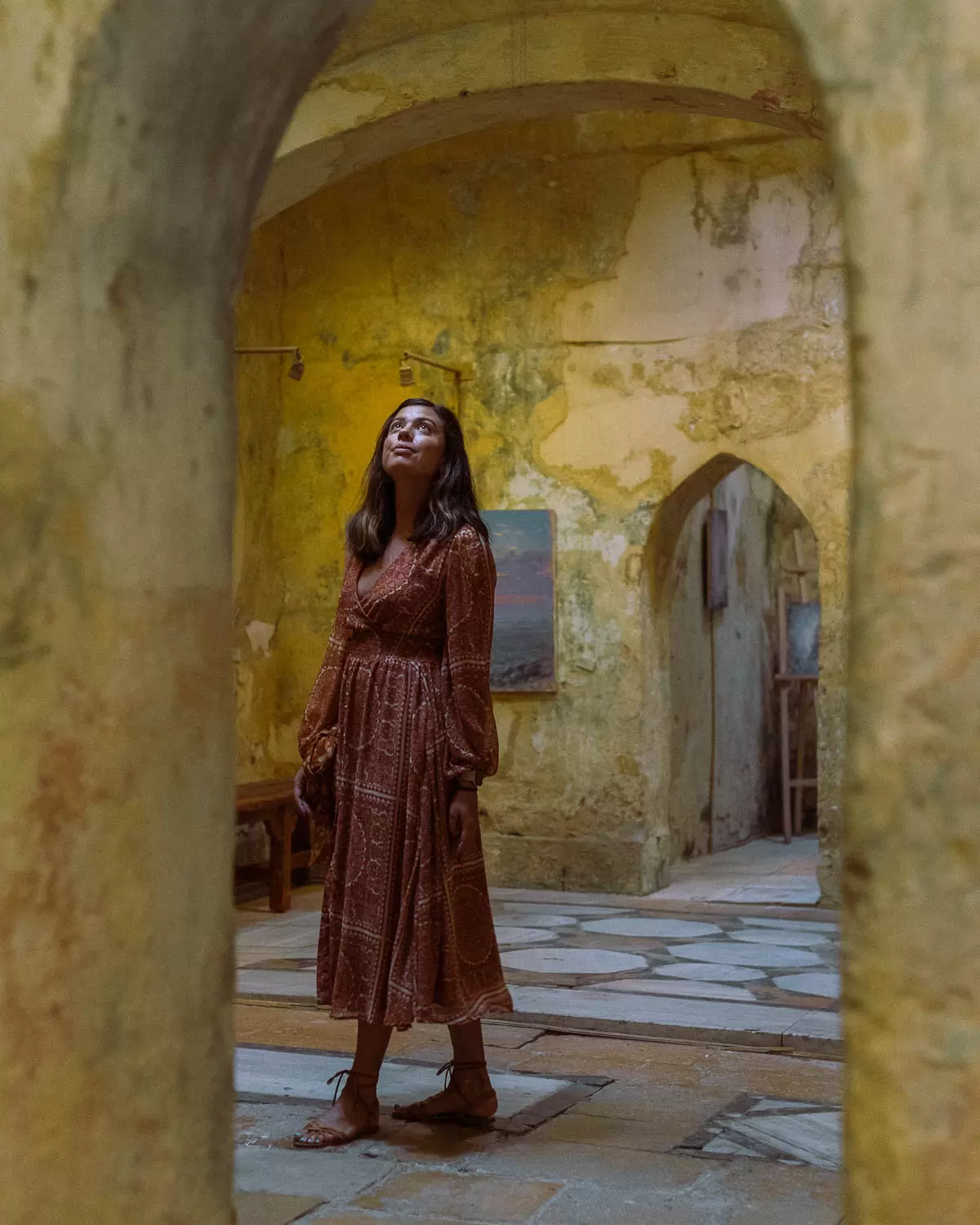
Lebanon is home to a myriad of cultures and customs, and while there is no sole “fixed” way of doing things, I found the country to be incredibly welcoming and inviting for foreign travelers.
I observed Lebanese teens in Beirut dressed in shorts and sneakers hanging out with friends at local bars, streets filled with locals smoking shisha and playing cards until late in the evenings, veiled and unveiled women at restaurants sharing tea and gossip, you name it.
With all that said, there are some things you should keep in mind when visiting Lebanon.
General Tips to Follow When Traveling to Lebanon:
- You can dine with both hands – dining with the right hand only doesn’t really apply in Lebanon
- PDA isn’t extremely taboo, but outside of holding hands, tourists should probably do it sparingly (no need to attract unnecessary attention or judgment, especially from more conservative onlookers). And, unfortunately I’d say LGBTQ+ couples should exercise more caution here and adhere to a zero PDA policy when out and about.
- Punctuality isn’t really a thing in Lebanon – hours are more fluid and you shouldn’t judge your tours or reservations if they don’t start immediately on time.
- Lebanese hospitality is unparalleled. I can’t stress this enough! I’ve never had a better breakfast, better hosts, or better conversations than I did while on this trip. Be a gracious guest and try everything when offered homemade food, be prepared to stay long periods of time and engage in conversation, and bring gifts when appropriate. Hosting is seen as an honor and a privilege, and it isn’t uncommon for even those with the smallest homes to invite you in for a coffee as their guest.
- To most Lebanese, Israel is a huge point of contention. Regardless of your understanding of the situation, it’ll serve you well to simply respect the opinions of locals. And, if you’ve ever traveled to Israel in the past, make sure there is no evidence of that trip in your passport when entering the country.
- While daily life can be quite relaxed in Lebanon, you should never forget that the country is in the crossroads of conflict. Always remain alert and vigilant with your belongings and with the locations you travel to when traveling to Lebanon, and rely on the advice of locals at all times.
10. Weather in Lebanon
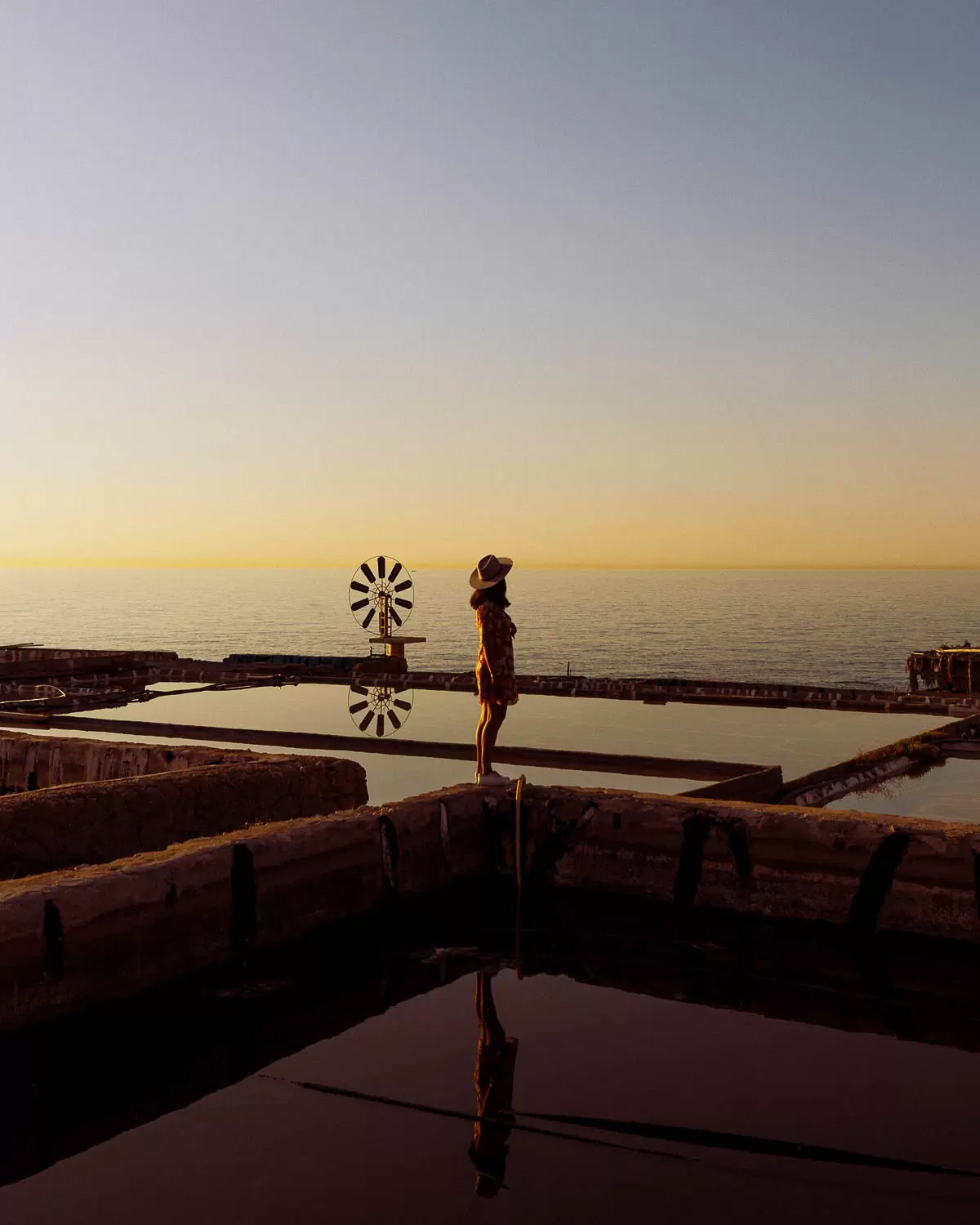
Lebanon generally has a mild Mediterranean climate, with hot summers and rainy winters. The coastline will be hotter and more humid than inland and mountainous regions, which can even get enough snowfall in the colder months for skiing and snowboarding.
If you’re wondering when is the best time to visit Lebanon based on the weather, March – May, and September – October are ideal. However, we came in early November and it was still so warm. We even took a dip in the Mediterranean! The only caveat is that in the winter months, the sun will set around 4:30 pm and your daylight hours will be shorter.
Depending on where you plan to go, I recommend packing a variety of clothing fit for both the coastal areas and mountain regions, with some extra layers for any chilly evenings.
11. What to Pack for and Wear in Lebanon
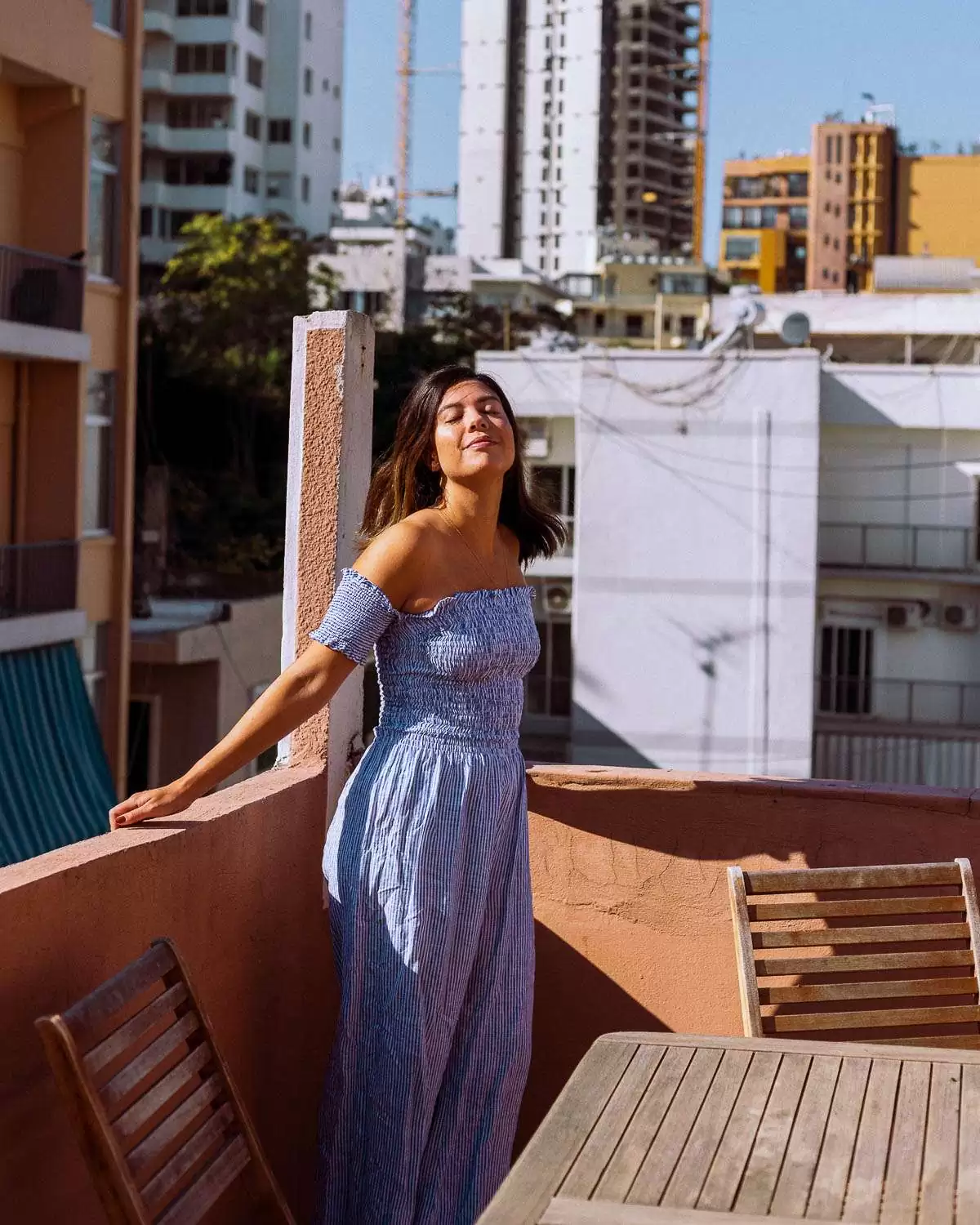
Lebanon is a pretty liberal country. So, what you pack will be dictated by your activities and the places you want to visit, rather than based on any particular custom or requirement.
You’ll generally find very casual as well as stylishly dressed people in Beirut, and naturally, a bit more traditionally and modestly dressed people in less densely populated areas. No matter where you go, it won’t be uncommon to see women in modern sundresses and jeans alongside women in veils or burkas in the same setting.
My Packing Tips for Lebanon:
- Avoid dresses and skirts / shorts that are extra short, as well as plunging necklines or backless tops (to me, this was honestly less about feeling inappropriate, and more about making sure I was not making any local men or women feel uncomfortable)
- Pack swimsuits with a bit more coverage (bikinis are totally fine, but I personally didn’t bring any that were more skimpy)
- Stick to breathable fabrics – Lebanon can be hot especially along the coasts!
- Bring layers if you plan to visit Lebanon’s mountain regions, particularly in the winter months
- Bring a variety of scarves, as you’ll need to cover your hair and shoulders when visiting mosques out of respect. I tied one to my purse every day so I could throw it on when needed.
- When visiting mosques, as well as more conservative cities like Tripoli and Saida, it’s best to wear pants or a skirt / dress that falls below the knees
- Take your shoes off when entering a mosque. If you don’t like the idea of being barefoot, wear socks. The floors will most likely be carpeted!
- Men should avoid wearing shorts or tank tops in mosques, as your shoulders and legs need to be covered, too
12. Transportation and Getting Around when Traveling in Lebanon
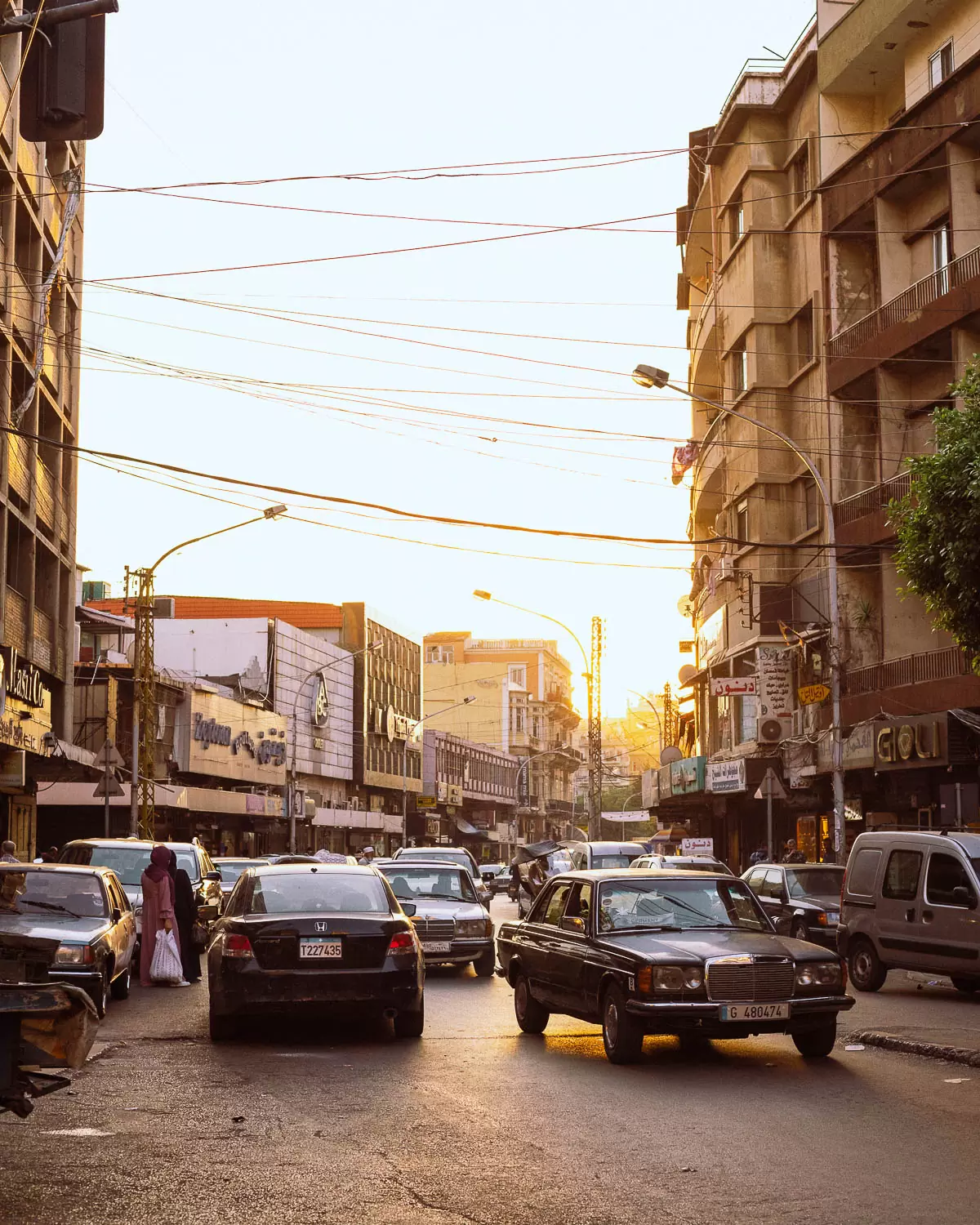
You could theoretically rent a car and drive while traveling in Lebanon, but I wouldn’t recommend it. Especially if it’s your first time traveling to the country. The roads are confusing, everyone drives with their own rules, and there are military checkpoints throughout the country that – while generally safe – can seem intimidating for foreigners.
Careem, a transportation app similar to Uber and Lyft, is supposed to be available in Beirut and Jounieh. But, I didn’t get a chance to confirm this for myself while I was there. If you use this app (or any others) when visiting Lebanon, let me know in the comments!
All that said, if you can swing it, I highly recommend booking tours with transportation included, and / or hiring a private guide like we did with TourLeb. If we had driven ourselves, we probably would’ve done less than half of the things we had on our itinerary. The logistics would’ve been too much to navigate, and there are certain parts of the country – like Tripoli and Baalbek – where it really is best to visit with a local that knows their way around.
13. Food, Alcohol, and Tipping in Lebanon
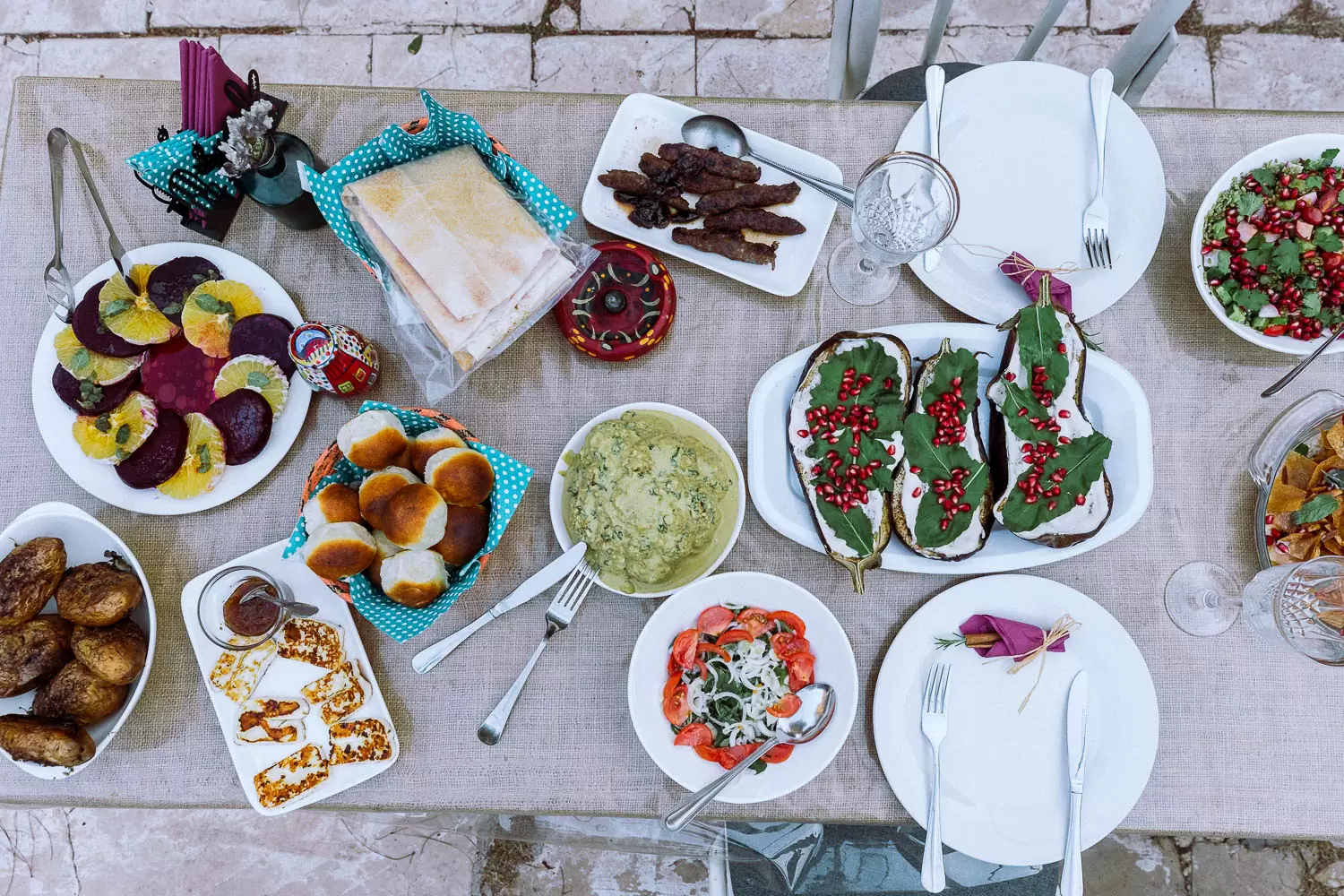
Lebanese people are serious about their food – and it is my absolute favorite cuisine in the world for this very reason.
Their Mediterranean climate combined with fresh Middle Eastern herbs and centuries-old traditions make even the simplest dining experiences a phenomenal occasion. You’ll want to try all of it, and you’ll want to do a good amount of walking during your visit to balance it all out 🙂
Some of my absolute favorite bites of food in Lebanon included:
- A simple, yet crisply fried falafel pita (which cost less than $1 USD) in Saida
- Handmade zaatar and cheese manakish (well, anything covered in zaatar, to be honest)
- Savory sesame-studded ka’ak filled with cheese and, you guessed it, zaatar
- Sweet, indulgent knafeh covered in orange blossom syrup and stuffed into a pita, which coincidentally made for a fantastic hangover breakfast
- Mezze for every meal of the day
- Lahme baajin made on the side of the road in the Chouf
- Freshly prepared kibbeh at a cozy restaurant tucked into the mountains of Ehden
I could keep on going – the food is just that good.
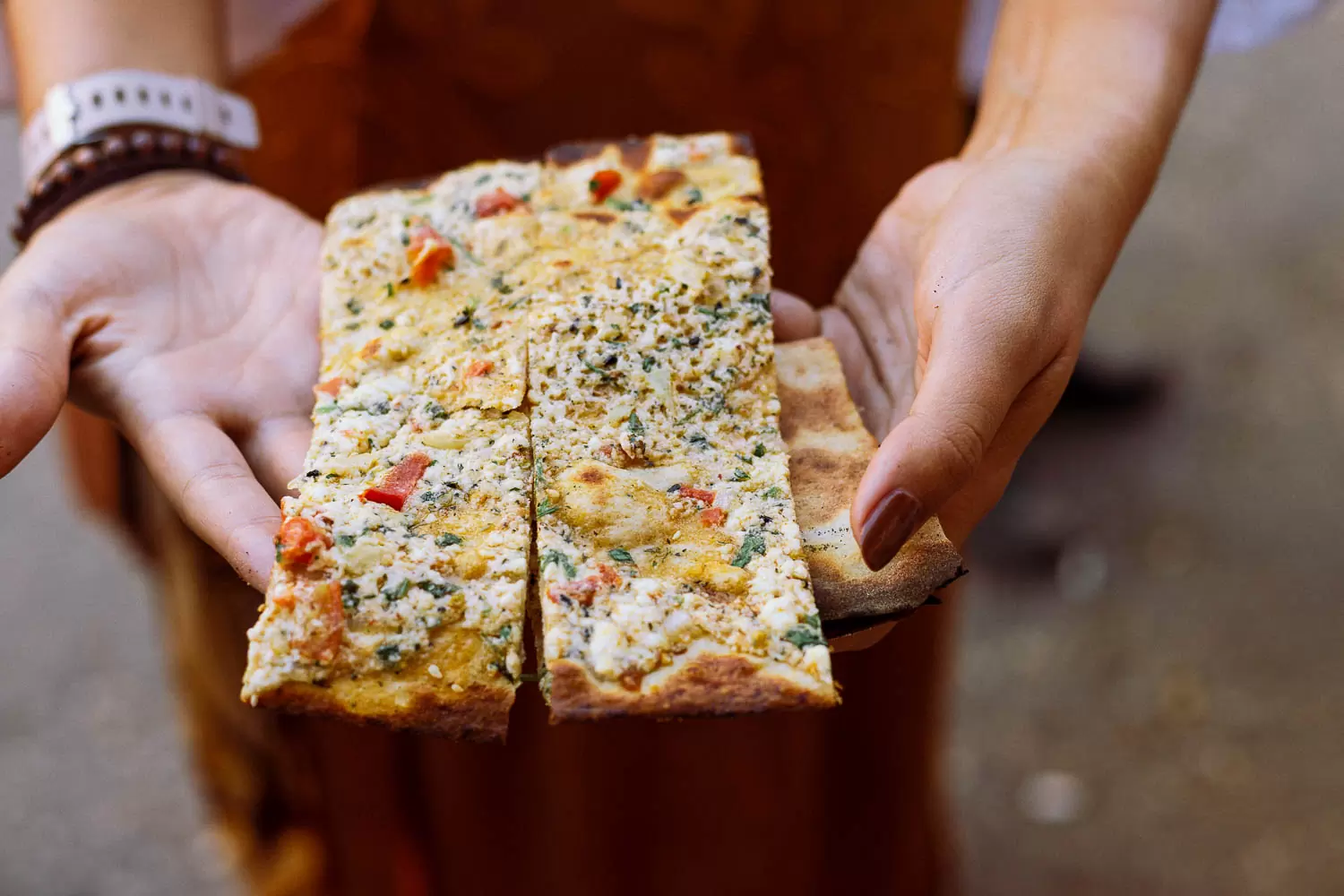
Alcohol Etiquette in Lebanon: Do People in Lebanon Drink?
Lebanon is one of the most liberal countries in the Middle East, and you can easily – and abundantly – enjoy alcohol throughout most of the country. In fact, Lebanon proudly produces tons of local beer, wine, and even spirits.
The only restrictions on this will be in the more conservative parts of the country, like Tripoli and Saida, where alcohol will be sparse or nonexistent out of respect for larger concentrations of Muslim populations.
Outside of this, you will be able to easily find and enjoy a drink in Lebanon freely and without worry.
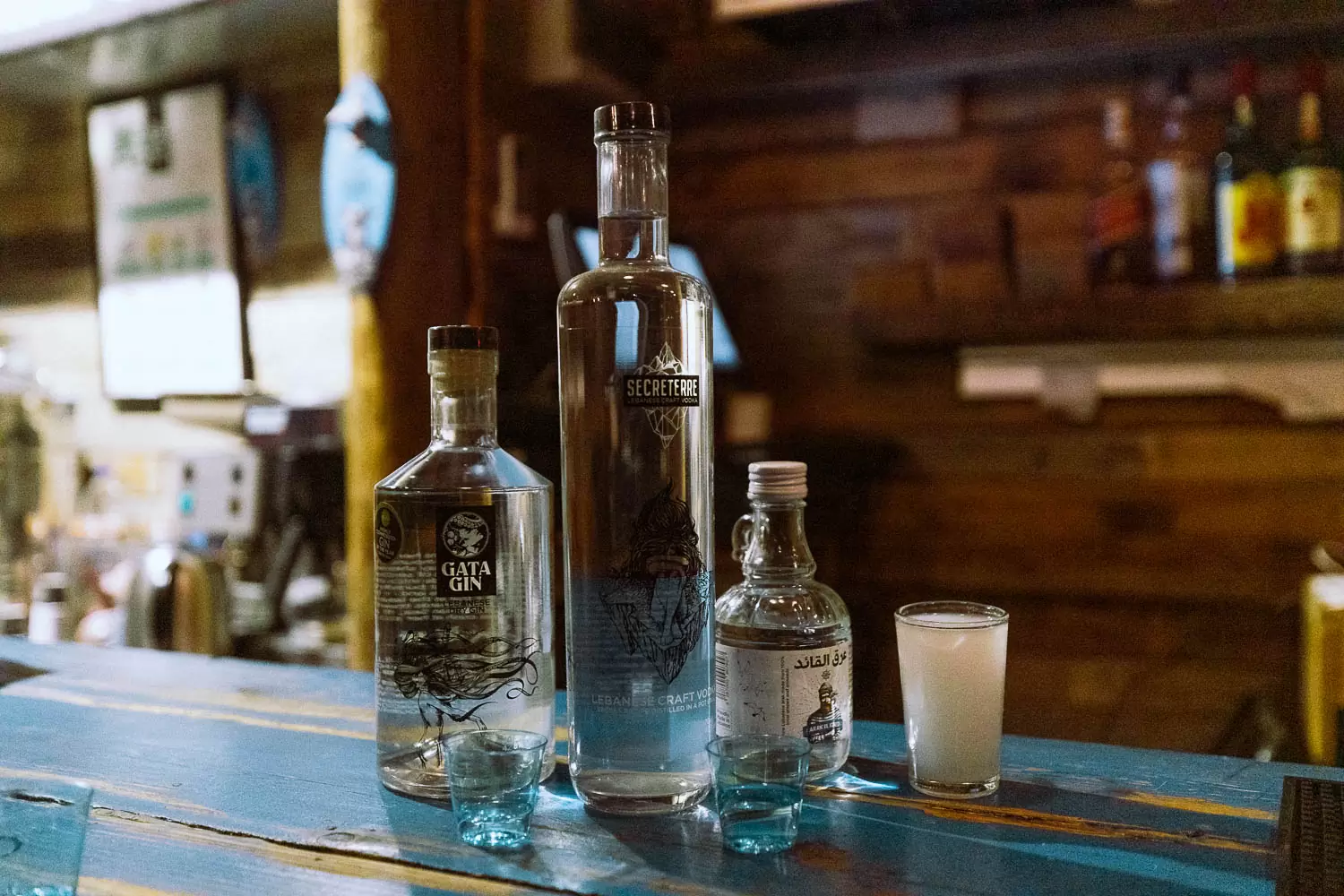
Tipping in Lebanon: Is It Appropriate?
When it comes to tipping in Lebanon, it’s generally advisable to either round up or pay 10 – 15% at restaurants depending on the service you received.
You’ll also want to carry small bills for other tipping encounters, including supermarket trips (if they carry your groceries to your car), gas station stops (an attendant will fill your tank), and buying drinks at a bar.
14. Travel Insurance For Traveling to Lebanon: Do You Need It?
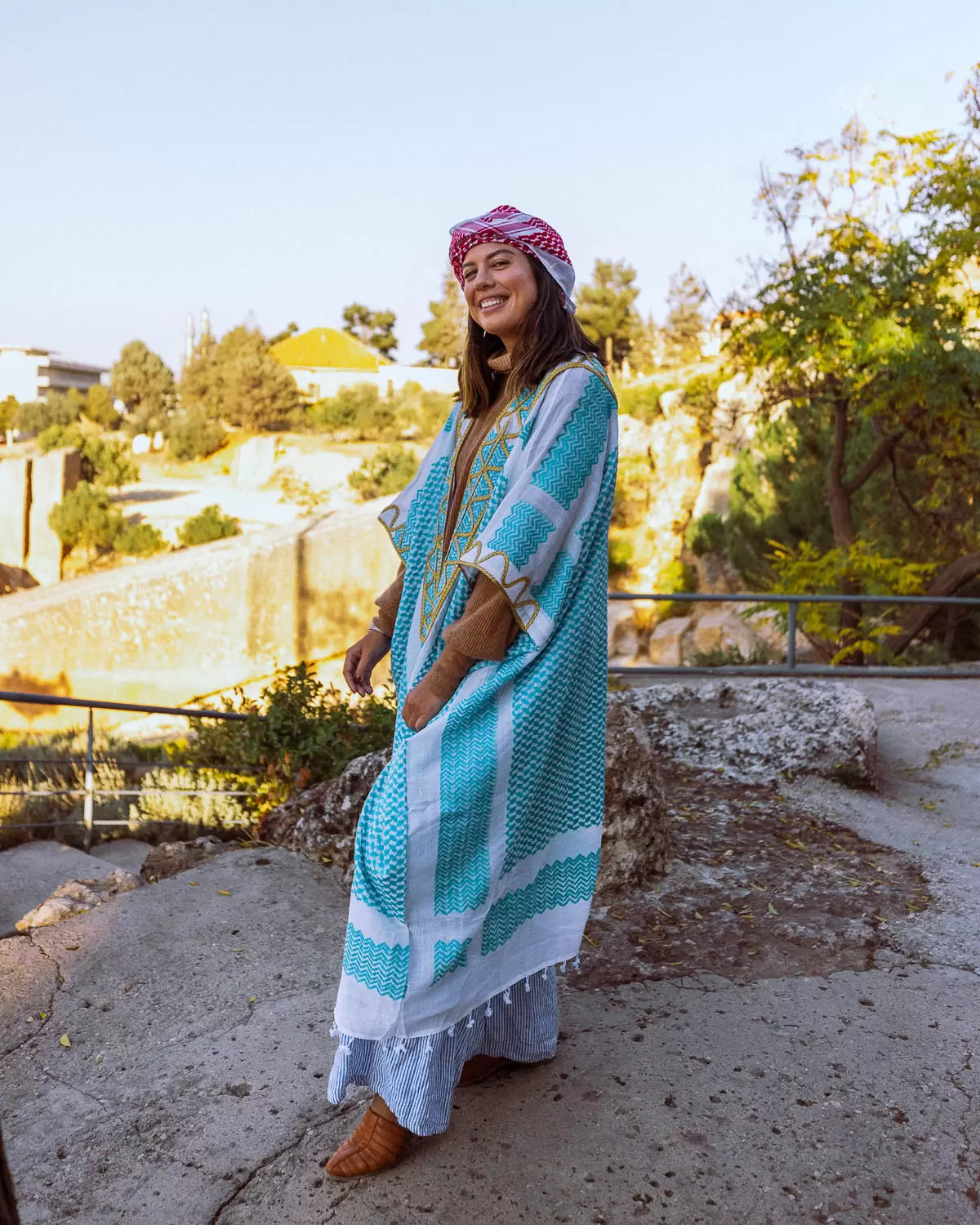
Whether or not you need travel insurance is your own personal choice. But, keep in mind that without insurance, any incidents (stolen gear, hospitalization, etc) will need to be covered out of pocket while abroad.
Some reputable travel insurance companies with good reviews include:
- World Nomads
- Allianz Travel Insurance
It’s hard for me to put into words how much I loved my time traveling in Lebanon, so I’ll end by saying this: if you’re feeling adventurous and considering visiting Lebanon, you must do it. Lebanon has been without a doubt one of the most culturally enriching, delicious, eye-opening, educational, authentic, raw, and fun countries I’ve visited to date, and I can’t wait to go back!
P.S. Skipped to the end? Don’t fret! While you can travel to Lebanon on your own, some might feel more comfortable visiting with a local tour company. If that’s you, you might want to consider traveling to Lebanon with TourLeb. Mention ‘Rachel Off Duty’ when booking to get up to 15% off a private tour of 3 days or more. Contact them here .
Or, travel with me to Lebanon on a group trip this summer (August 19 – 27). See the itinerary and reserve your spot by clicking this link .
Are you considering traveling to Lebanon? Did you find these tips helpful? Let me know your plans in the comments!
Read This Next:
- 10 Unforgettable Places to Visit in Lebanon
- 10+ Effortless Ways to Start Saving Money for Travel
- The Best First-Time Solo Female Travel Destinations
- Solo Female Traveler Safety Tips Every Woman Should Know
Pin For Later:
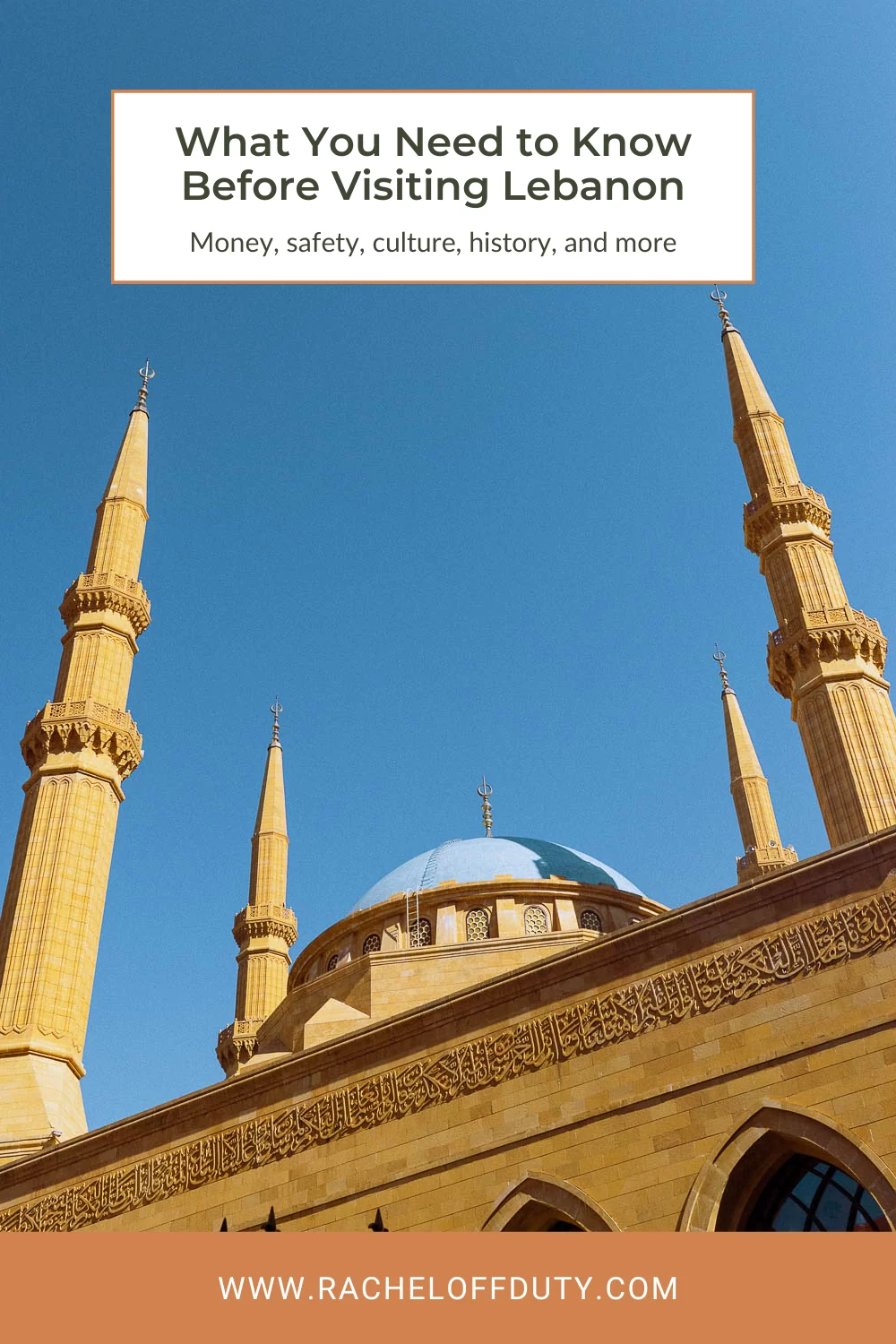
Hey there! I’m Rachel, a travel writer and a full-time advertising / marketing expert. In 2019, I traveled more than 25 times while working 9 to 5, and since then I’ve committed myself to living a more adventurous life, even if it means bringing my laptop along for the ride. Are you hungry to travel more, but overwhelmed with how to juggle work and play? You’ve come to the right place!
Recent Adventures:
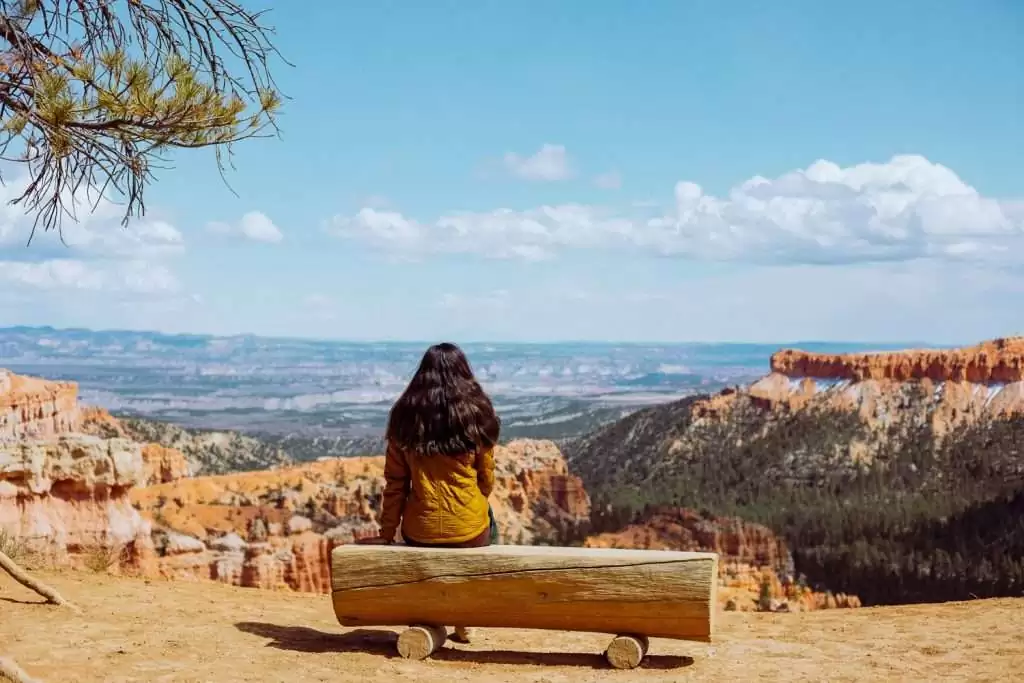
Top Woman-Owned Travel Companies That Should Be on Your Radar
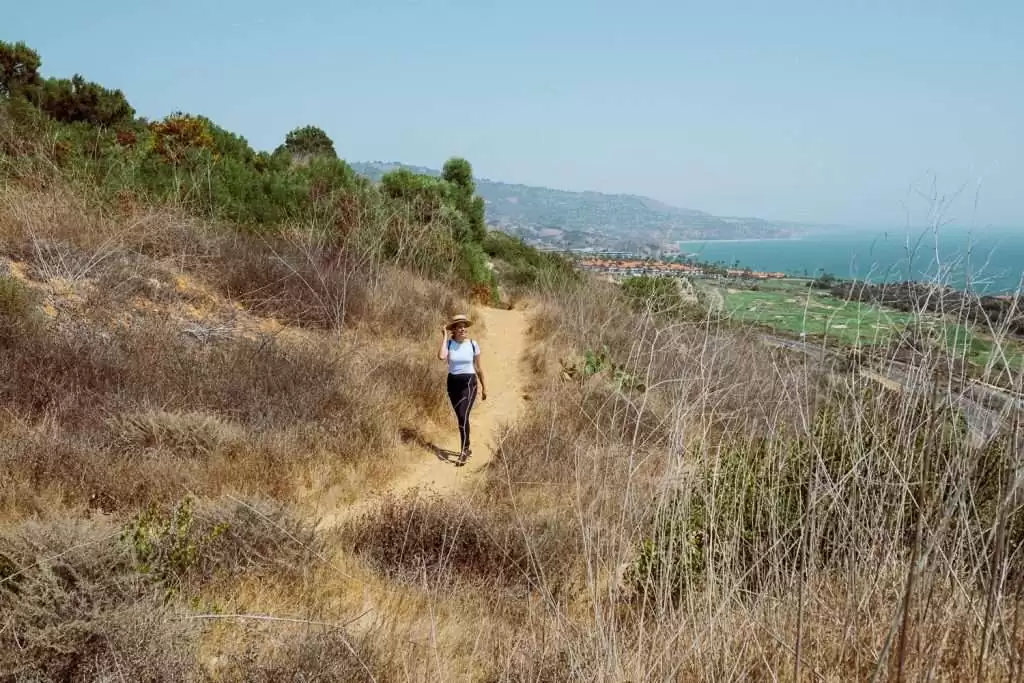
Los Angeles Staycation Idea: Two Days in Palos Verdes, California
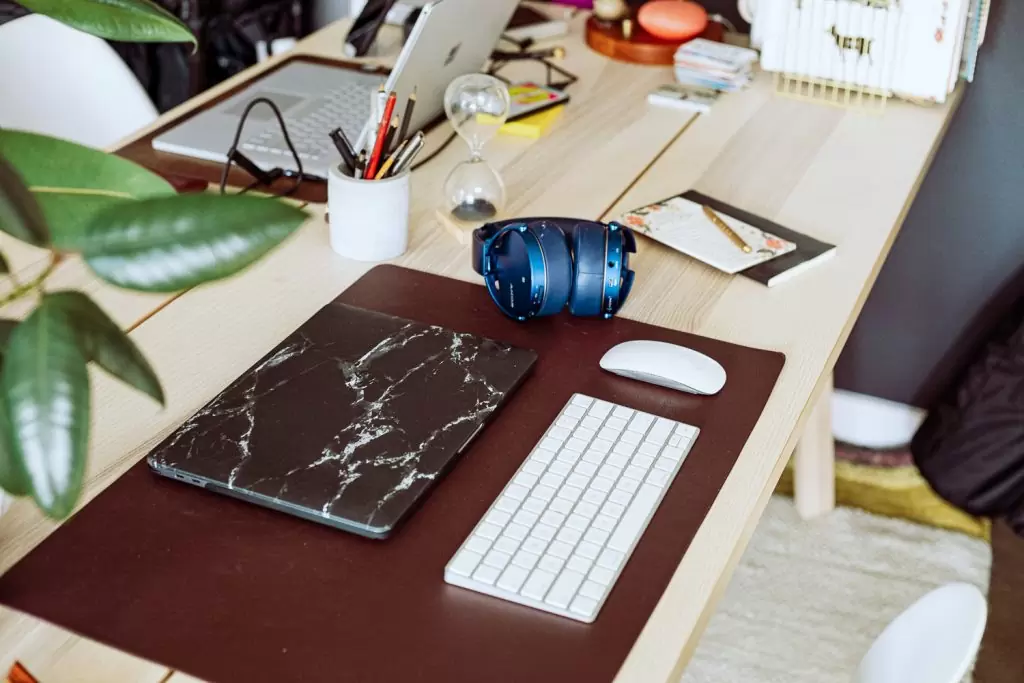
How to Ask Your Boss for More Vacation Time (The Right Way)
Let's go places.
- Updated on: March 1, 2023
Leave a Reply
Your email address will not be published. Required fields are marked *
Save my name, email, and website in this browser for the next time I comment.
Follow the Off Duty Life

Join a Community of Go-Getting Travelers.
Sign up below!

Language selection
- Français fr
Visa office in Beirut, Lebanon
To find out how and where to submit your application, see your instruction guide .
Use our Web form to:
- ask about your application
- ask a general question about a program or service
- give new information about your application
- change your contact information
- add, change or remove a representative
- report a technical problem
Visa application centre (VAC)
VACs accept applications for:
- study permits
- work permits
- visitor visas (temporary resident visa)
- travel documents for permanent residents
Find your closest VAC
IRCC offices
Page details
Language selection
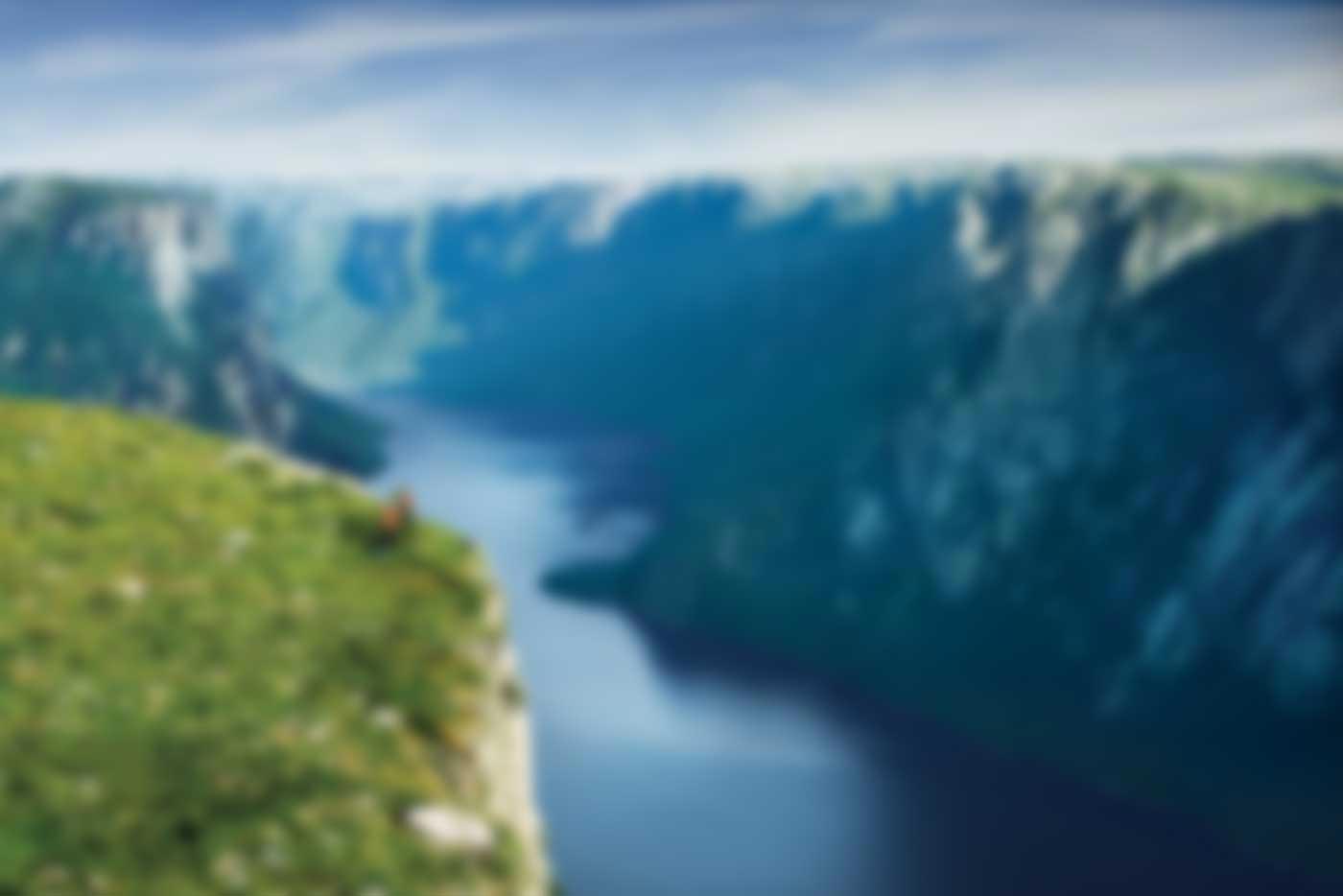
Canada and Lebanon
Le canada et le liban, government of canada, gouvernement du canada.
Français
Cookies on GOV.UK
We use some essential cookies to make this website work.
We’d like to set additional cookies to understand how you use GOV.UK, remember your settings and improve government services.
We also use cookies set by other sites to help us deliver content from their services.
You have accepted additional cookies. You can change your cookie settings at any time.
You have rejected additional cookies. You can change your cookie settings at any time.
- Passports, travel and living abroad
- Travel abroad
- Foreign travel advice
Warnings and insurance
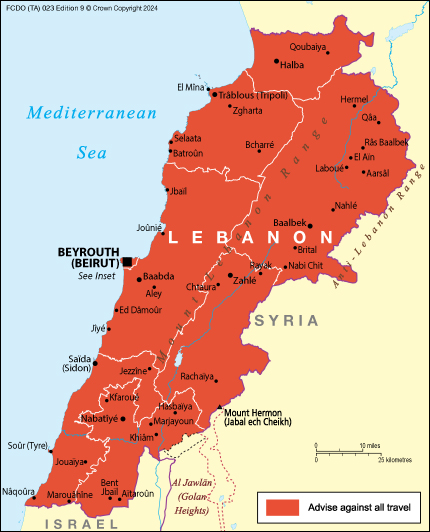
The Foreign, Commonwealth & Development Office ( FCDO ) provides advice about risks of travel to help British nationals make informed decisions. Find out more about FCDO travel advice .
Areas where FCDO advises against travel
Your travel insurance could be invalidated if you travel against FCDO advice. Consular support is also severely limited where FCDO advises against travel.
FCDO advises against all travel to Lebanon. If you are currently in Lebanon we encourage you to leave now while commercial options remain available.
For further information on why we advise against travel, see the ‘Conflict affecting Lebanon’ and Regional risks.
Departure from Lebanon
Events in Lebanon are fast moving. The situation has potential to deteriorate quickly and with no warning.
Commercial routes out of Lebanon could be severely disrupted or cancelled at short notice and roads across the country could be closed. If you are currently in Lebanon, we encourage you to leave now while commercial options remain available .
Travel within or out of Lebanon is at your own risk. The FCDO cannot tell you whether it is safe to travel to any departure point within Lebanon. However, see safety and security for information on known security risks in Lebanon and advice on how to keep yourself safe.
Make sure you have correct and up-to-date travel documents, including a passport and visa if necessary, for yourself and anyone travelling with you, even if they are not British nationals.
Check our travel advice for any neighbouring country that you are planning to travel to or through.
In the event of deterioration in the political or security situation, the British embassy may be increasingly limited in the assistance that it can provide. Do not rely on FCDO being able to evacuate you in an emergency.
Read FCDO advice on what to do if you’re affected by a crisis abroad and how to prepare.
If you cannot leave Lebanon
You should have a personal emergency plan that does not rely on the UK government and be prepared in case you need to leave quickly. However, if you cannot leave Lebanon, you should shelter in place if you judge it necessary and safe to do so.
See safety and security and regional risks for information on known security risks in Lebanon and advice on how to keep yourself safe. You should sign up to get email notifications when this travel advice is updated.
Conflict affecting Lebanon
FCDO advises against all travel to Lebanon due to risks associated with the conflict between Israel and the Occupied Palestinian Territories. There are ongoing mortar and artillery exchanges and airstrikes in Lebanon, primarily on the boundary with Israel but also elsewhere in the country. Online maps may provide a useful guide to recently affected areas. Tensions are high and events could escalate with little warning, which could affect or limit exit routes out of Lebanon.
There is also a risk of civil unrest. There have been large protests outside embassies, including outside the US and French embassies on 17 October. Further protests are expected. British nationals should exercise caution and avoid areas where demonstrations may be held.
The embassy is continuing with essential work including services to British nationals.
Follow and contact FCDO travel on Twitter , Facebook and Instagram . You can also get email notifications when this travel advice is updated.
Help and support in Lebanon
You can contact the emergency services by calling 112.
If you need urgent help (for example, you’ve been attacked, arrested or someone has died), call +961 (0)1 960 800.
If you’re in Lebanon and you need advice which is not covered by reading our travel advice, you can contact FCDO online .
While 24-hour consular assistance is available by phone or online, in-person consular support is severely limited in parts of Lebanon where we advise against all travel and limited where we advise against all but essential travel.
If you’re abroad and you need emergency help from the UK government, contact the nearest British embassy, consulate or high commission .
Travel insurance
If you choose to travel, research your destinations and get appropriate travel insurance . Insurance should cover your itinerary, planned activities and expenses in an emergency.
Related content
Is this page useful.
- Yes this page is useful
- No this page is not useful
Help us improve GOV.UK
Don’t include personal or financial information like your National Insurance number or credit card details.
To help us improve GOV.UK, we’d like to know more about your visit today. We’ll send you a link to a feedback form. It will take only 2 minutes to fill in. Don’t worry we won’t send you spam or share your email address with anyone.
WHERE WE FLY
Flights from Beirut (BEY) to Canada (CA)
- Where we fly
- The Americas
- Flights from Beirut to Canada
Search for flights
Emirates flights from beirut to canada.
Find all flights departing from Beirut to Canada on emirates.com. Searching for flights from Beirut to Canada and Canada to Beirut is easy. Just browse the list of cities we fly to from Beirut and select your destination city to see our flight schedules and destination guides.
Book flights from Beirut to Canada quickly and securely. When you see our Best Price Guarantee symbol, that means you’ll get the best fare for your flights.
Our destination guides offer expert tips on what to do and the best places to visit, as well as recommendations for the best hotels, activities and eateries in town.
Book your flights from Beirut to Canada today and look forward to gourmet dining, award-winning inflight entertainment and exceptional service with us – no matter which cabin class you’re travelling in.
We look forward to welcoming you on board.

- Flights from Beirut to Montréal

- Flights from Beirut to Toronto
Flights from Canada to Beirut
- Flights from Montréal to Beirut
- Flights from Toronto to Beirut
- Skip to main content
- Skip to site information
Language selection
Help us to improve our website. Take our survey !
Registration of Canadians Abroad
Registration of Canadians Abroad is a free service that allows the Government of Canada to notify you in case of an emergency abroad or a personal emergency at home. The service also enables you to receive important information before or during a natural disaster or civil unrest.
We encourage you to register whether you are planning a vacation or living abroad.
The personal information obtained through registration is confidential and is used in accordance with the provisions of the Privacy Act .
For group registrations, complete the online registration with the first 10 co-travellers, save and create your account. Log in again to add more co-travellers.
Why register?
- Registration of Canadians Abroad FAQ
- Registration of Canadians Abroad: Poster

IMAGES
COMMENTS
Since October 2023, the Government of Canada has advised Canadians to leave Lebanon while commercial options remain available. If you are in Lebanon, including in Beirut: be extremely vigilant and aware of your surroundings. book a flight to leave the country. expect a heightened security presence.
The Government of Canada's official source of travel information and advice, the Travel Advice and Advisories help you to make informed decisions and travel safely while you are outside Canada. ... Lebanon: Avoid all travel. 2024-04-16 07:58:44: lesotho Lesotho: Exercise a high degree of caution. 2024-03-13 13:56:11: liberia Liberia: Exercise ...
Canada and Lebanon. Services for Canadians if you're visiting, studying, working or doing business in Lebanon. ... You should leave Lebanon while commercial options remain available. Get the right documents to travel from Lebanon to Canada. Travel advice and advisories - Lebanon. Avoid all travel. Travel advice, passport and entry requirements ...
The situation in Lebanon is volatile and unpredictable due to recent and ongoing events in Israel, the West Bank, and the Gaza Strip. Canadians, permanent residents and their spouse and dependent children should follow the travel advice for Lebanon and leave while commercial flights remain available.. Our focus is on helping Canadians and permanent residents get the documents they need to ...
Call us in Washington, D.C. at 1-888-407-4747 (toll-free in the United States and Canada) or 1-202-501-4444 (from all other countries) from 8:00 a.m. to 8:00 p.m., Eastern Standard Time, Monday through Friday (except U.S. federal holidays). See the State Department's travel website for the Worldwide Caution and Travel Advisories.
3. North Lebanon. Ok fellow explorers, now we've conquered the south, let's dive into North Lebanon! As is the old adage, there's no rest for the wicked, so suit up, shades on, and let's get cracking! There are 3 main areas that are seriously worth visiting in Northern Lebanon: Jbeil, Batroun, and Tripoli.
The Ultimate Travel Guide to Lebanon. Last Updated: 22 Feb 2023. This guide will tell you everything you need to know for visiting Lebanon during the current crisis, updated regularly with the latest pandemic travel restrictions and for changes caused by Lebanon's current crises.
Lebanon (Arabic: لبنان, French: Liban) is a country in the Middle East, on the Mediterranean Sea.Rich in diversity and history, Lebanon has hosted the Roman Empire, the Crusades, the Ottoman Empire, and was, for a period of time, controlled by France.The majority of Lebanese are Arabs, as are most of the Palestinians and Syrians living there, but there are also small communities of ...
Is it safe to travel to Canada? Canada has a current risk level of 2.80 (out of 5). We advise to use some caution when travelling to Canada. The safety index is based on travel advisories from independent 5 sources. Safety index is provided by www.travel-advisory.info: 04/22/2024.
For more information please contact directly. Two Option: Obtain Visa at Beirut International airport. Obtain Visa from the Embassy in person or by mail. Saliba. Passports, Travel Documents and Visas. Tel. +1 (613)236-5825 Ext. 228. Email [email protected].
Location: Lebanon The Department of State reissued the Travel Advisory for Lebanon on March 5, 2021 with updates to security information. The Travel Advisory can be found here. In case of an emergency involving a U.S citizen in Lebanon, please contact [email protected] or the contact telephone numbers below. Assistance:
Get the right documents to travel from Lebanon to Canada. Services and information. Adoption and surrogacy. Process to adopt a child internationally and bring them back to Canada. Birth abroad. Register a child's birth abroad. Citizenship services. Steps to become a Canadian citizen. Get proof of citizenship.
Reconsider travel to Lebanon due to crime, terrorism, civil unrest, kidnapping, unexploded landmines, and armed conflict. Some areas, especially near the borders, have increased risk. Read the entire Travel Advisory. Do Not Travel to: Southern Lebanon due to the potential for armed conflict; The border with Syria due to terrorism and armed ...
Bordering Lebanon are Israel to the south, and Syria to the north and east. No doubt, this is a region all too familiar with conflict and tension. However, in my experience - going with a guide allowed us to travel all over Lebanon while remaining both informed and safe. There are military checkpoints throughout the country monitoring the roads.
Contact us. To find out how and where to submit your application, see your instruction guide. Use our Web form to: ask about your application. ask a general question about a program or service. give new information about your application. change your contact information. add, change or remove a representative. report a technical problem.
Government of Canada. All contacts; Departments and agencies; About government; Themes and topics. Jobs and the workplace; Immigration and citizenship; Travel and tourism; Business and industry; Benefits; Health; Taxes; Environment and natural resources; National security and defence; Culture, history and sport; Policing, justice and ...
You can contact the emergency services by calling 112. If you need urgent help (for example, you've been attacked, arrested or someone has died), call +961 (0)1 960 800. If you're in Lebanon ...
Fly from Lebanon to Canada with Air Canada and enjoy exceptional service and complimentary meals on international flights. Book the lowest fares on flights from Lebanon to Canada. ... Travel class. My travel class is: keyboard_arrow_down. Beirut (BEY) to. Ottawa, ON (YOW) May 02, 2024 - Jun 09, 2024. CAD 1,940* Round-trip / Economy. Book Now
Border with Lebanon - Avoid all travel. Avoid all travel to to the area within 5 kilometres of the border with Lebanon due to ongoing military operations. ... The two levels below are official Government of Canada Travel Advisories and are issued when the safety and security of Canadians travelling or living in the country or region may be at ...
Emirates flights from Beirut to Canada. Find all flights departing from Beirut to Canada on emirates.com. Searching for flights from Beirut to Canada and Canada to Beirut is easy. Just browse the list of cities we fly to from Beirut and select your destination city to see our flight schedules and destination guides.
Registration of Canadians Abroad. Registration of Canadians Abroad is a free service that allows the Government of Canada to notify you in case of an emergency abroad or a personal emergency at home. The service also enables you to receive important information before or during a natural disaster or civil unrest. We encourage you to register ...